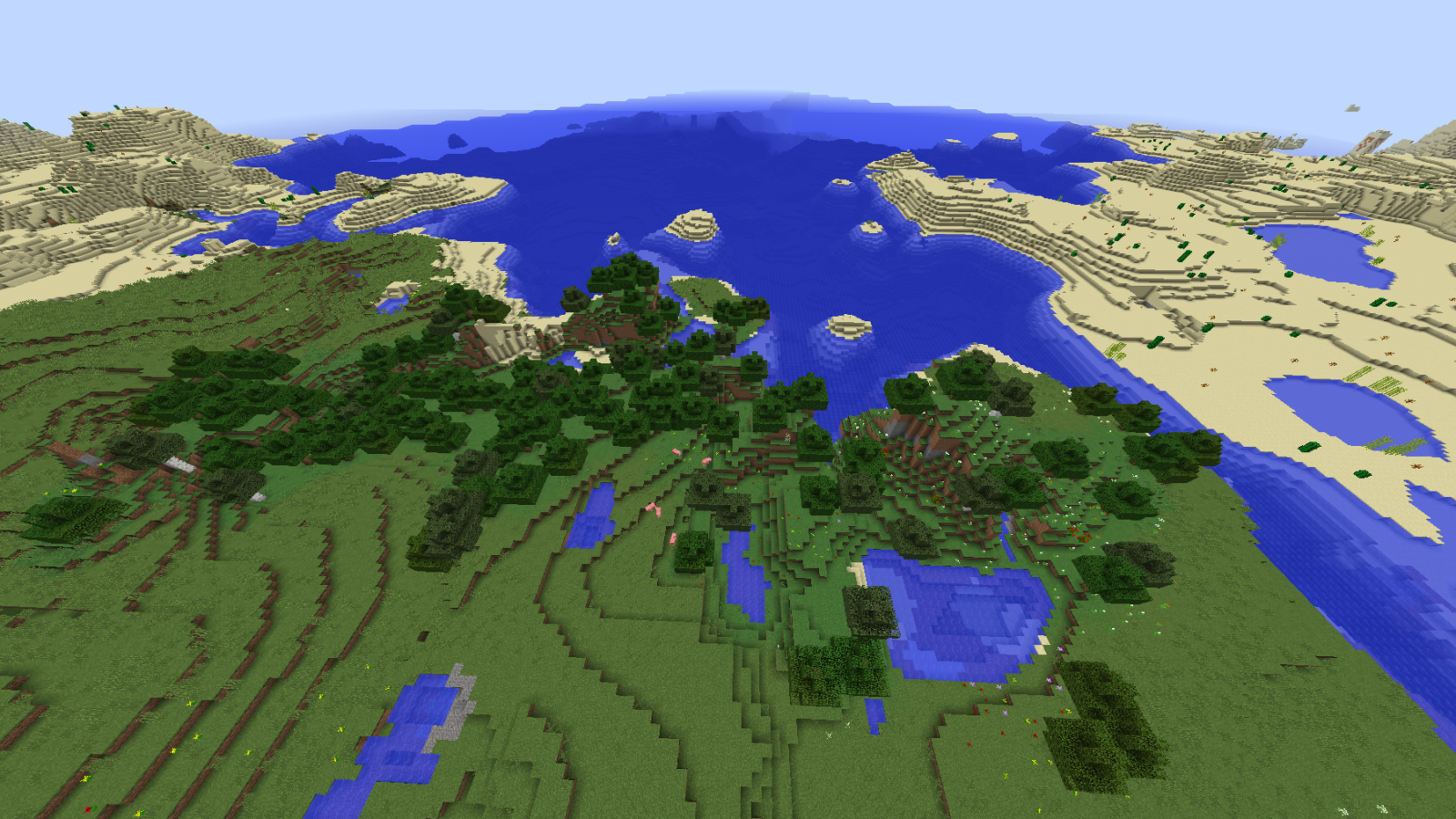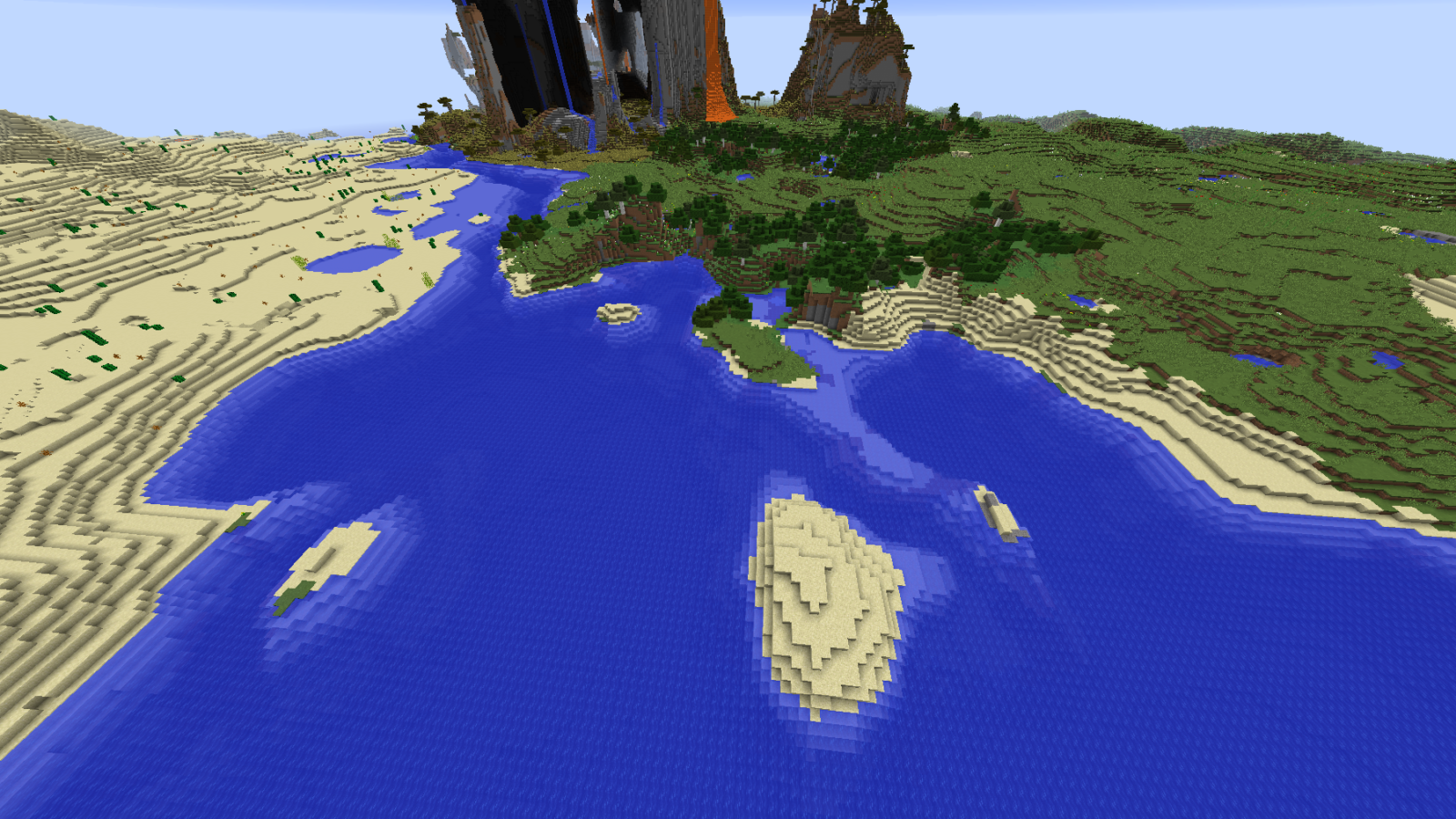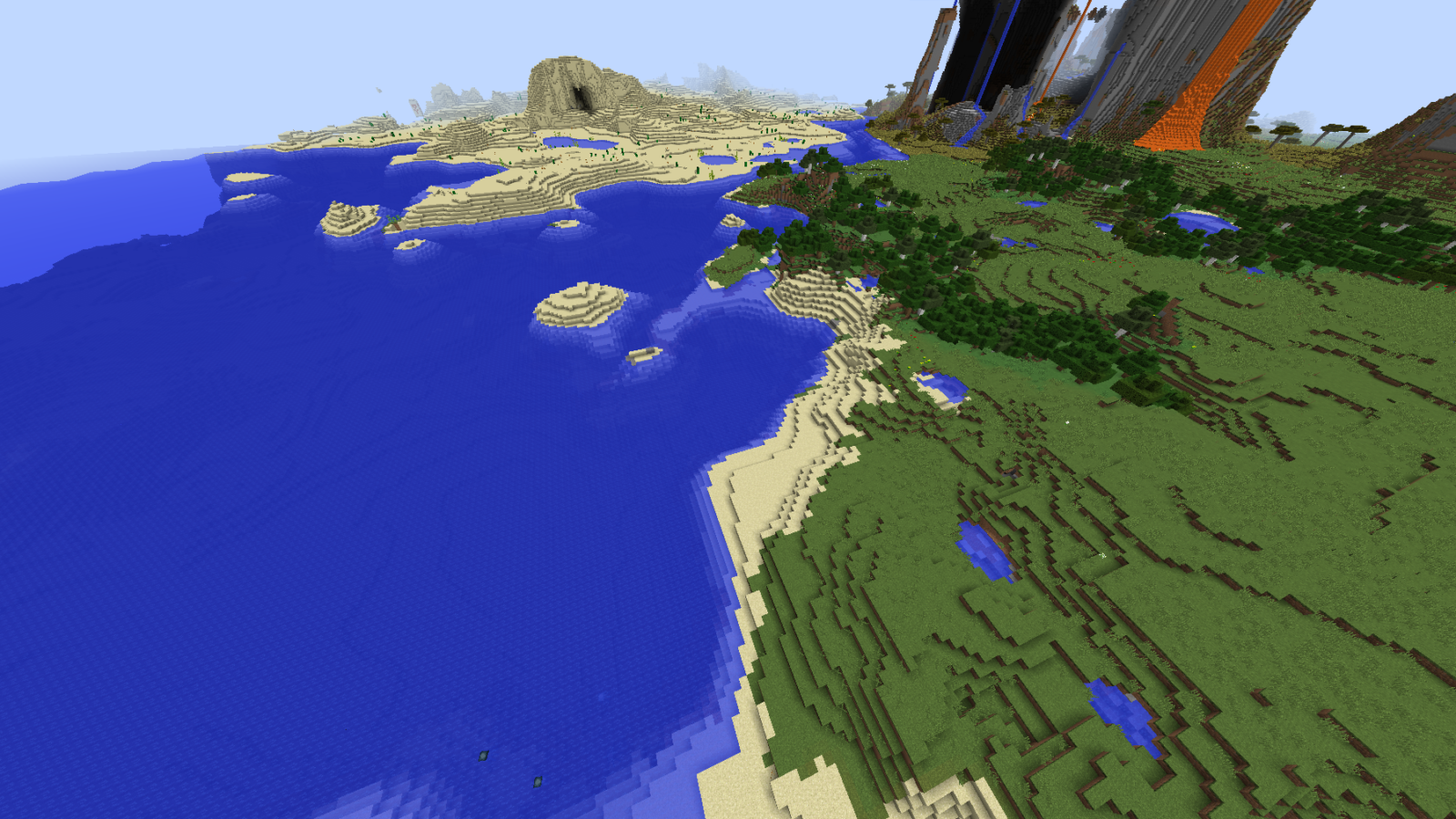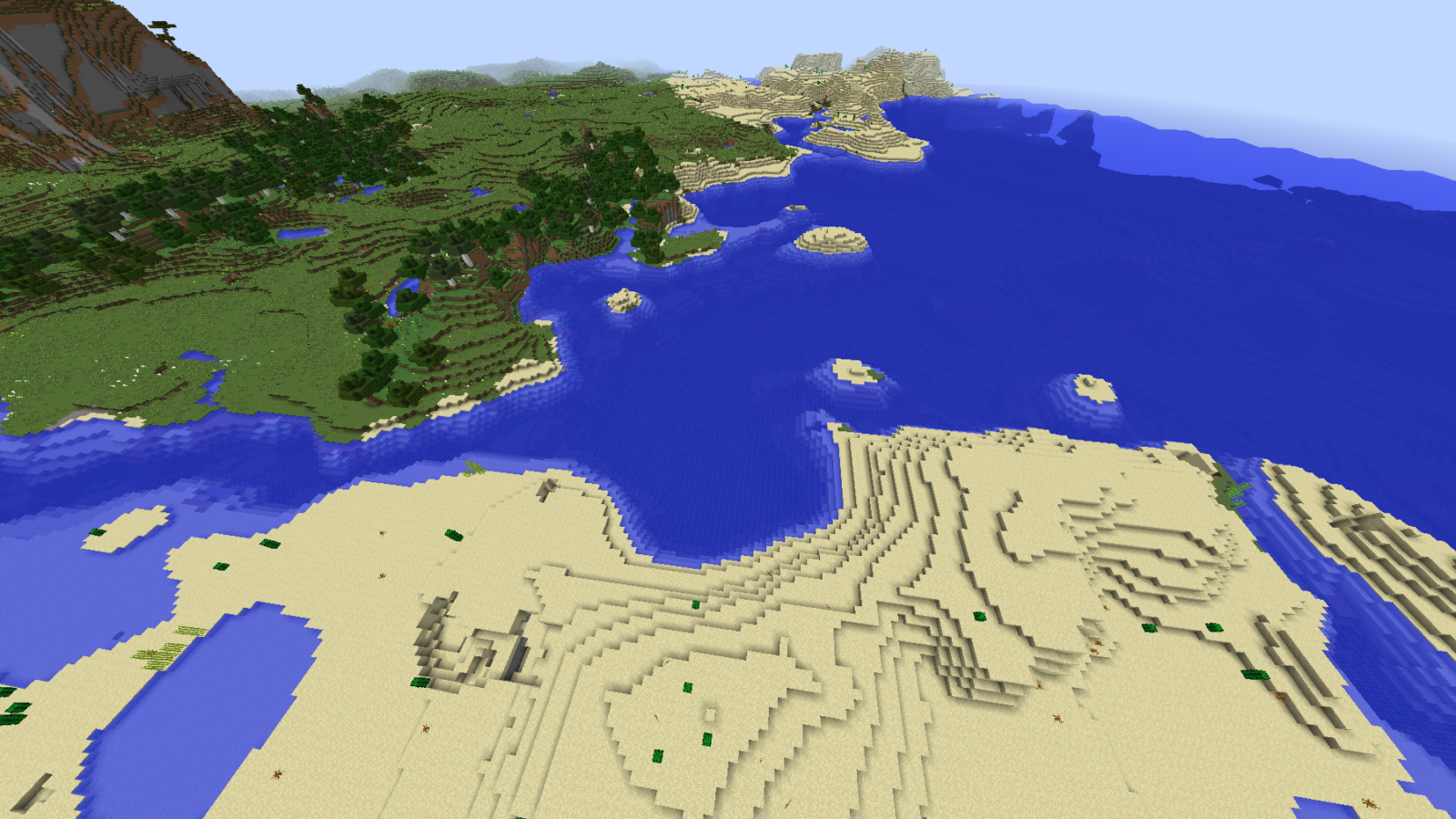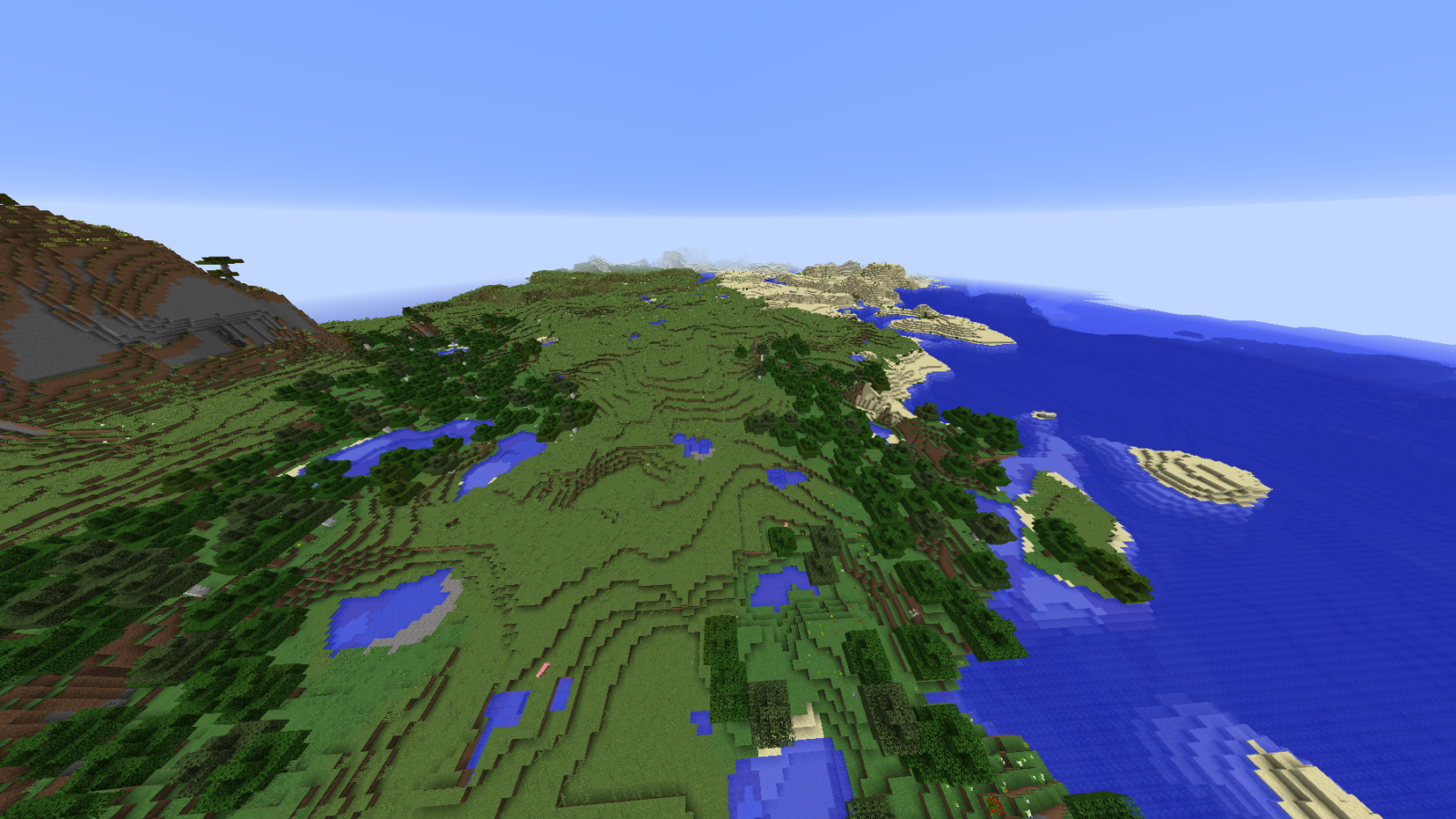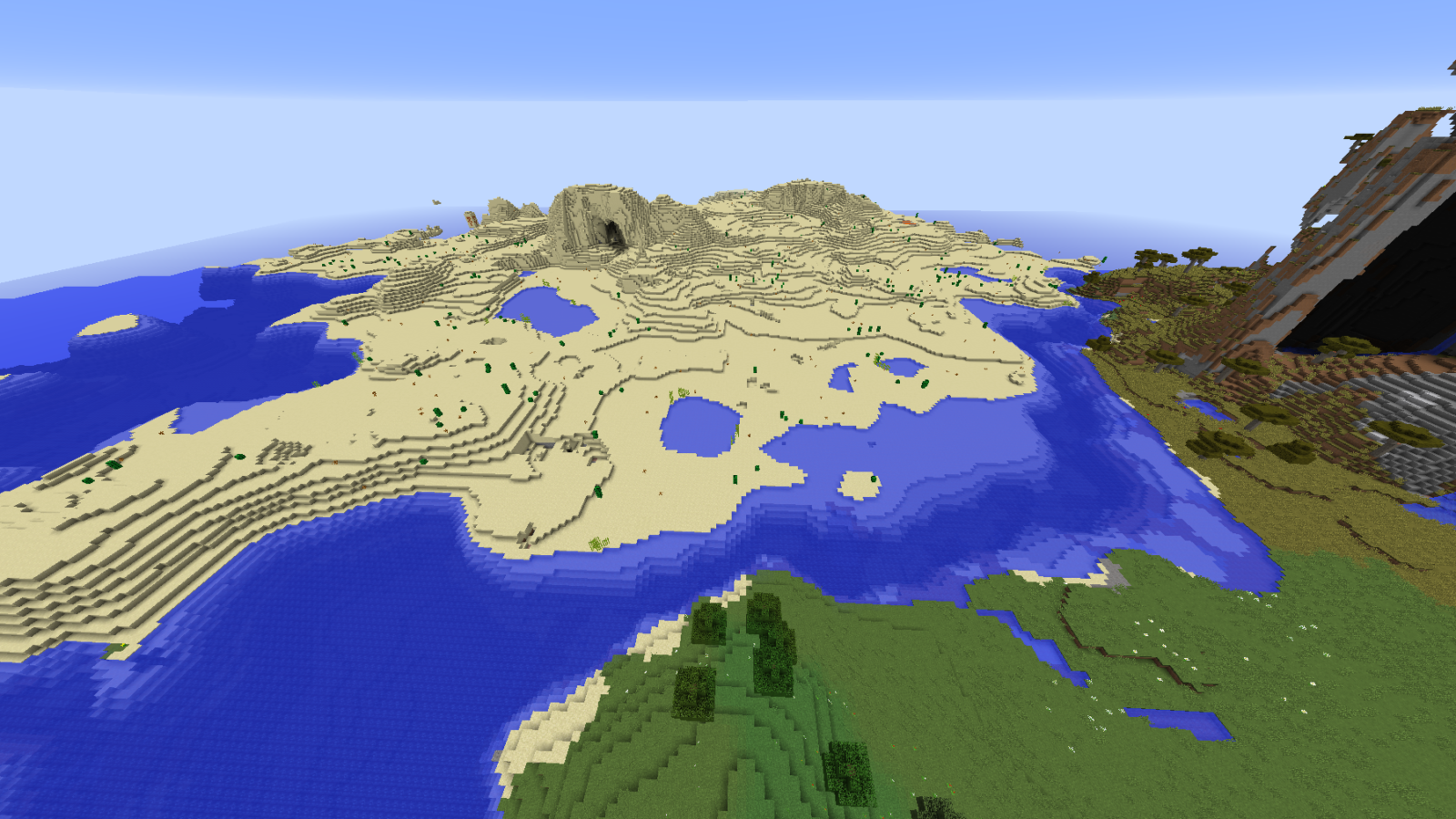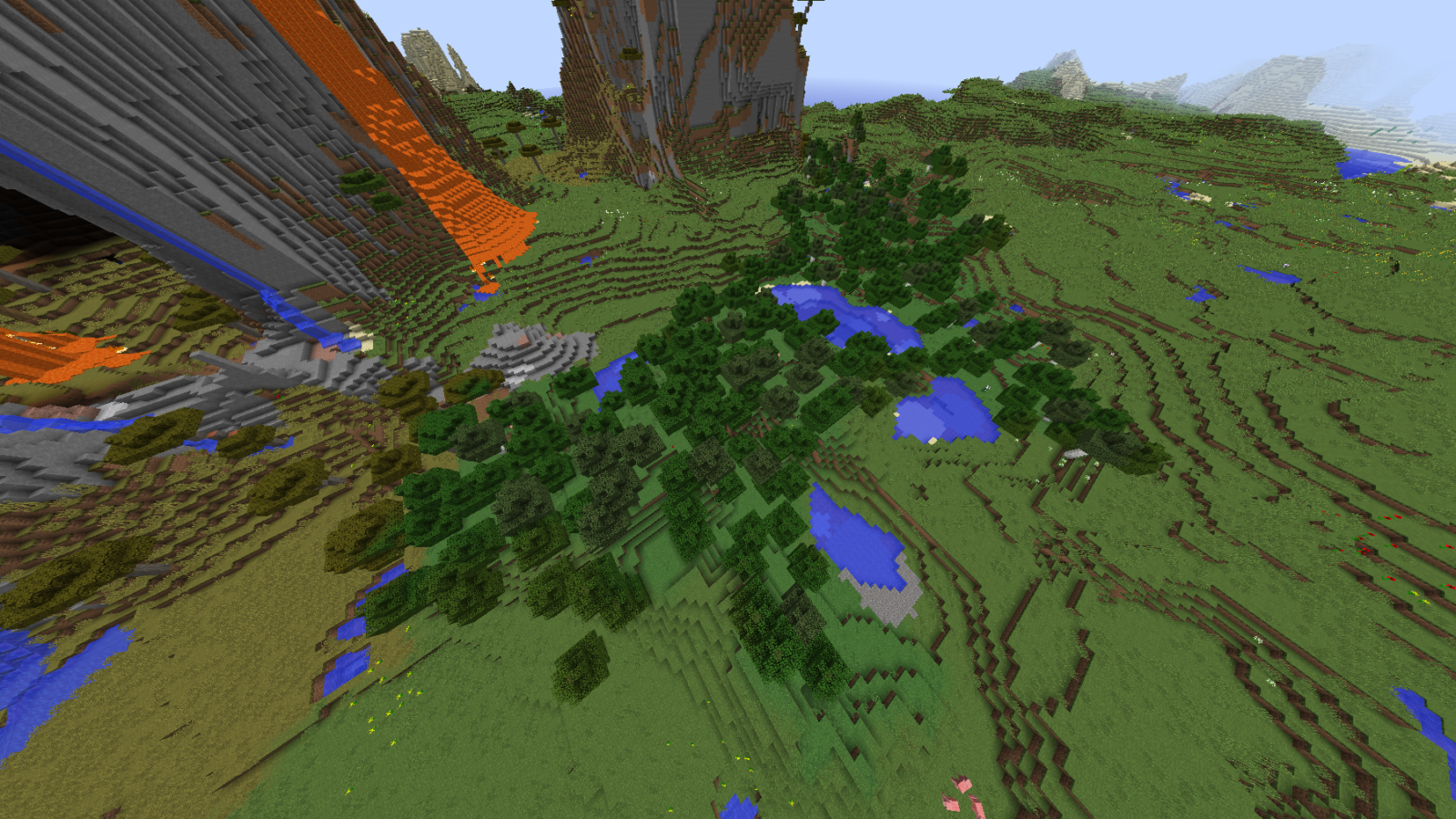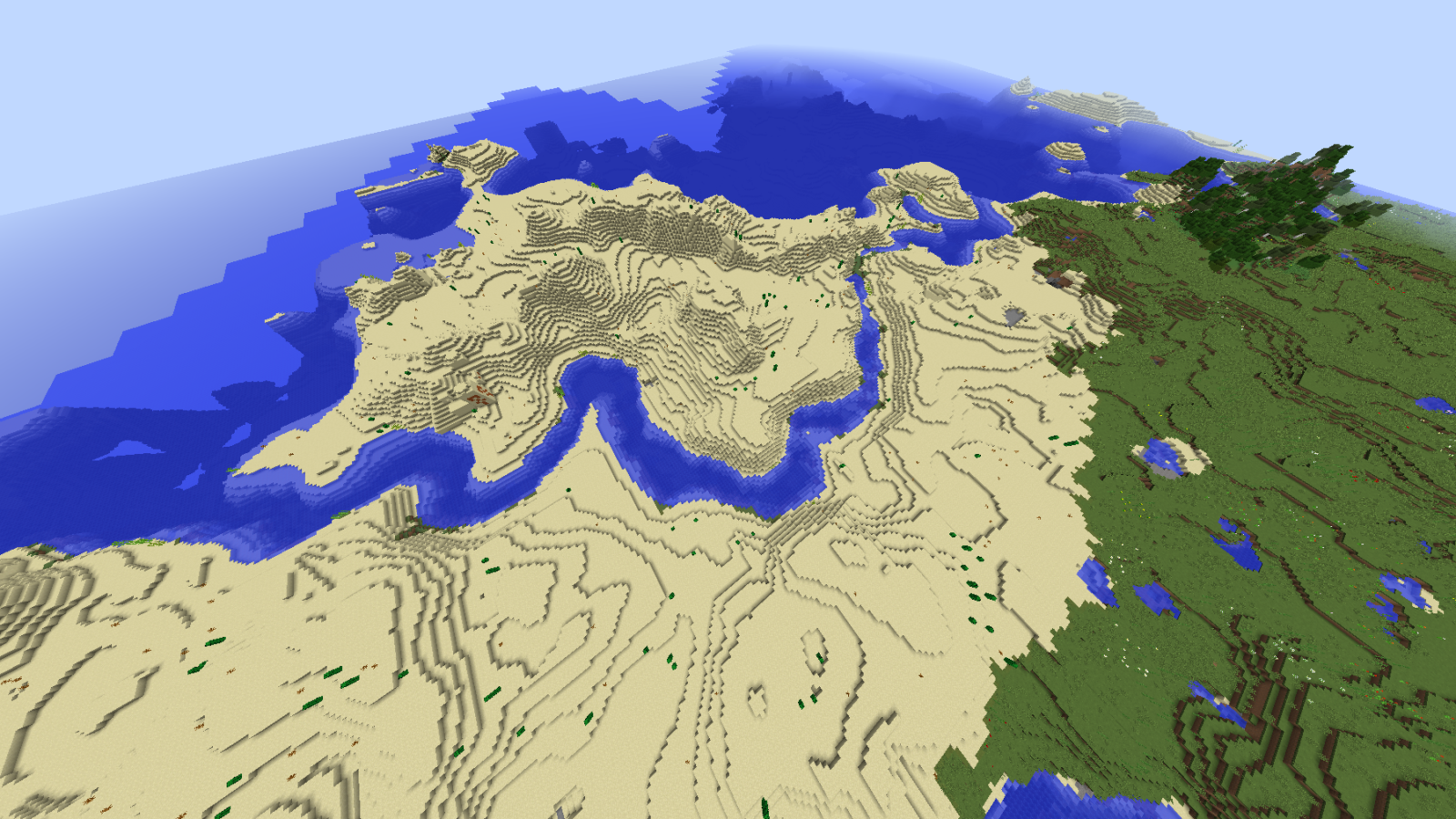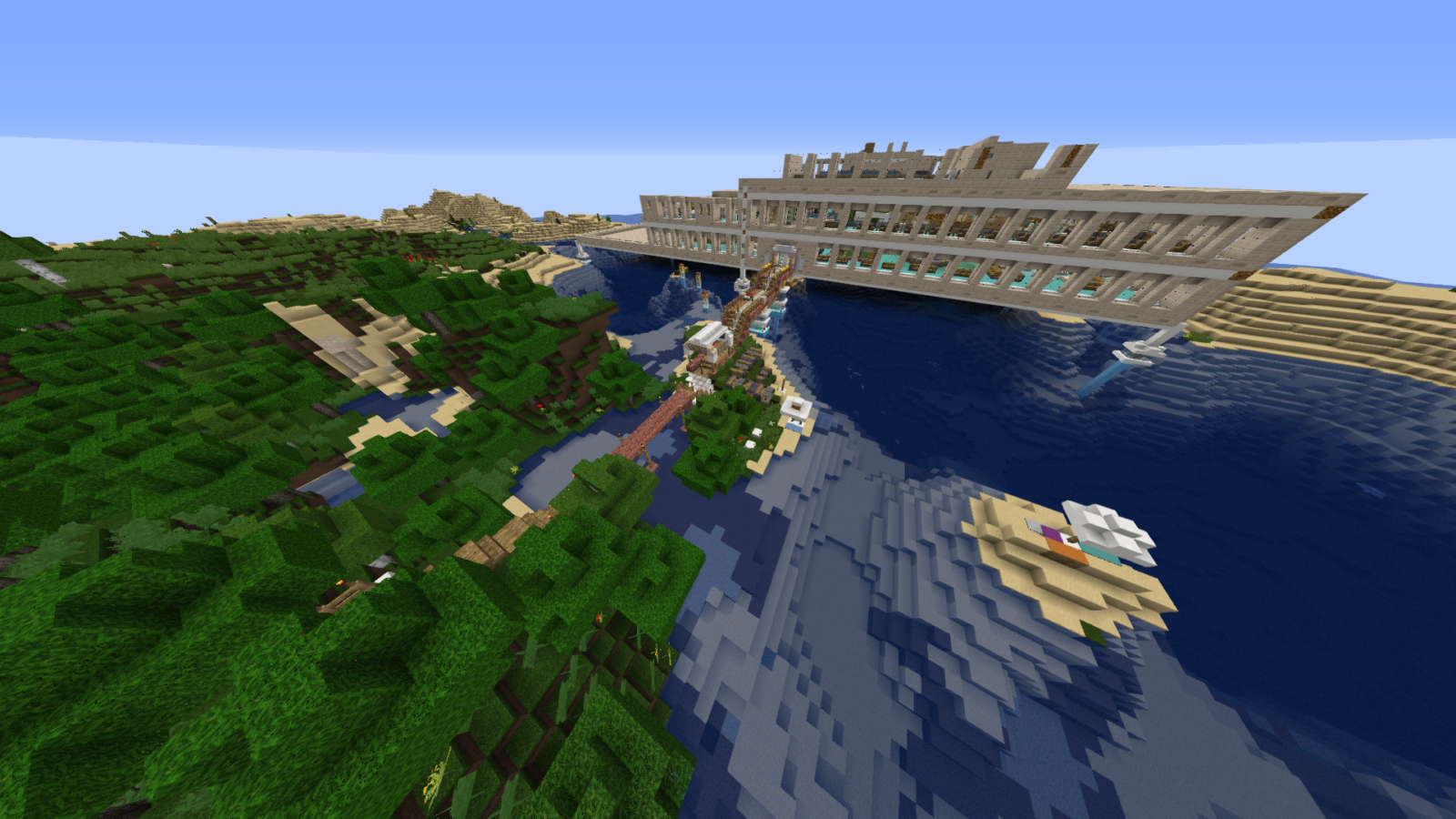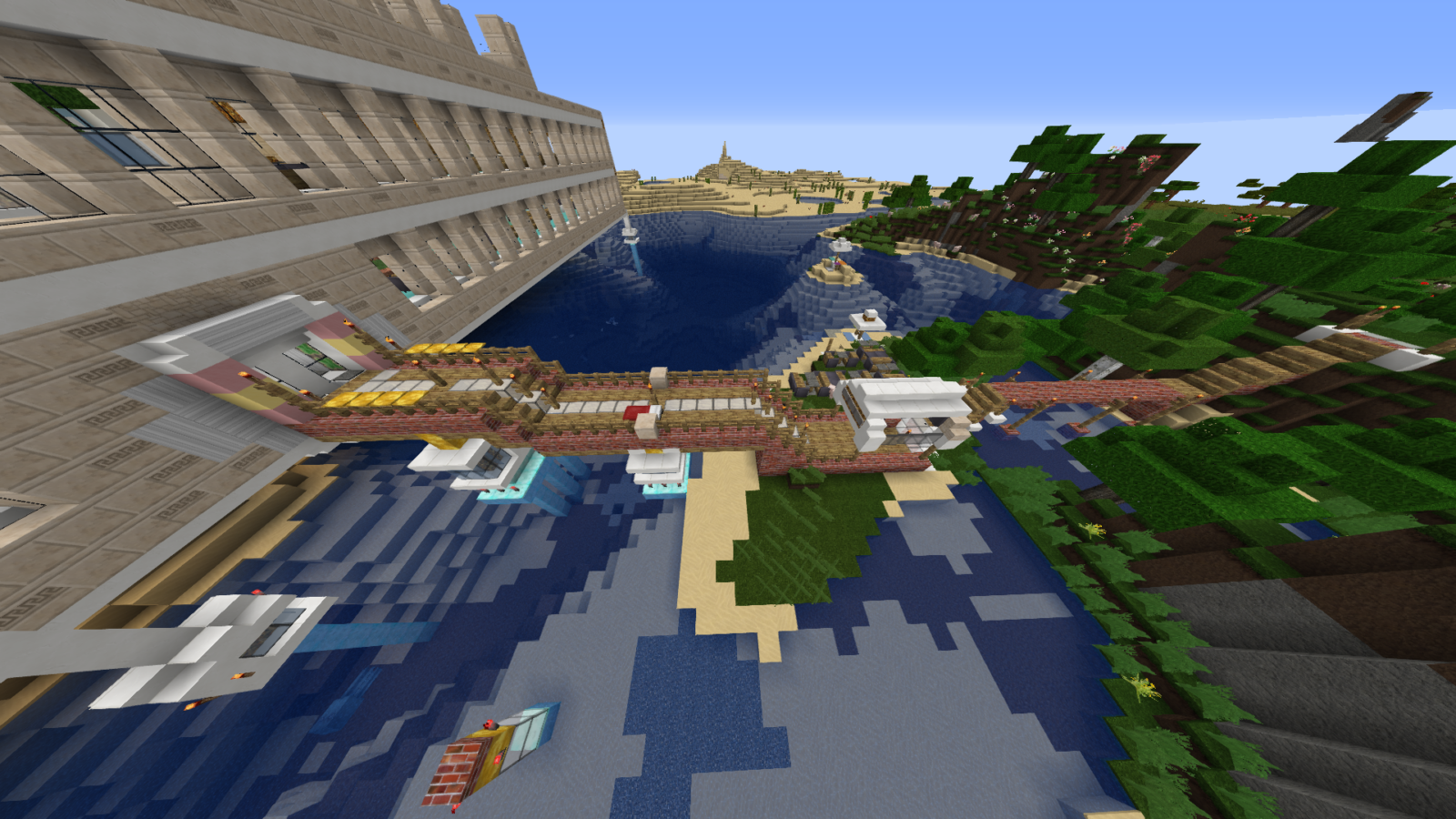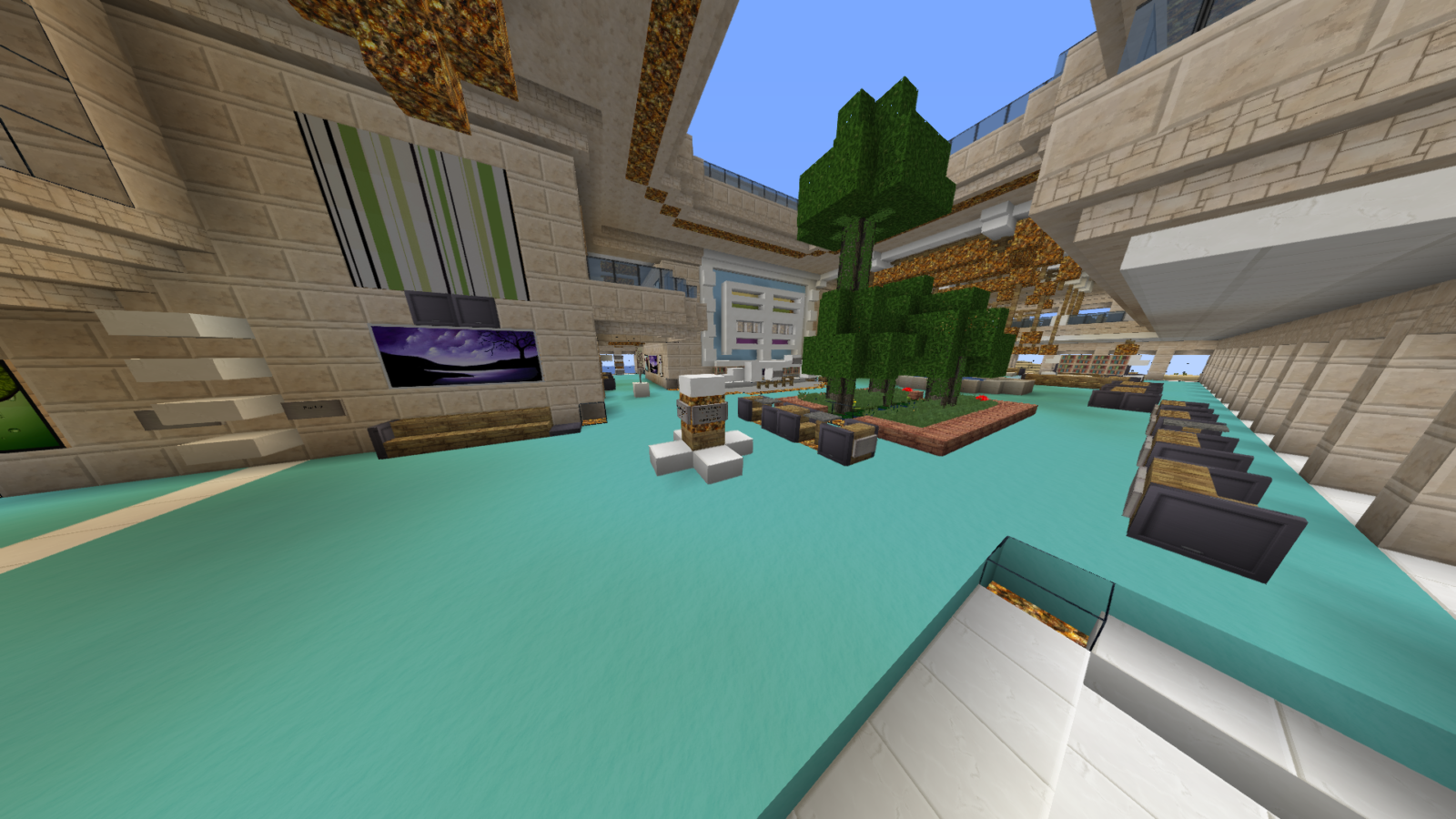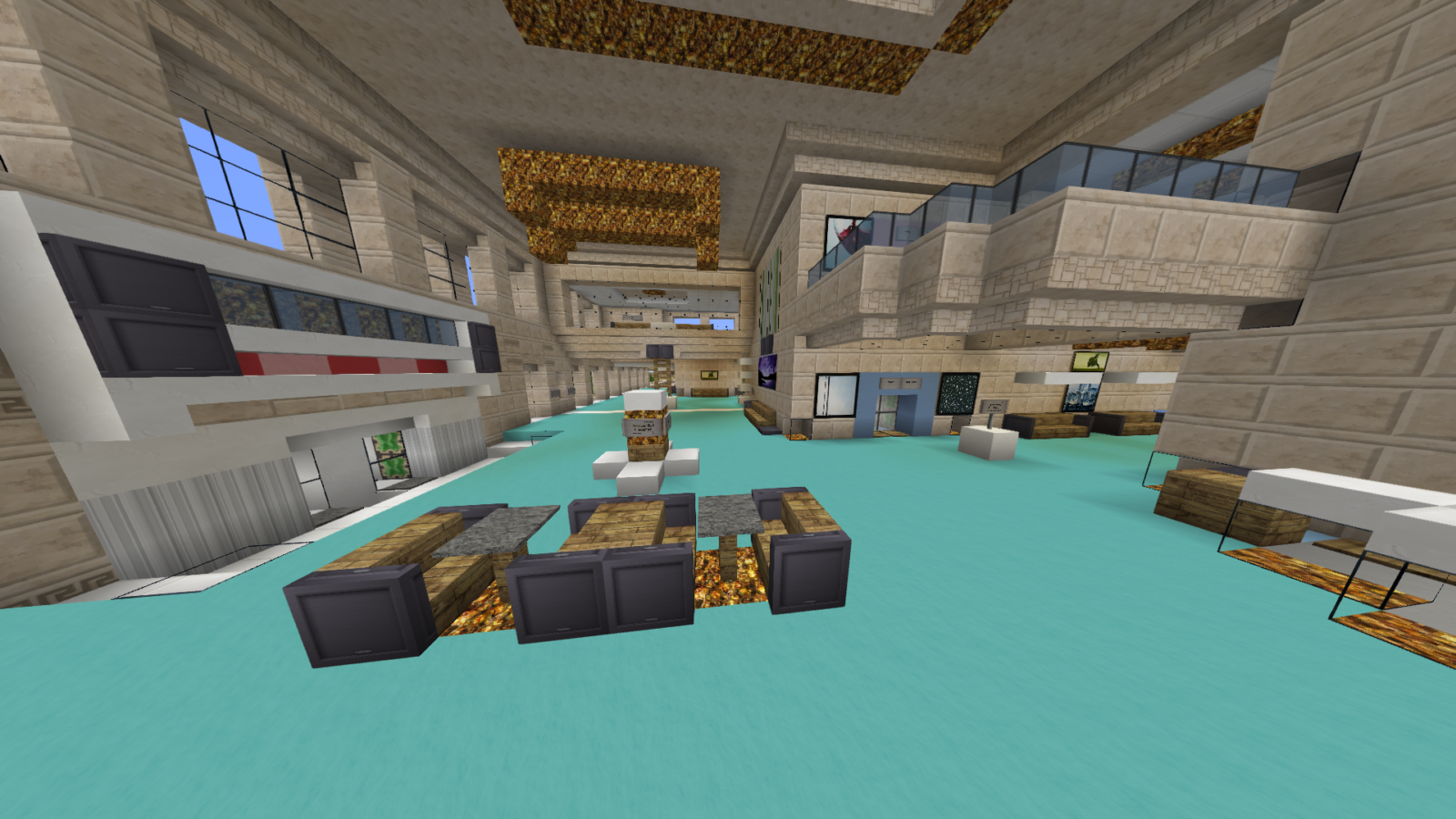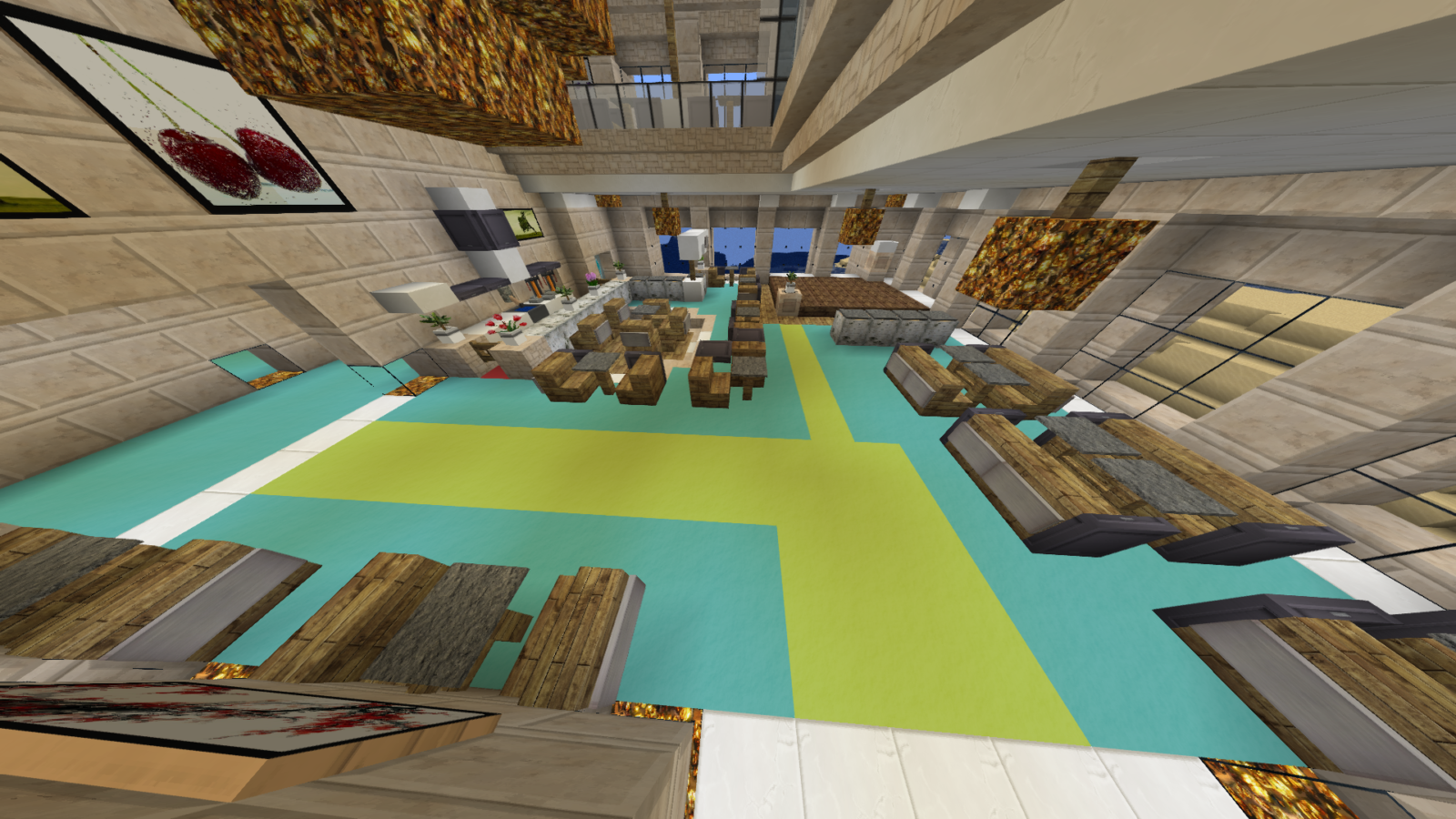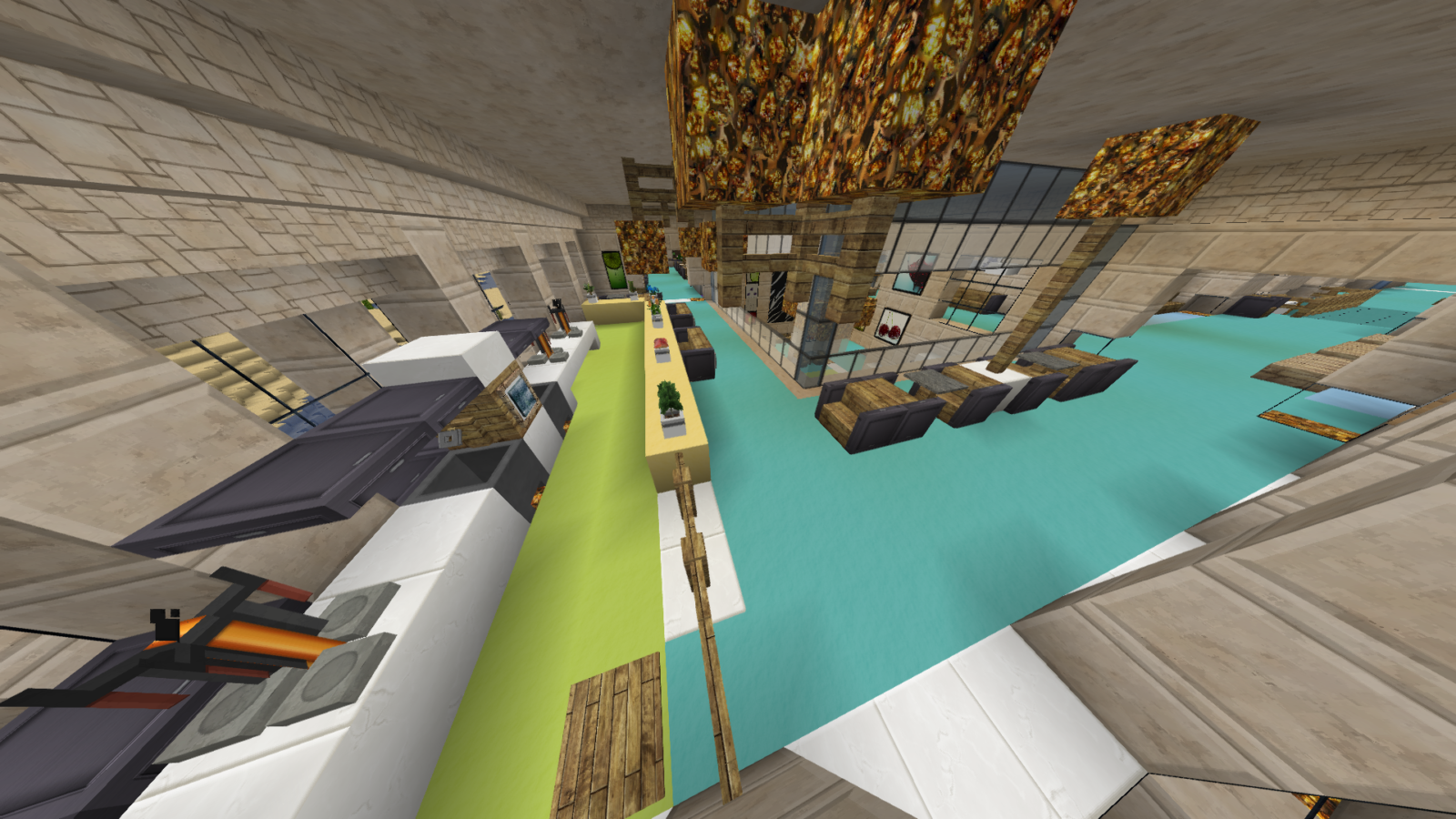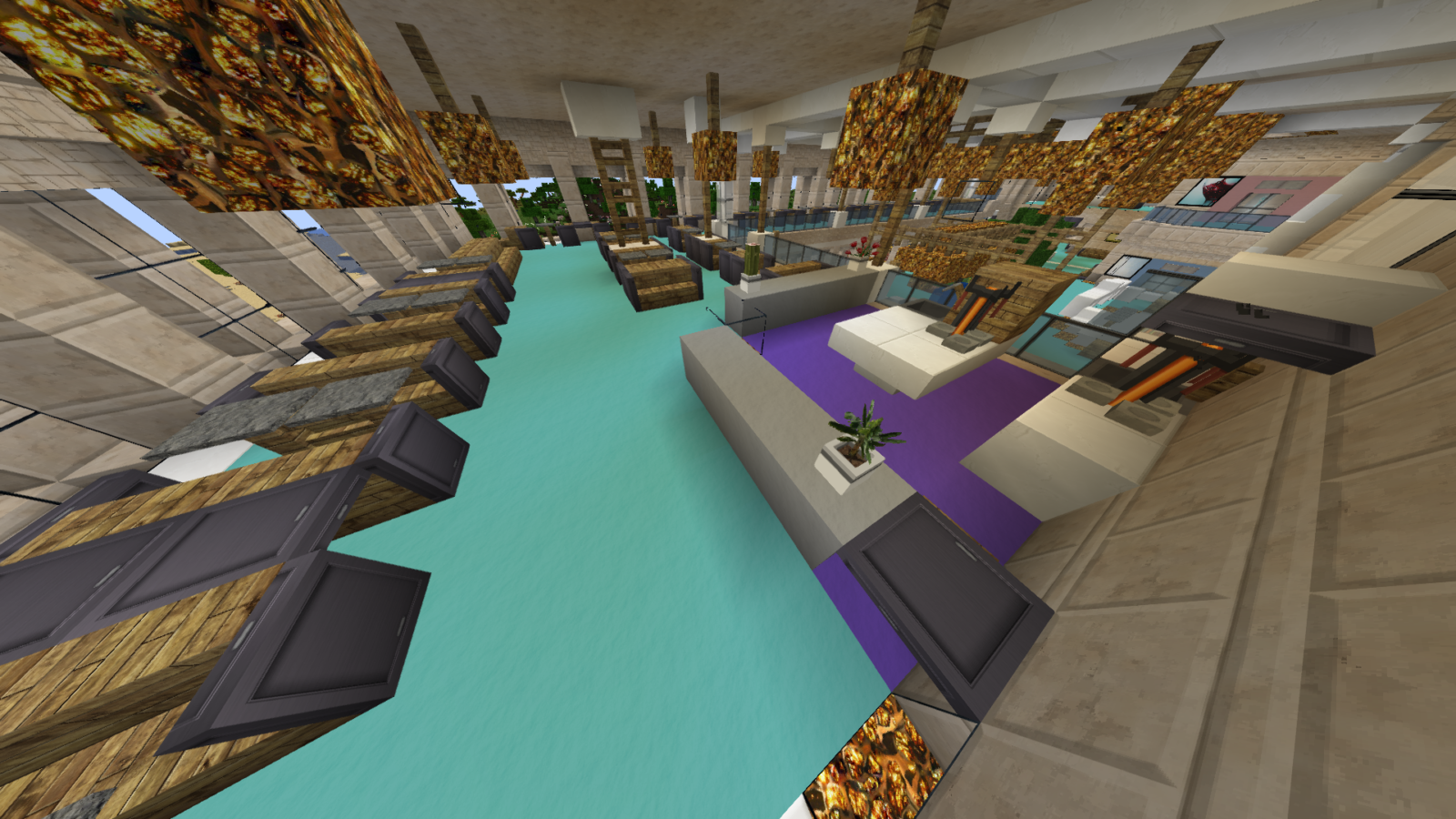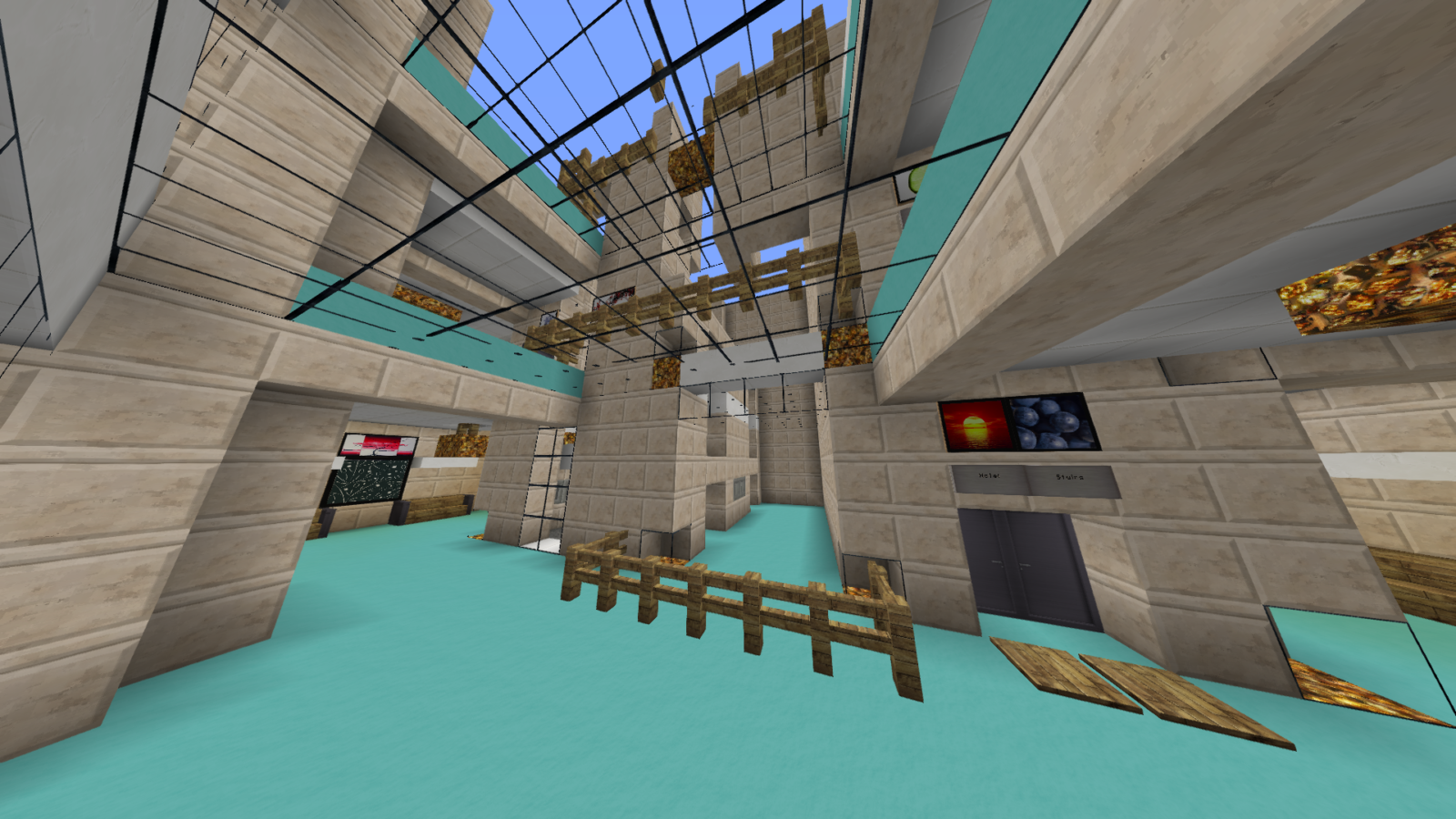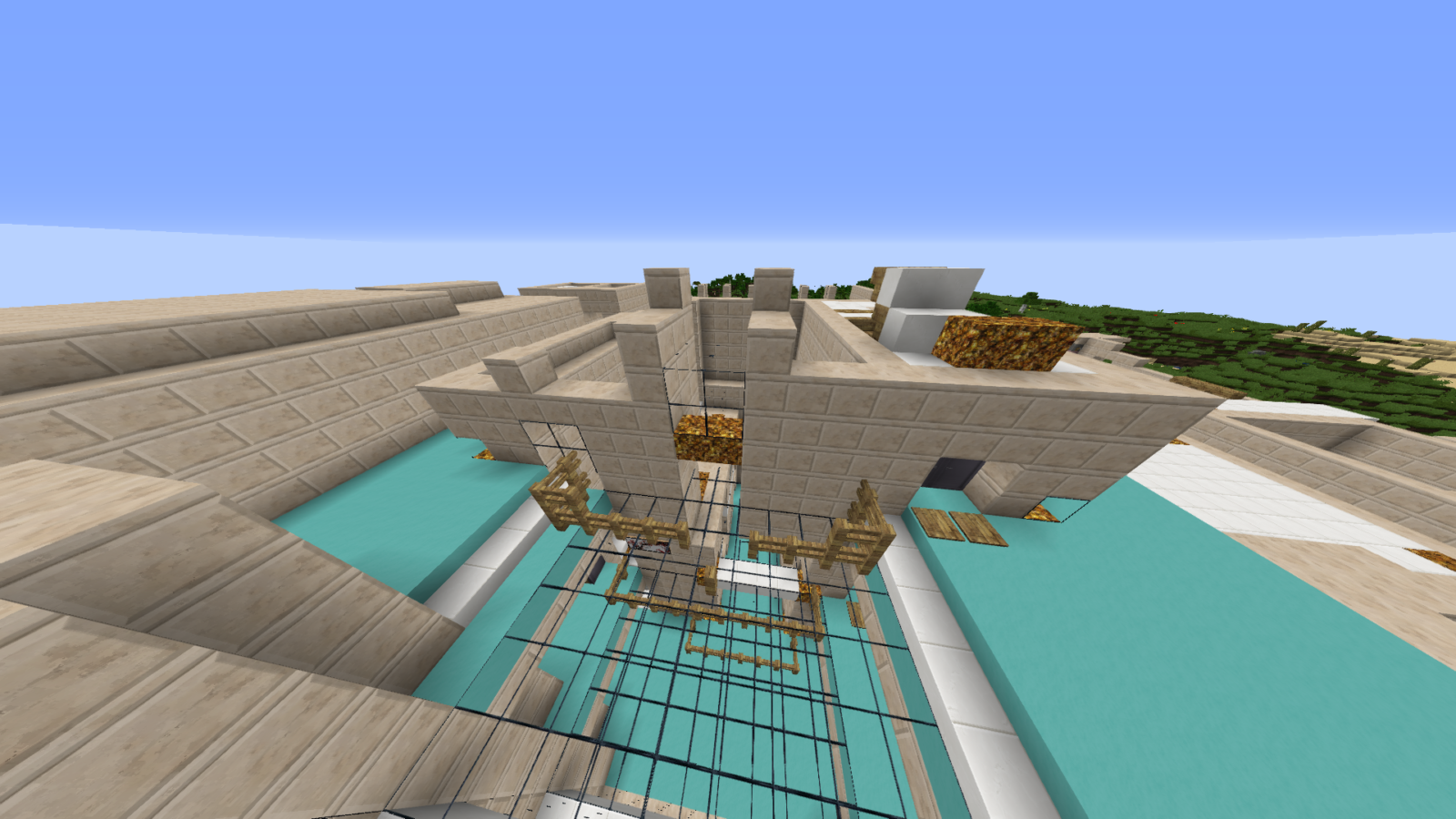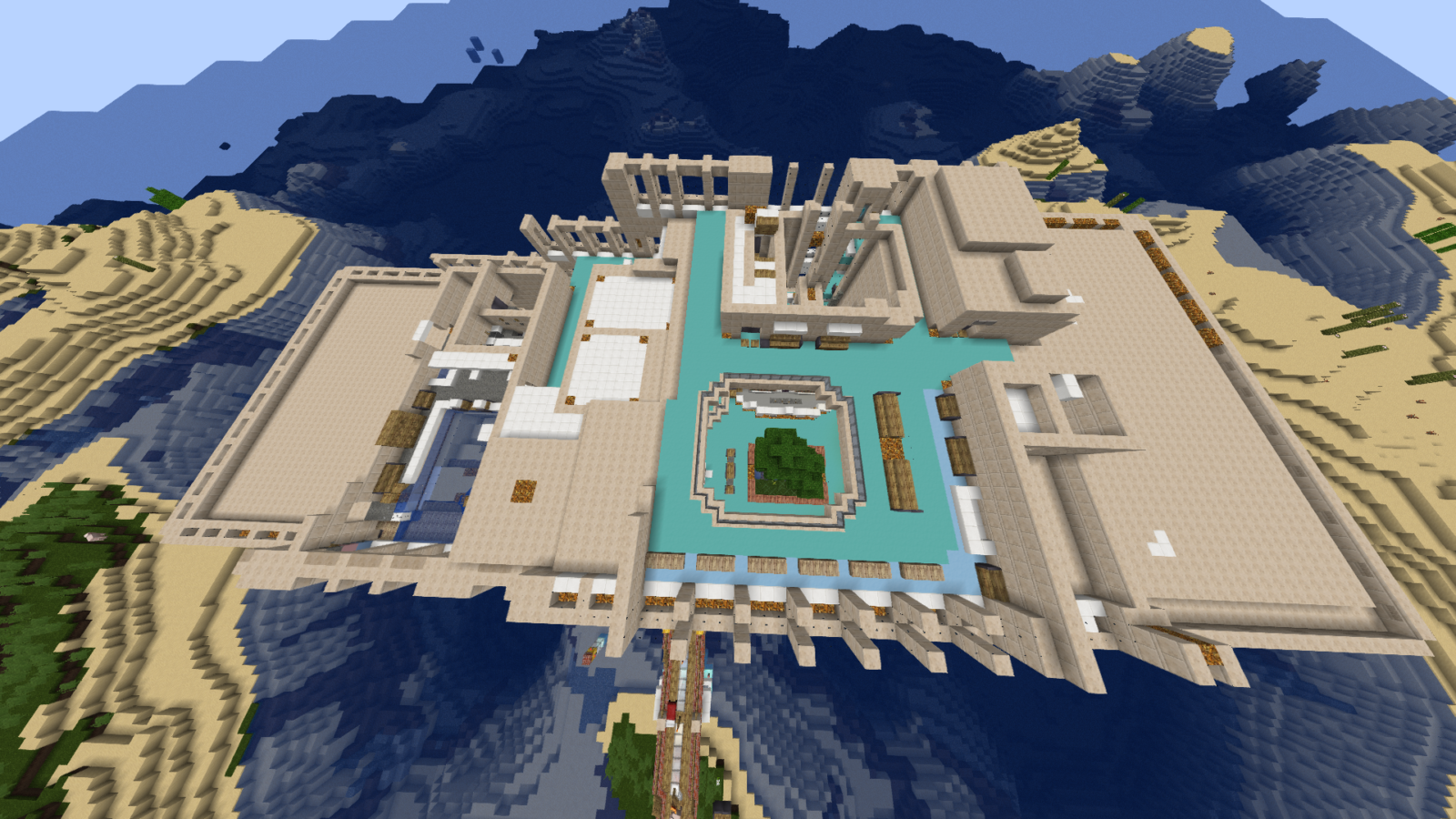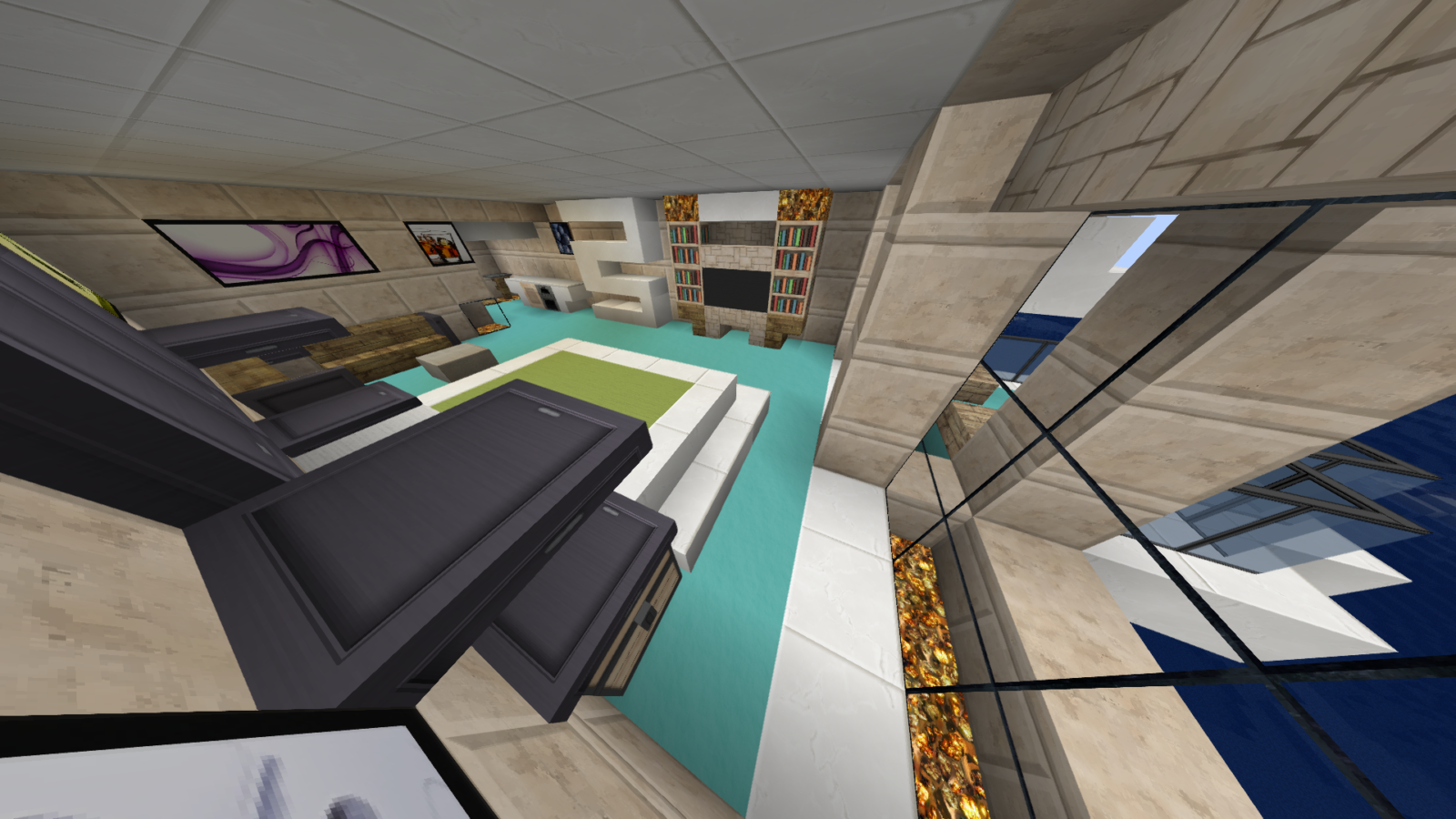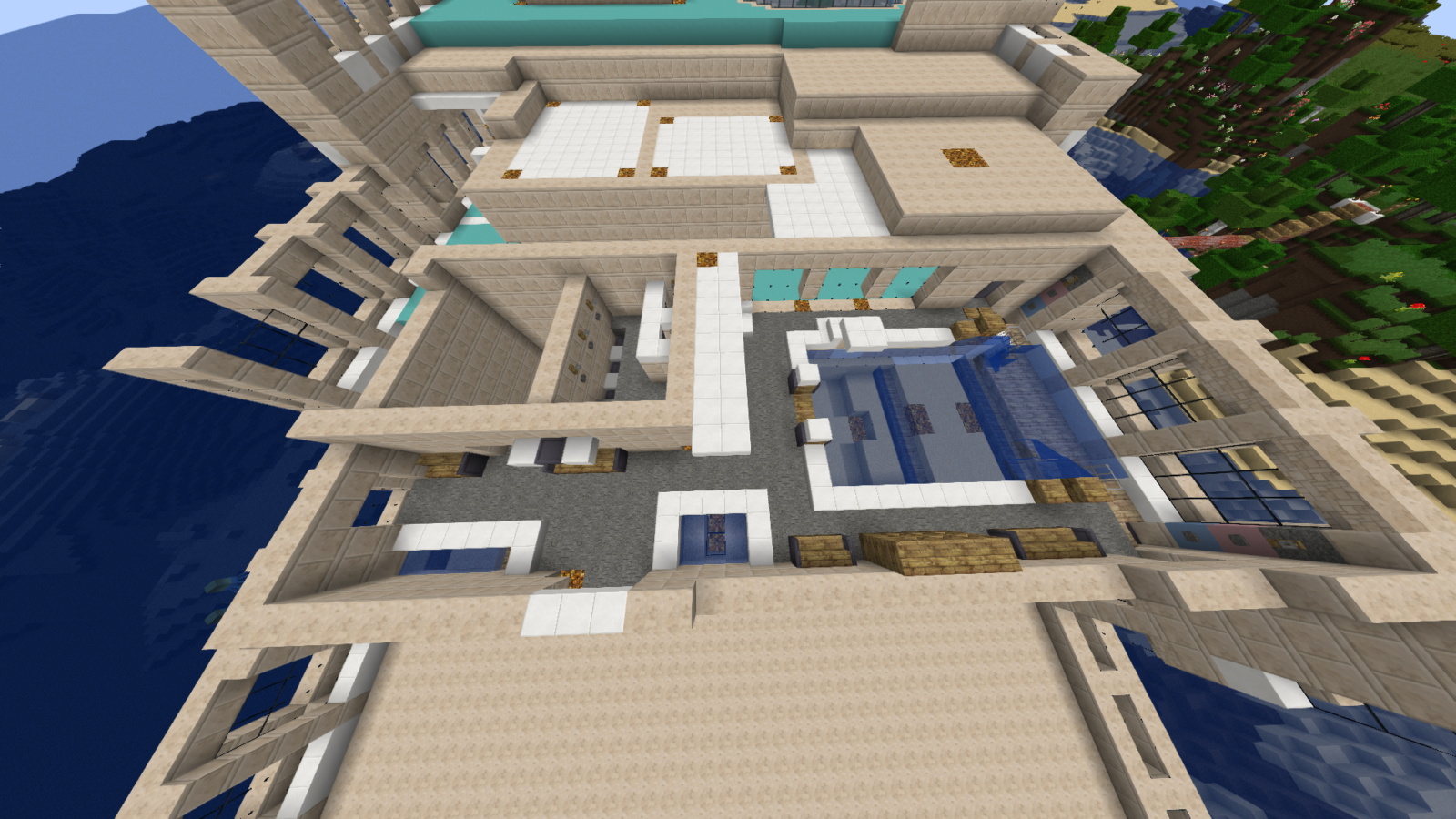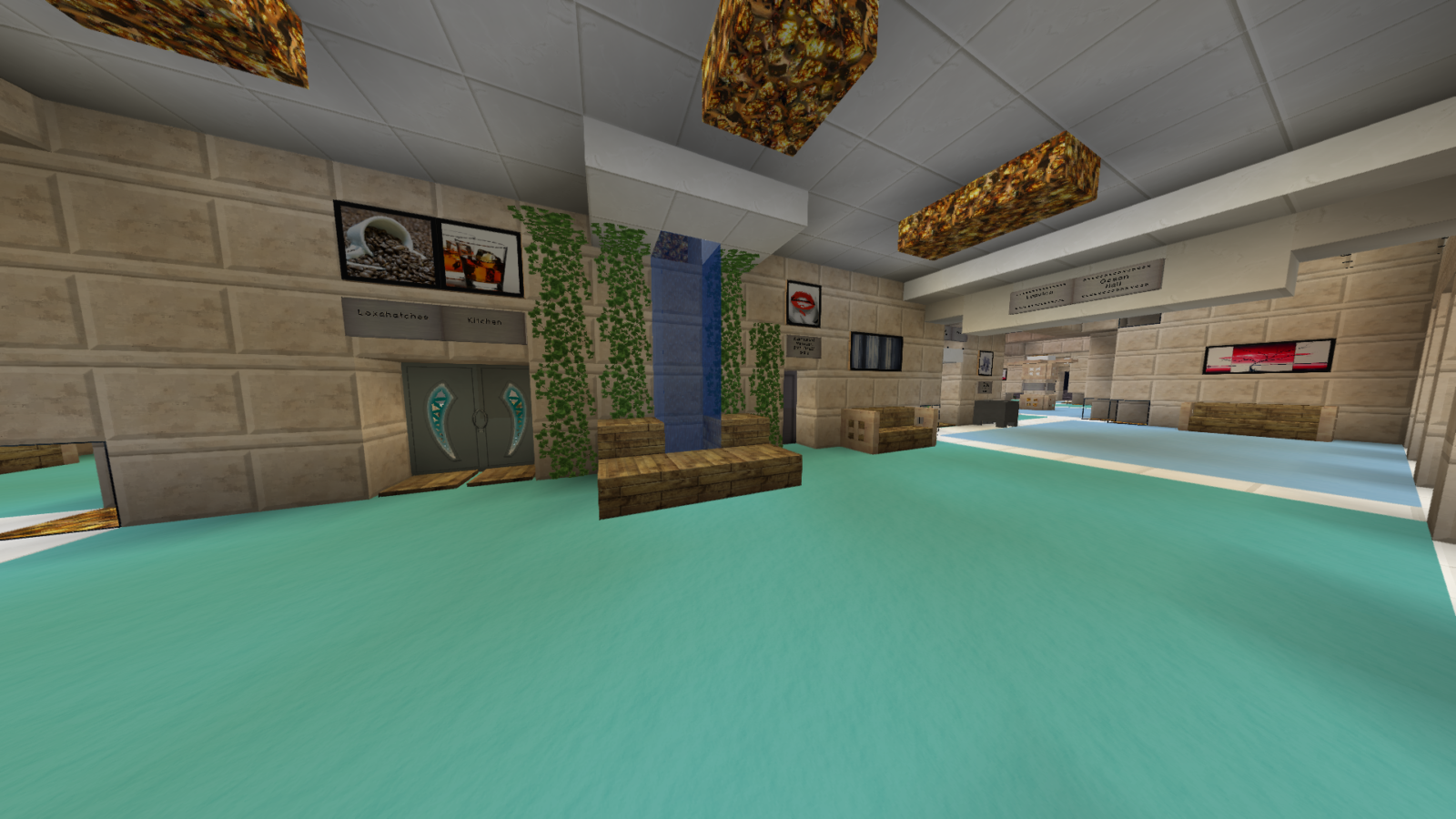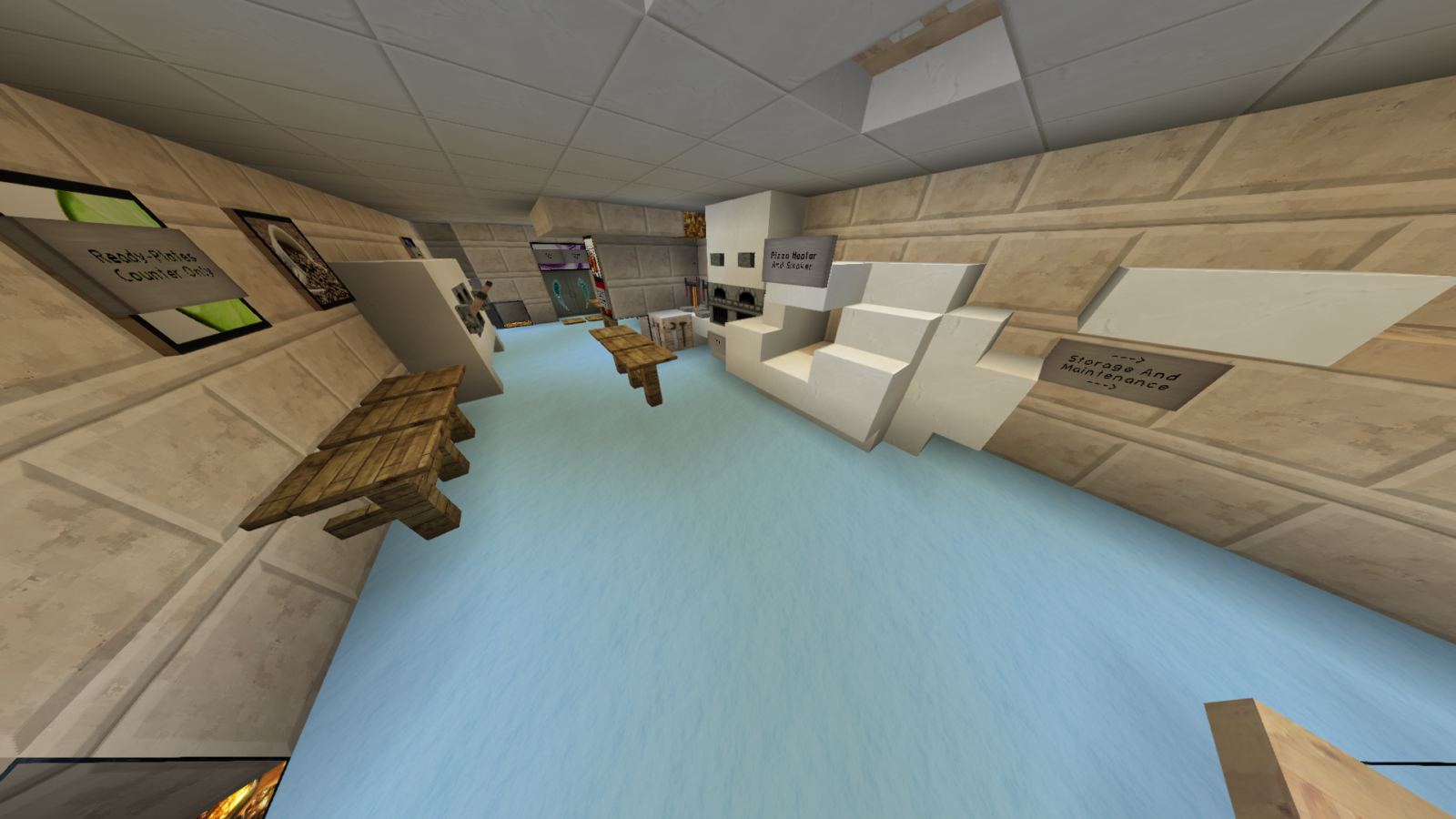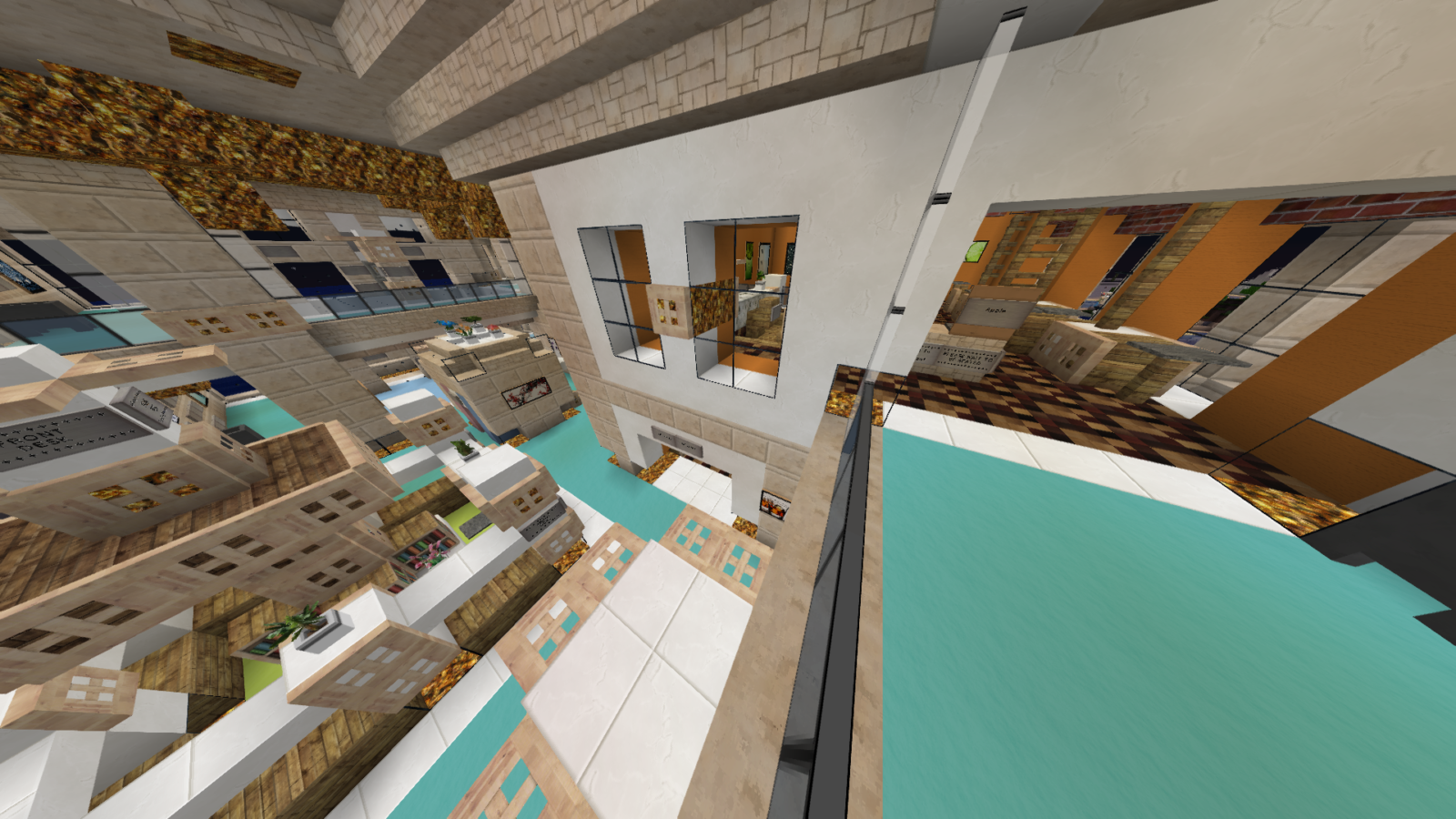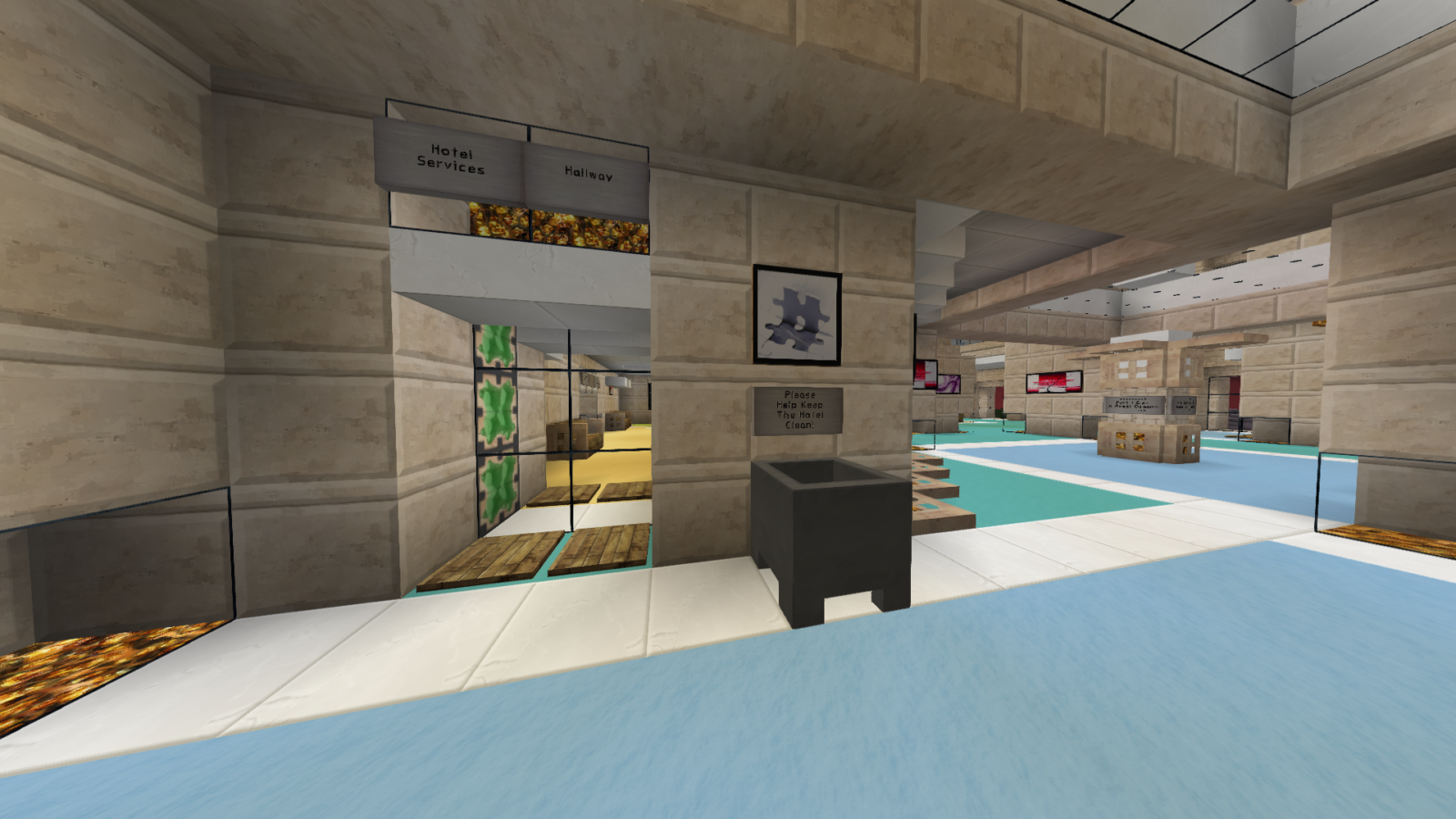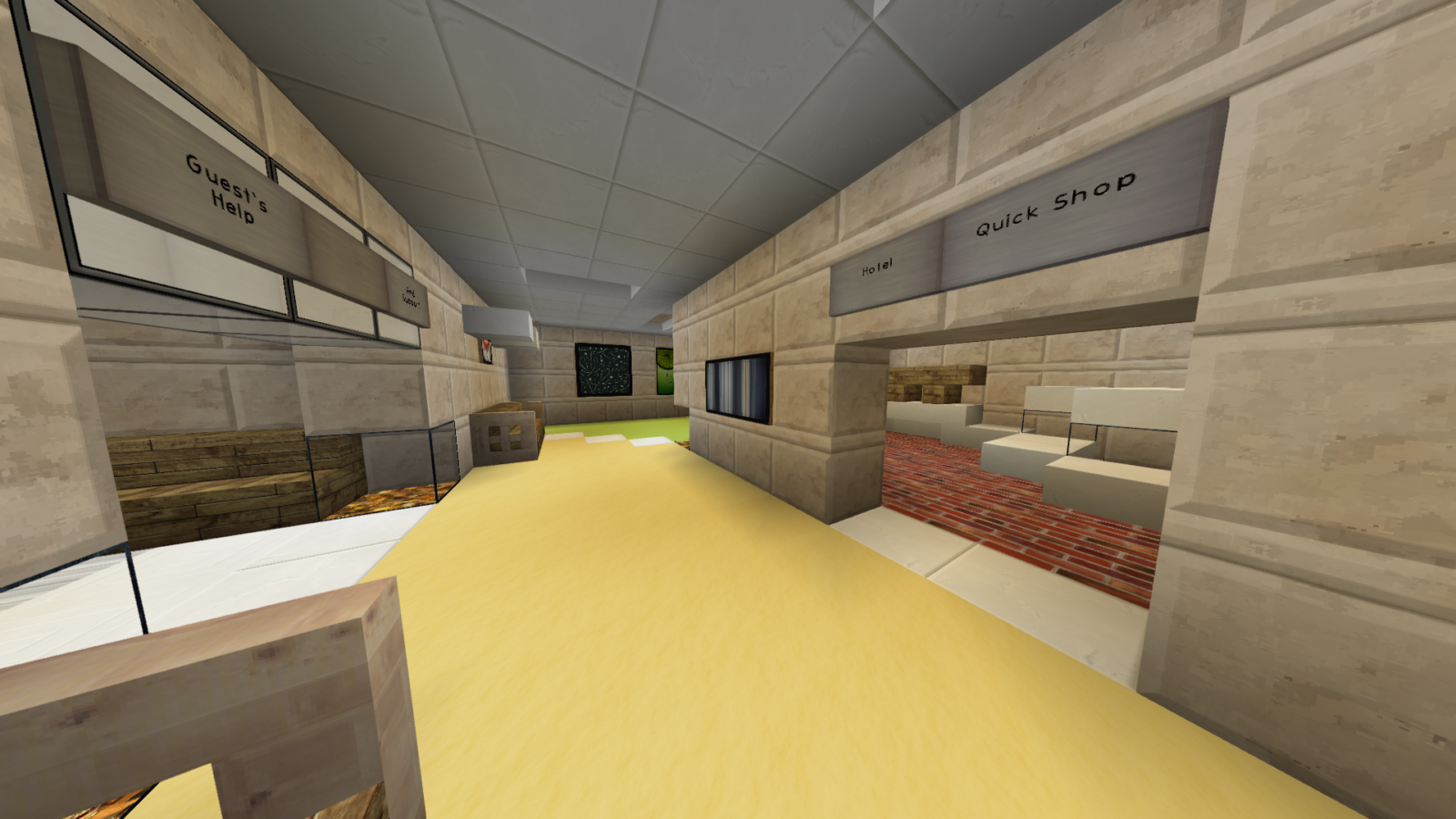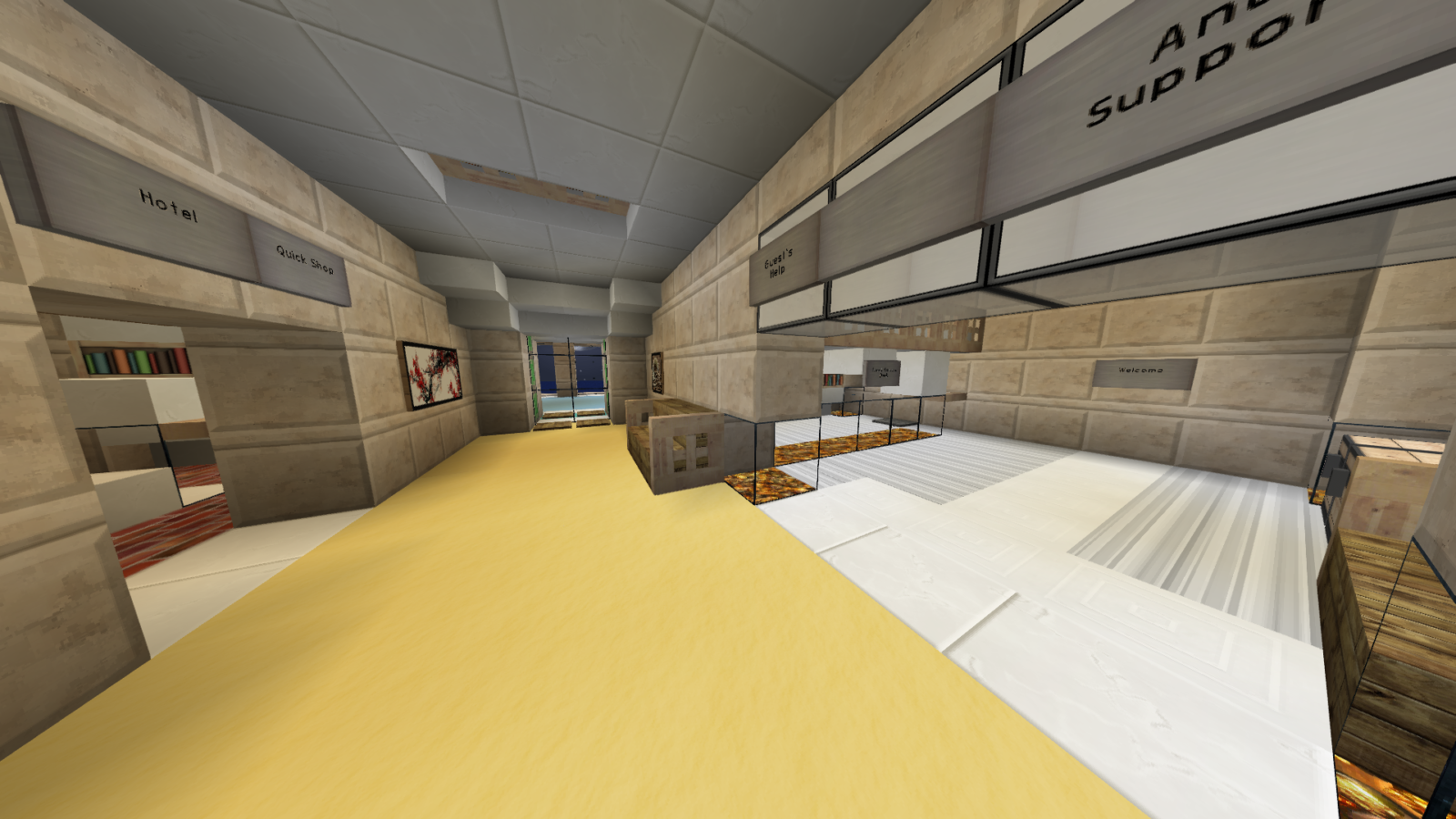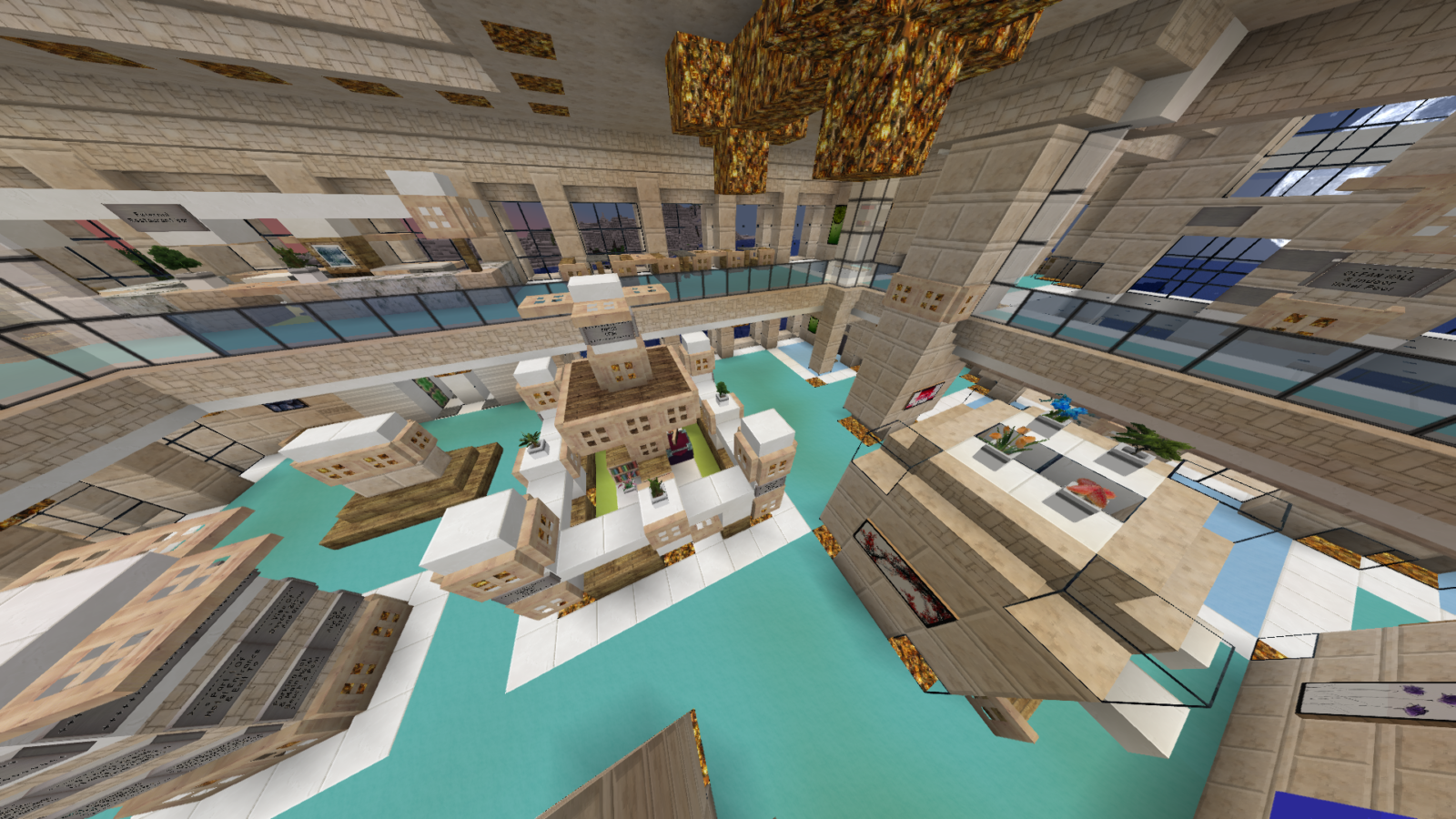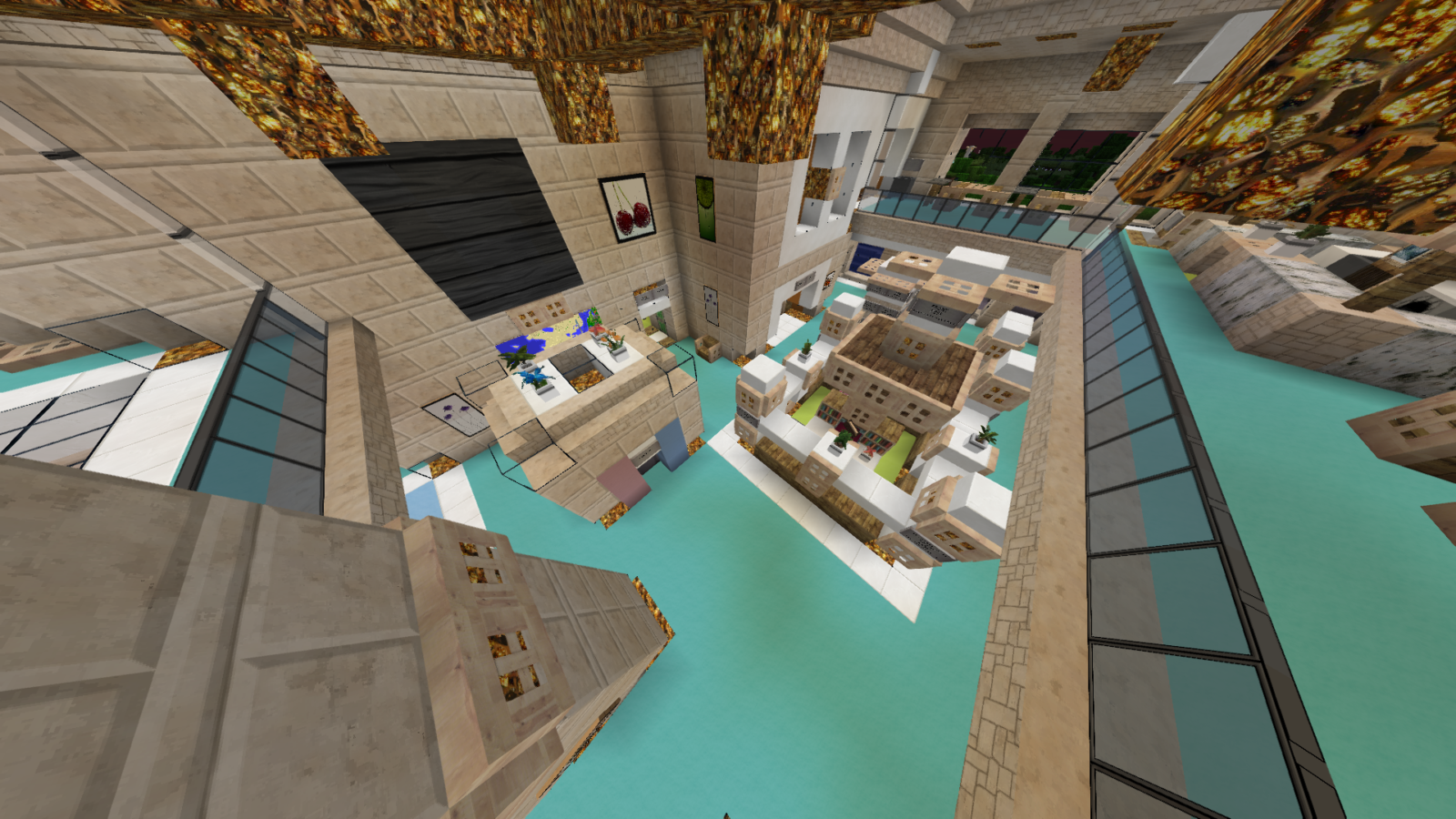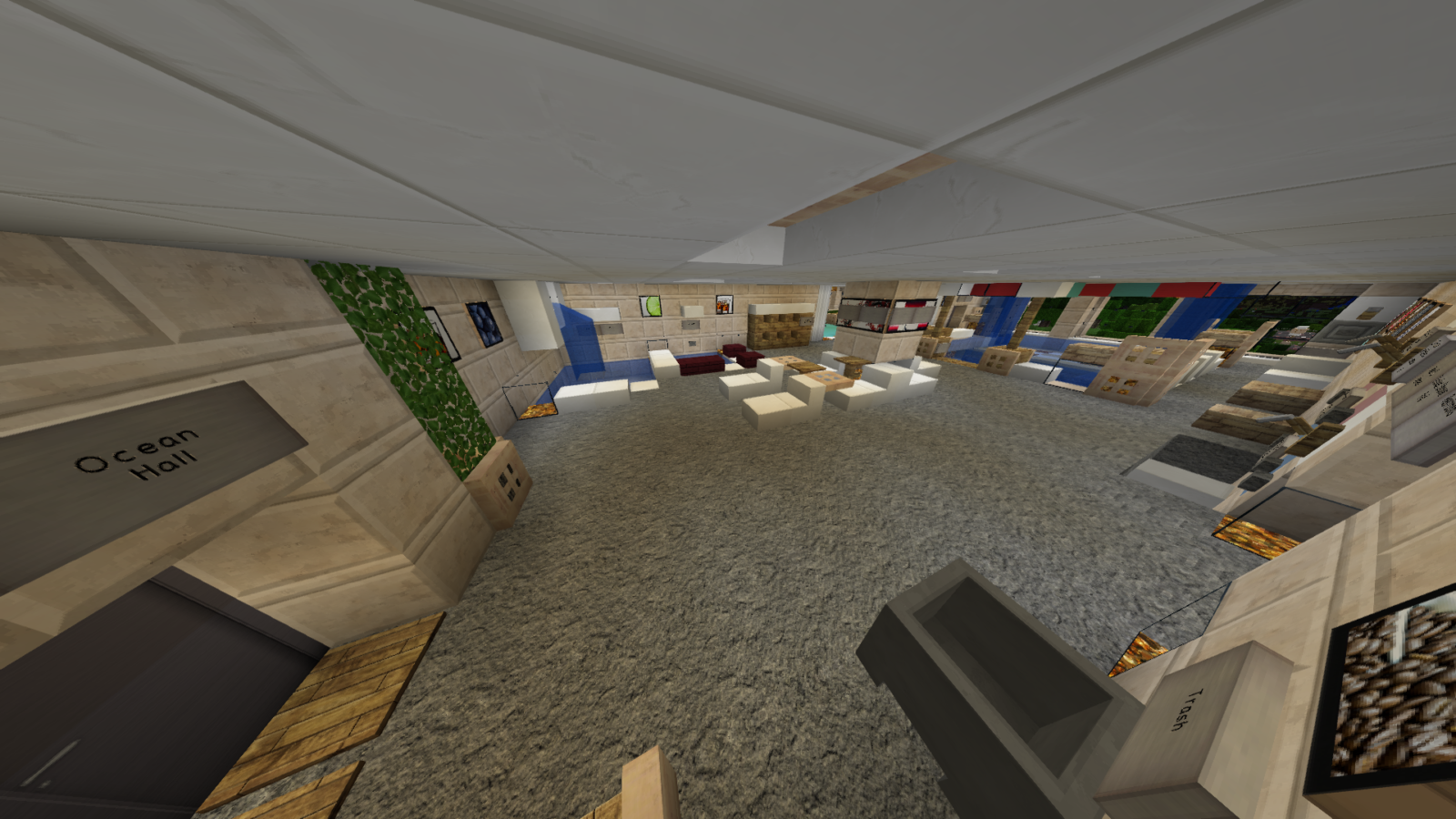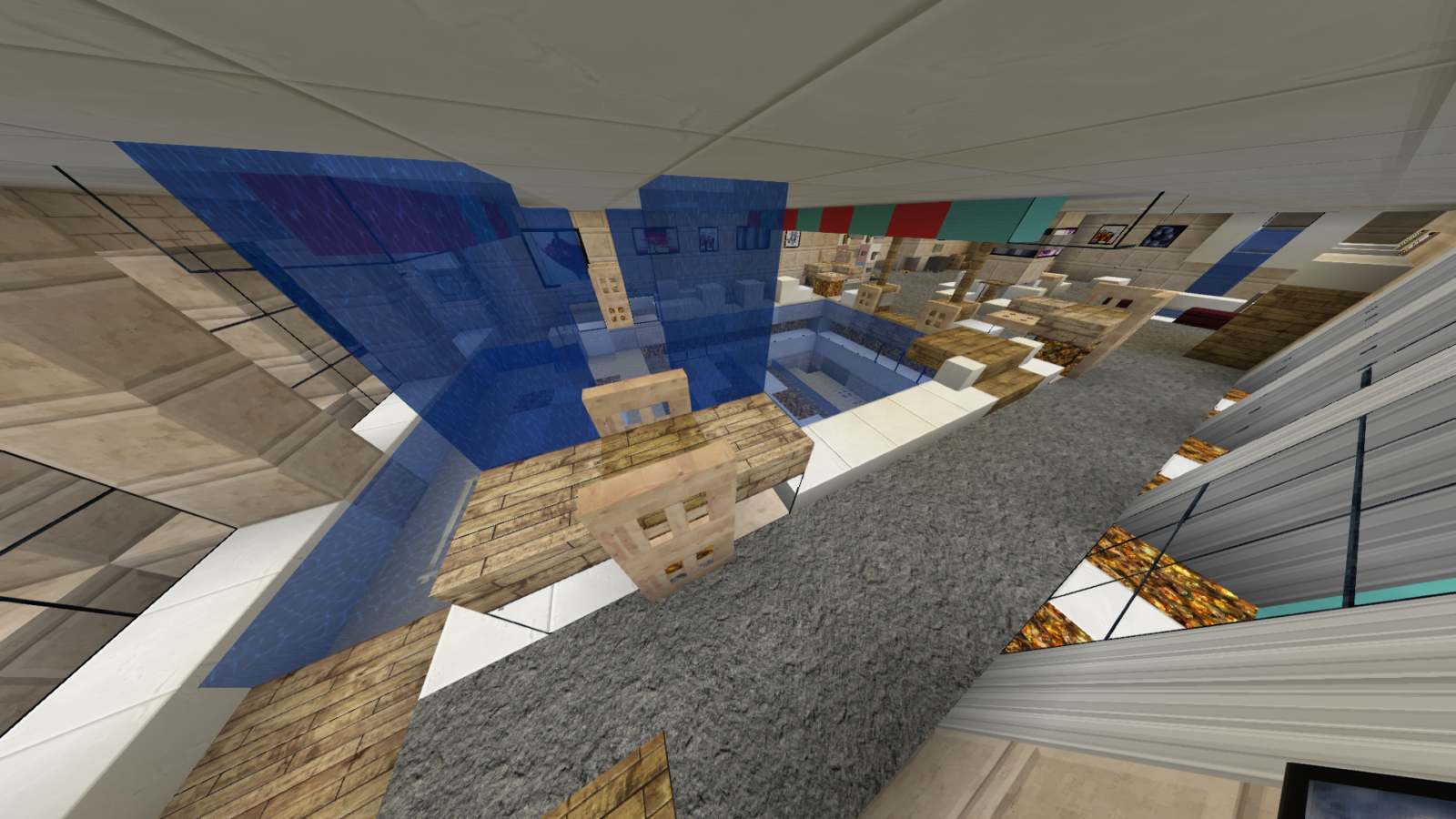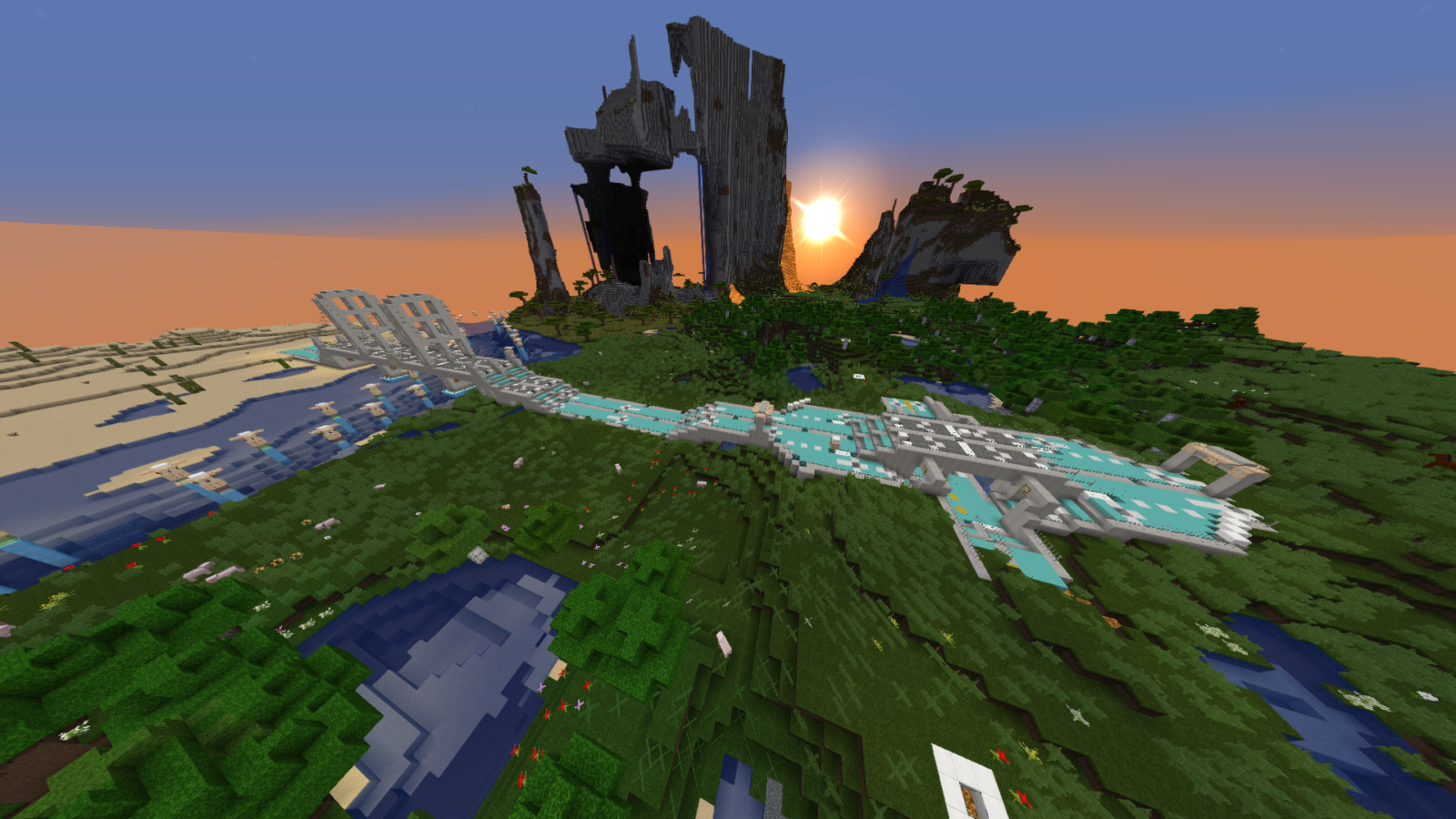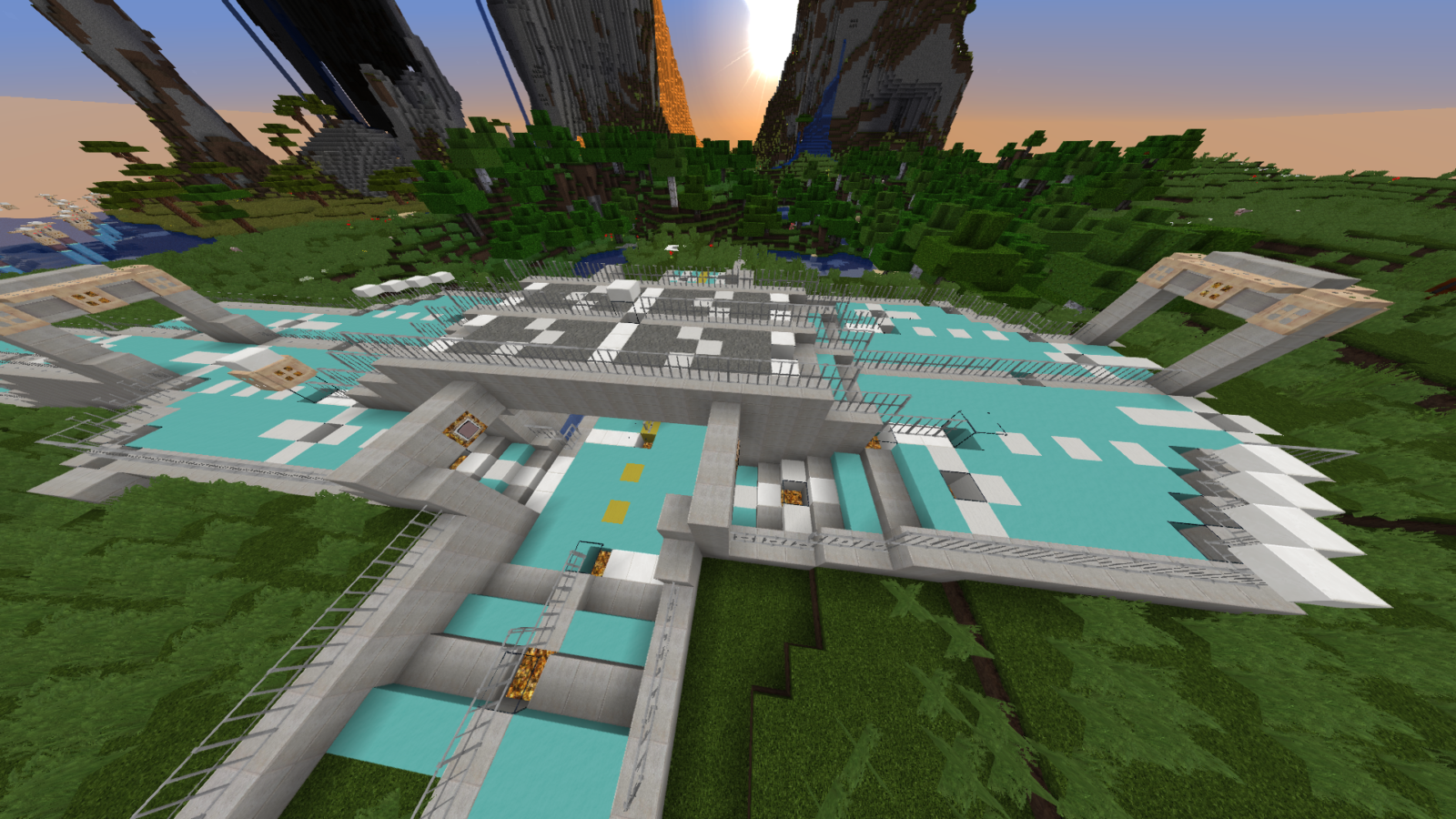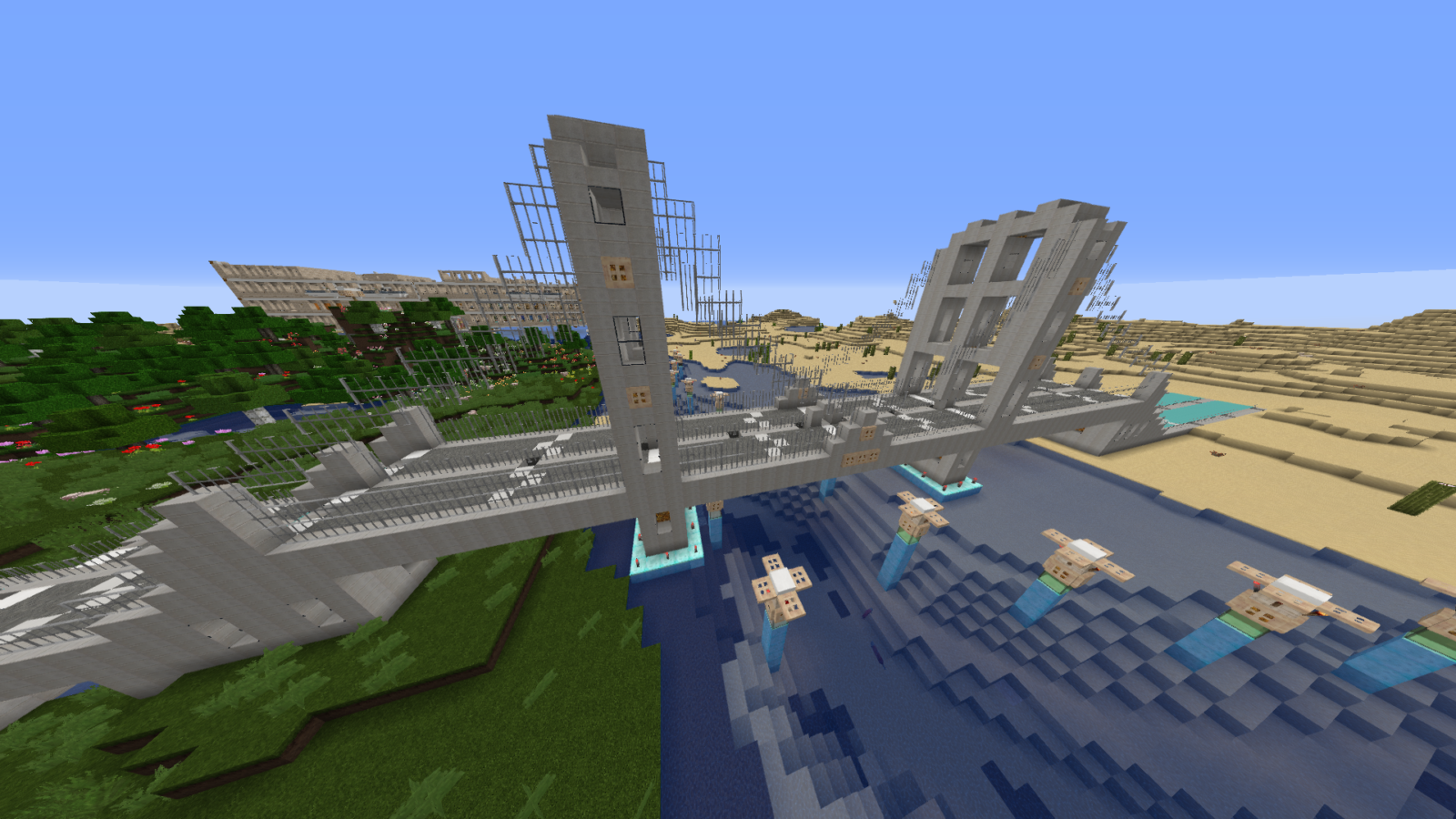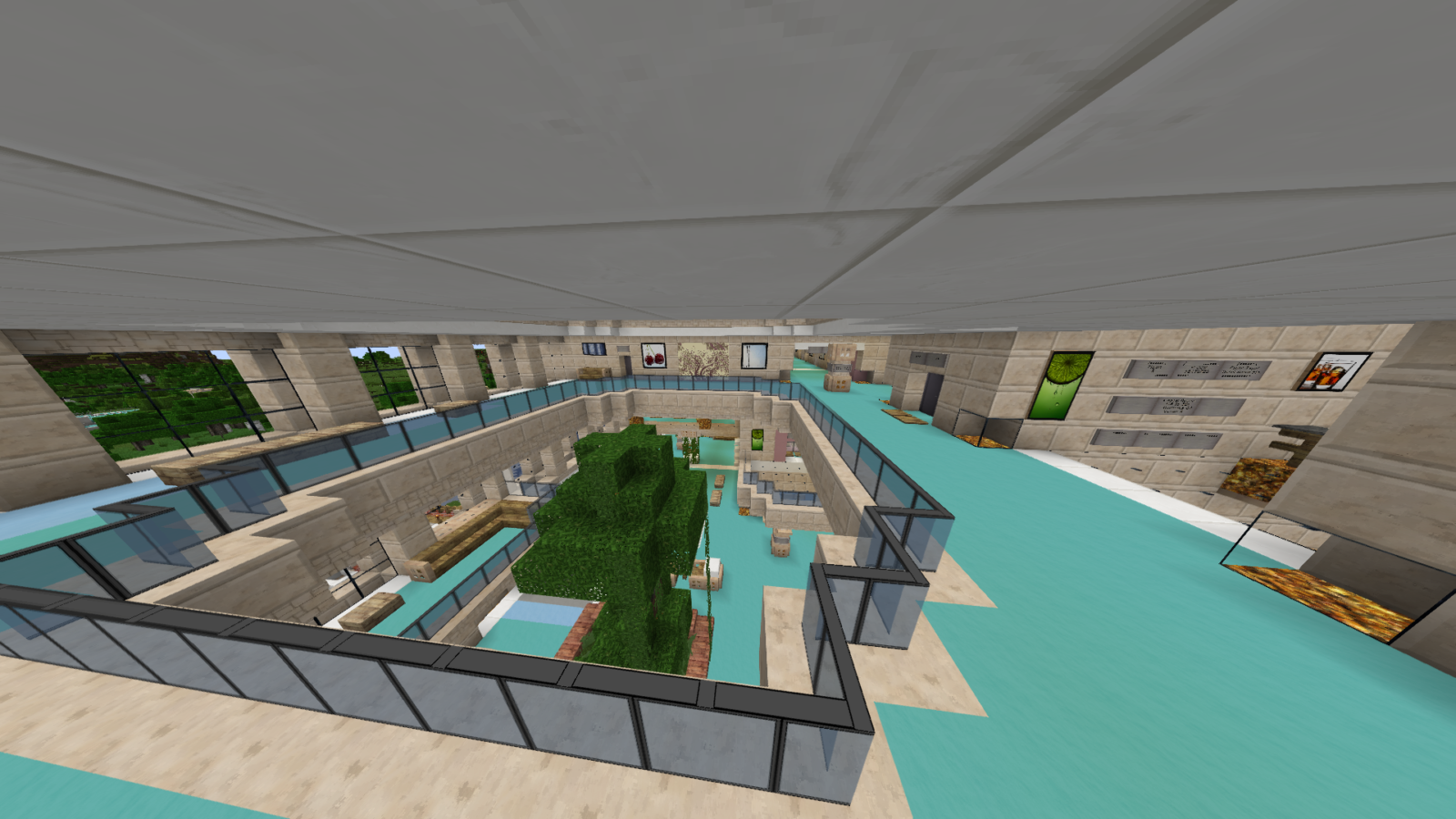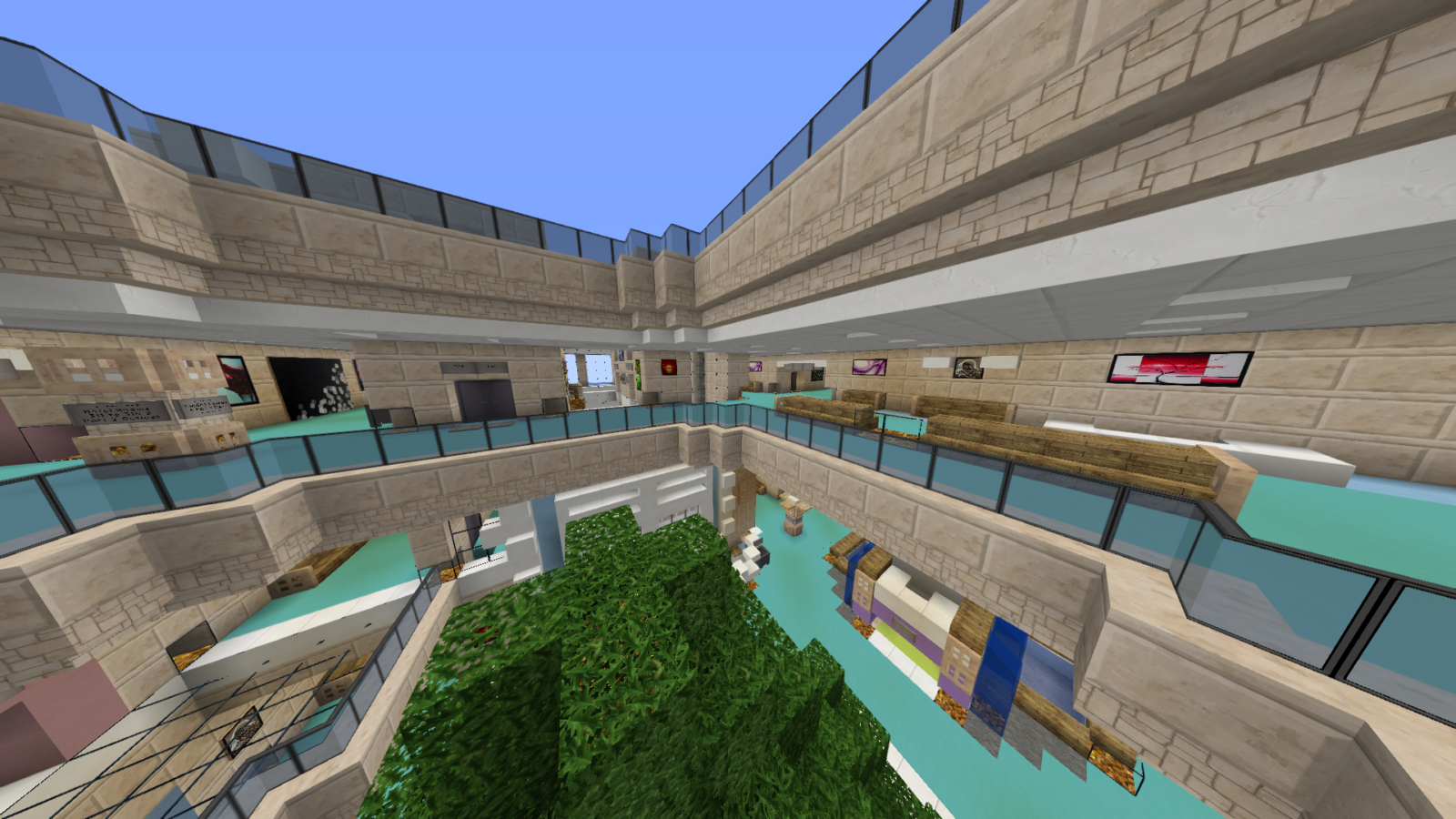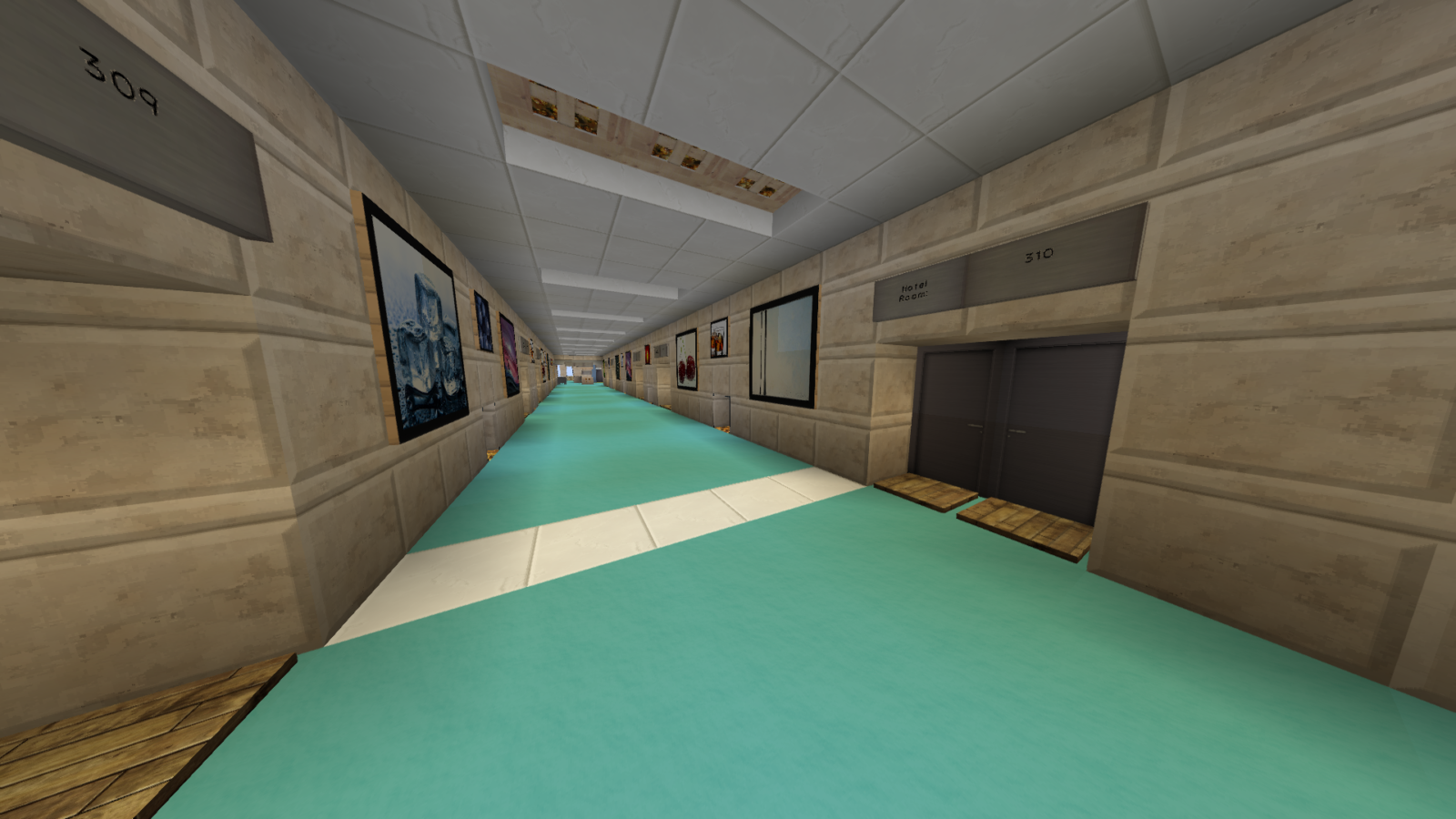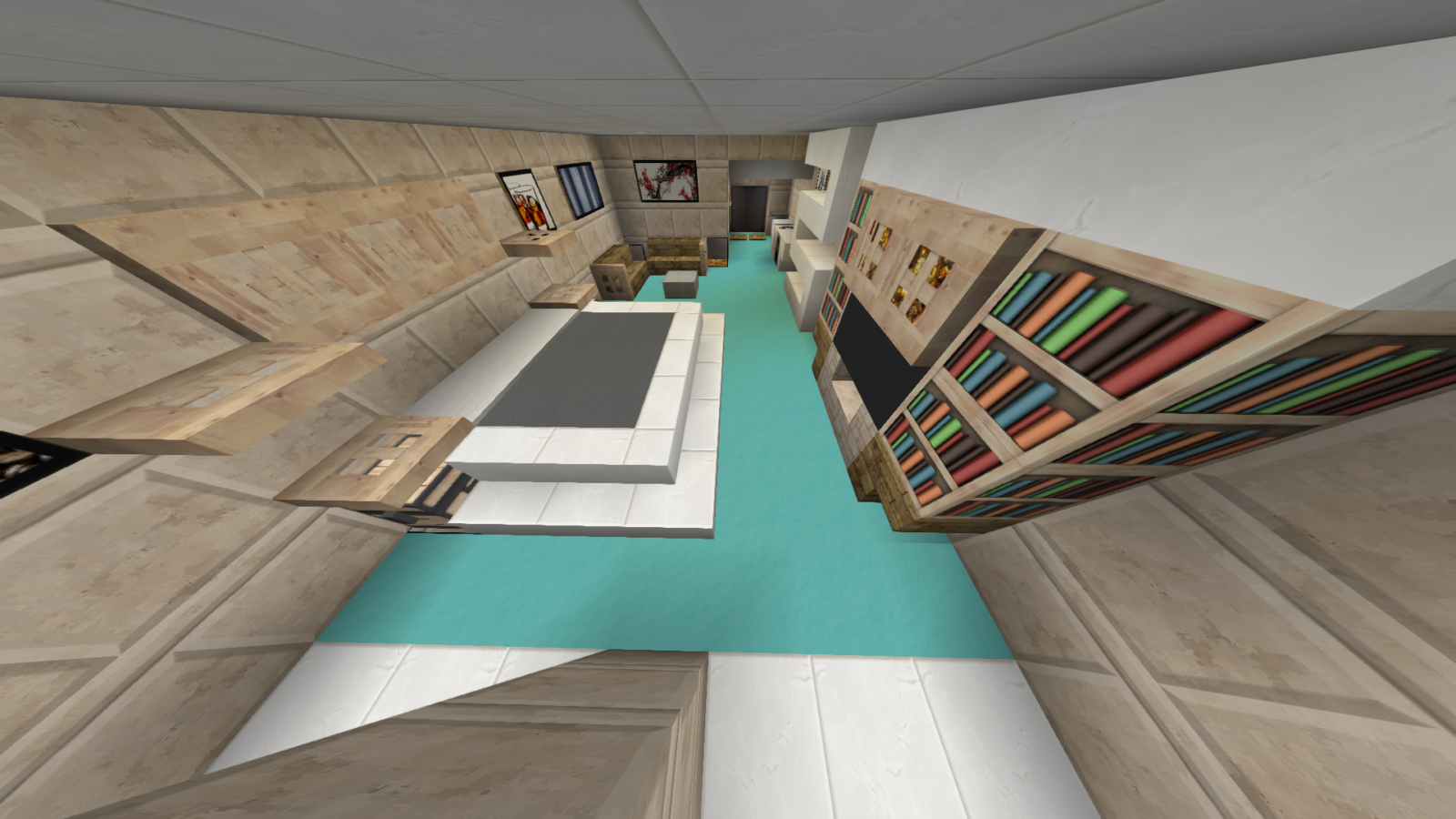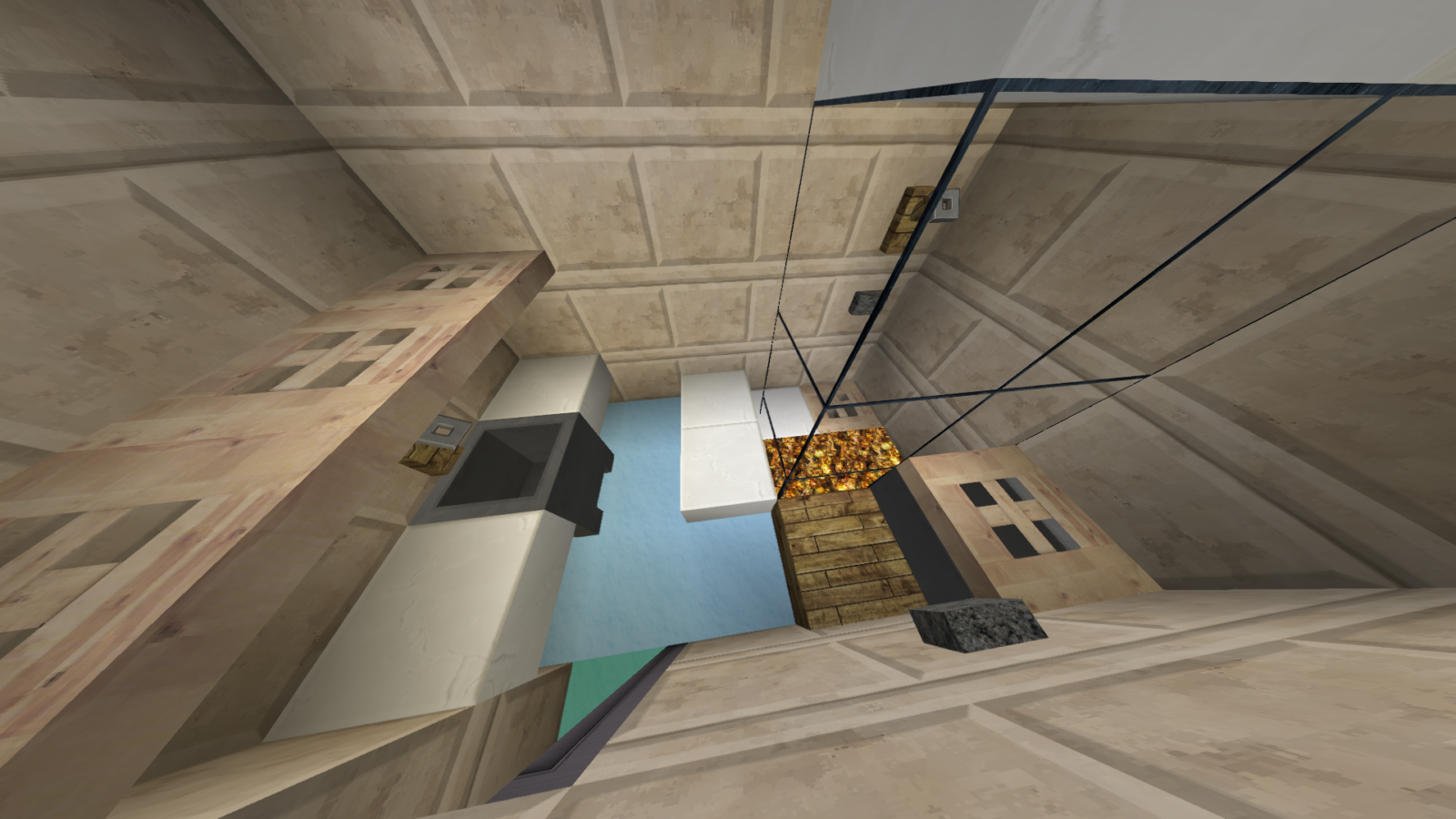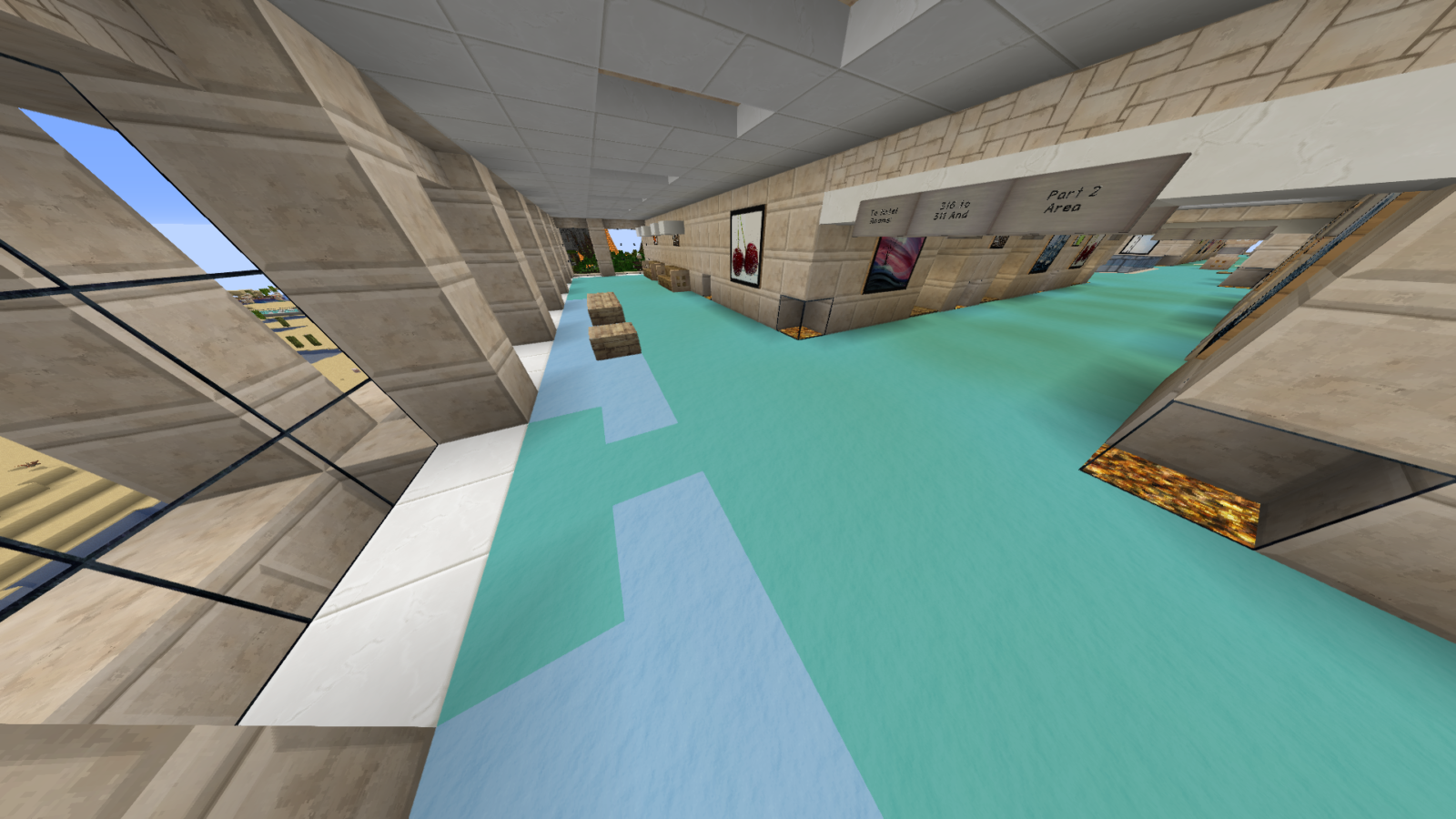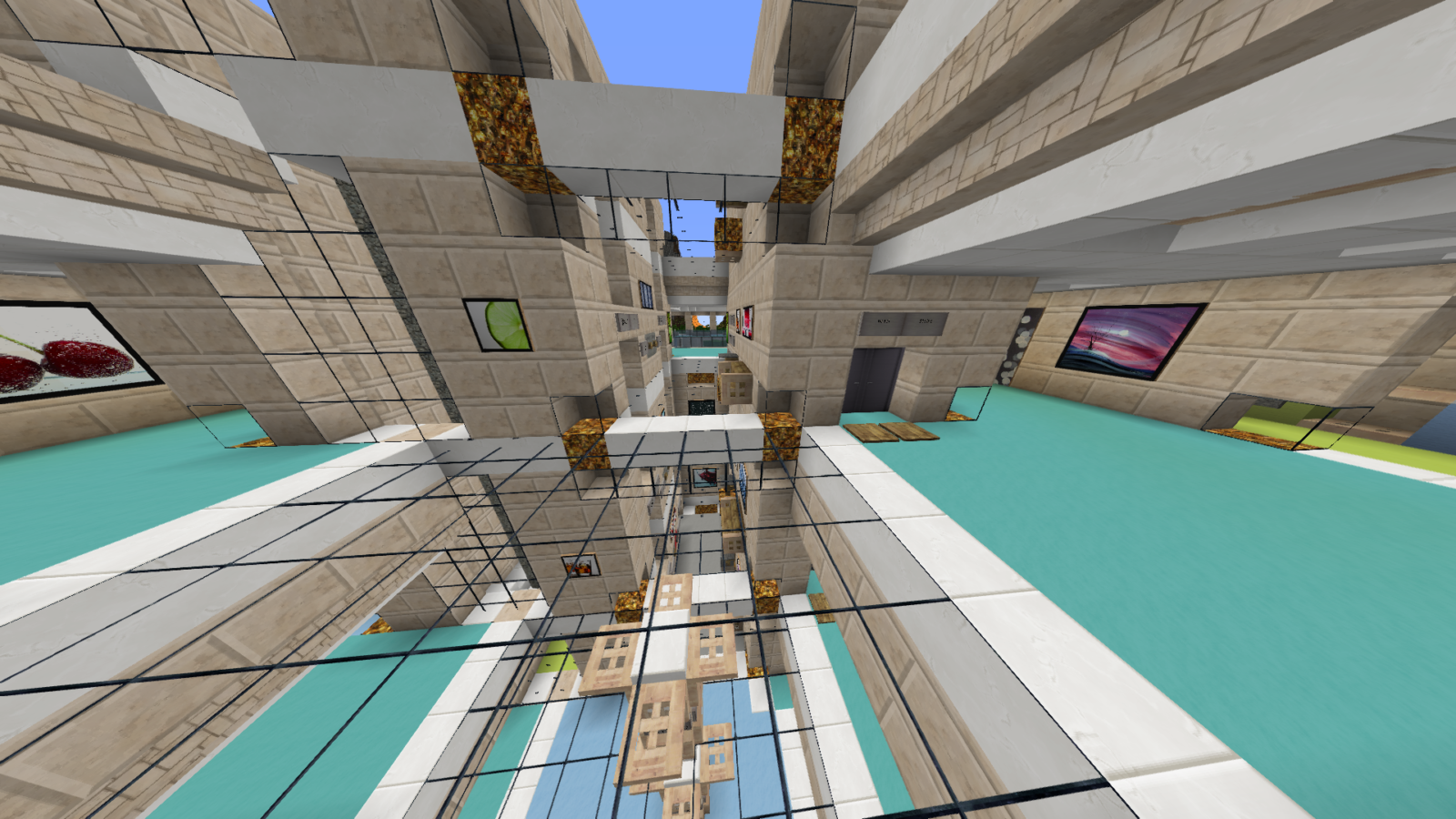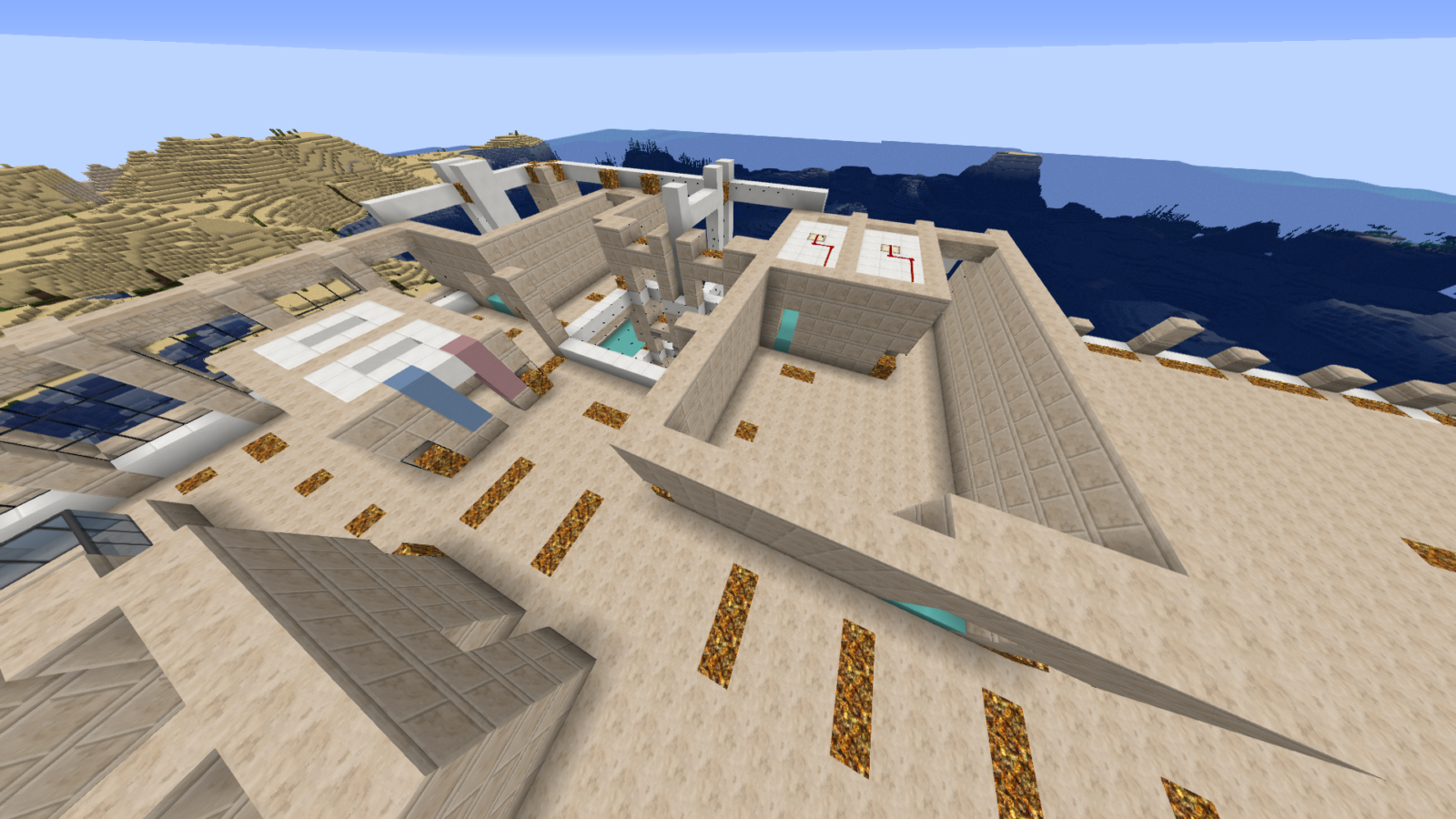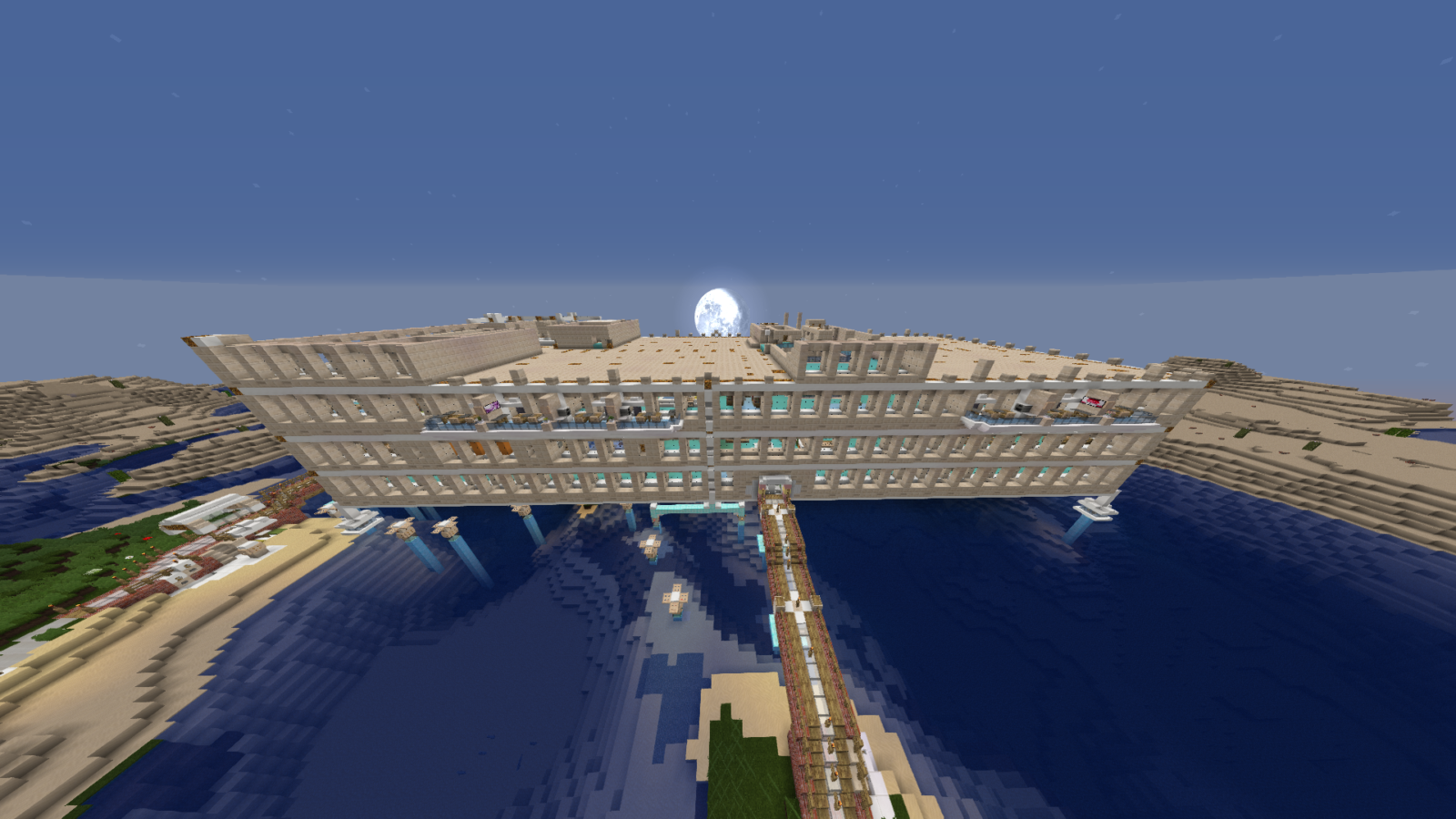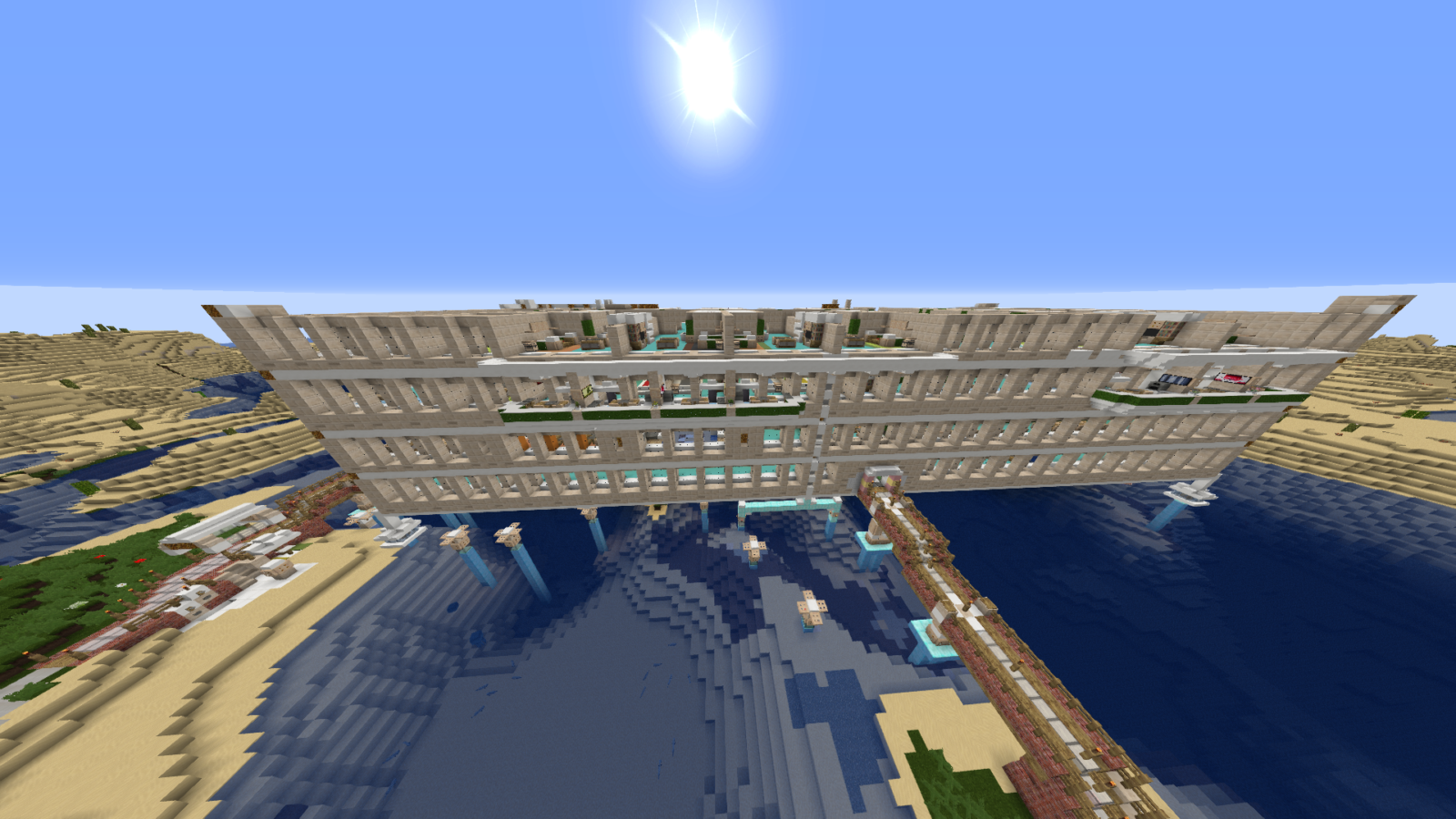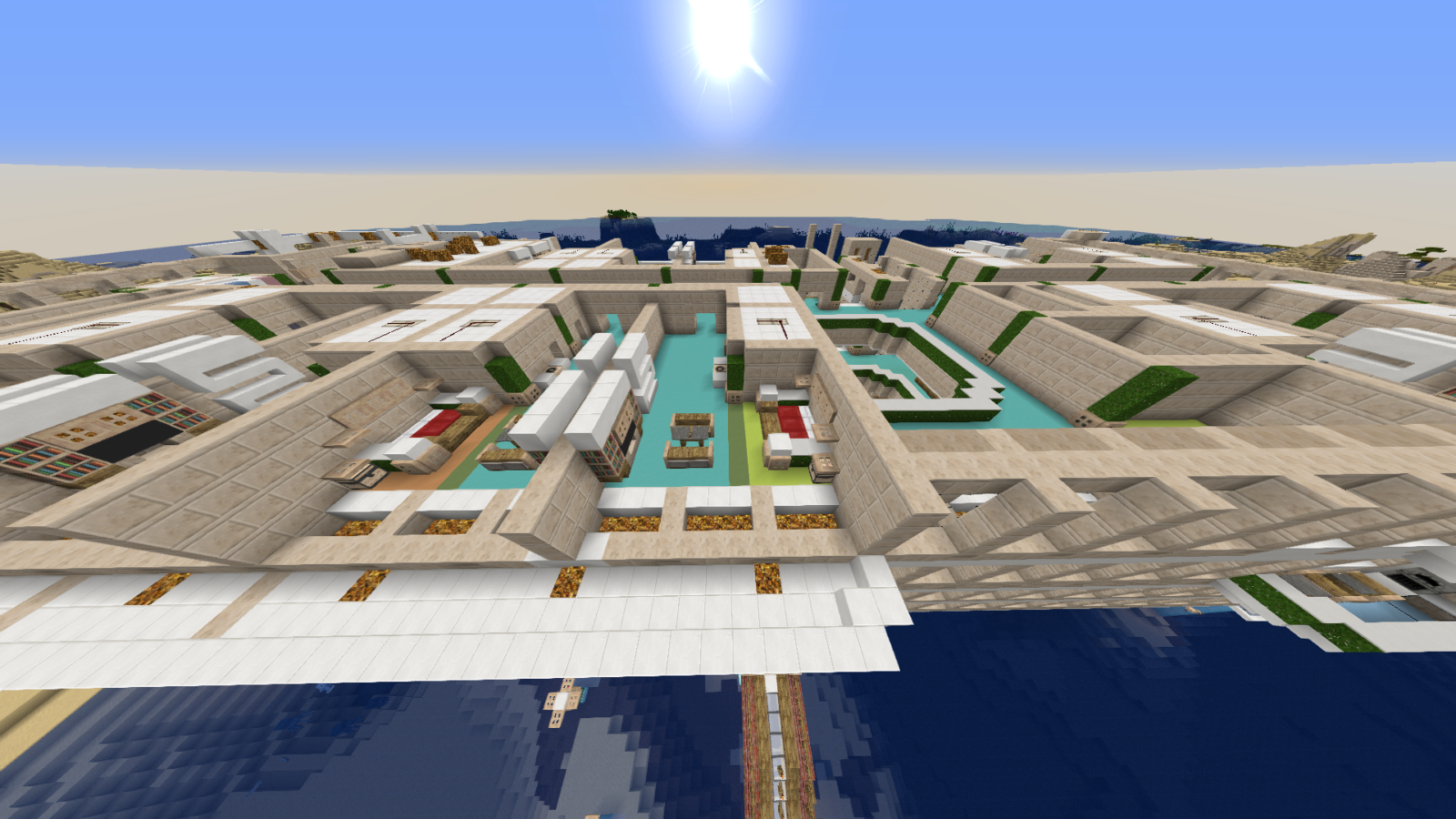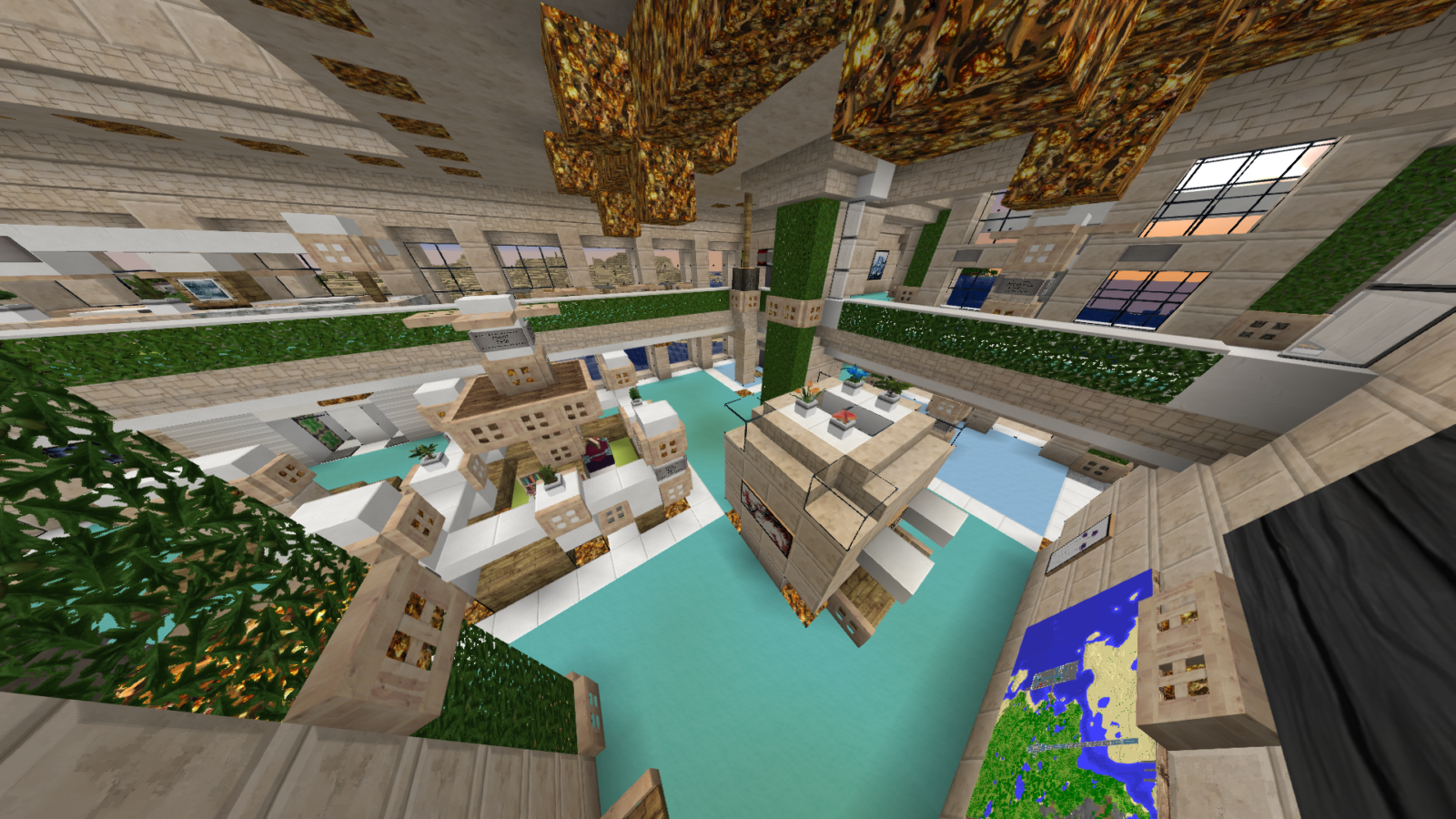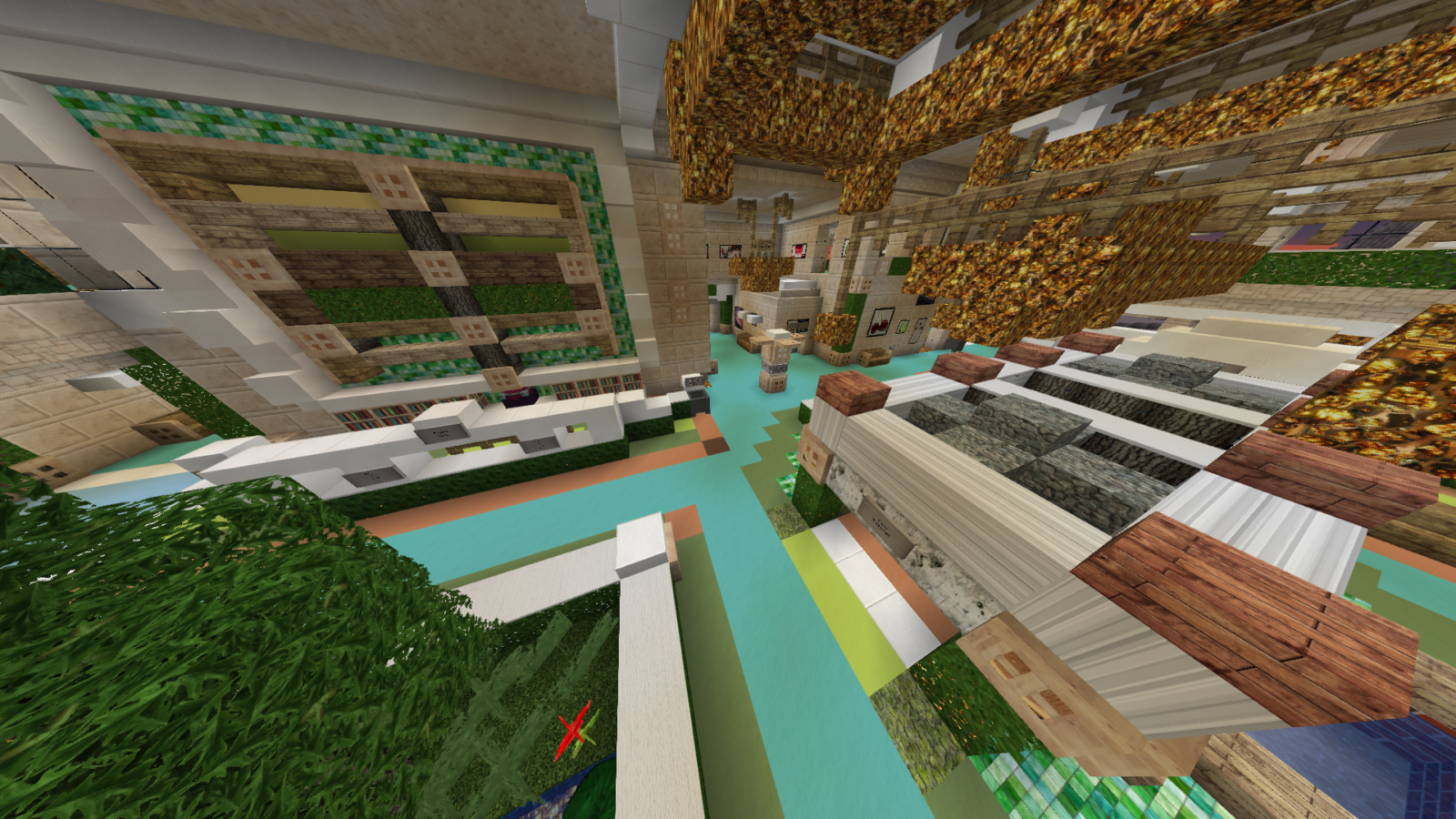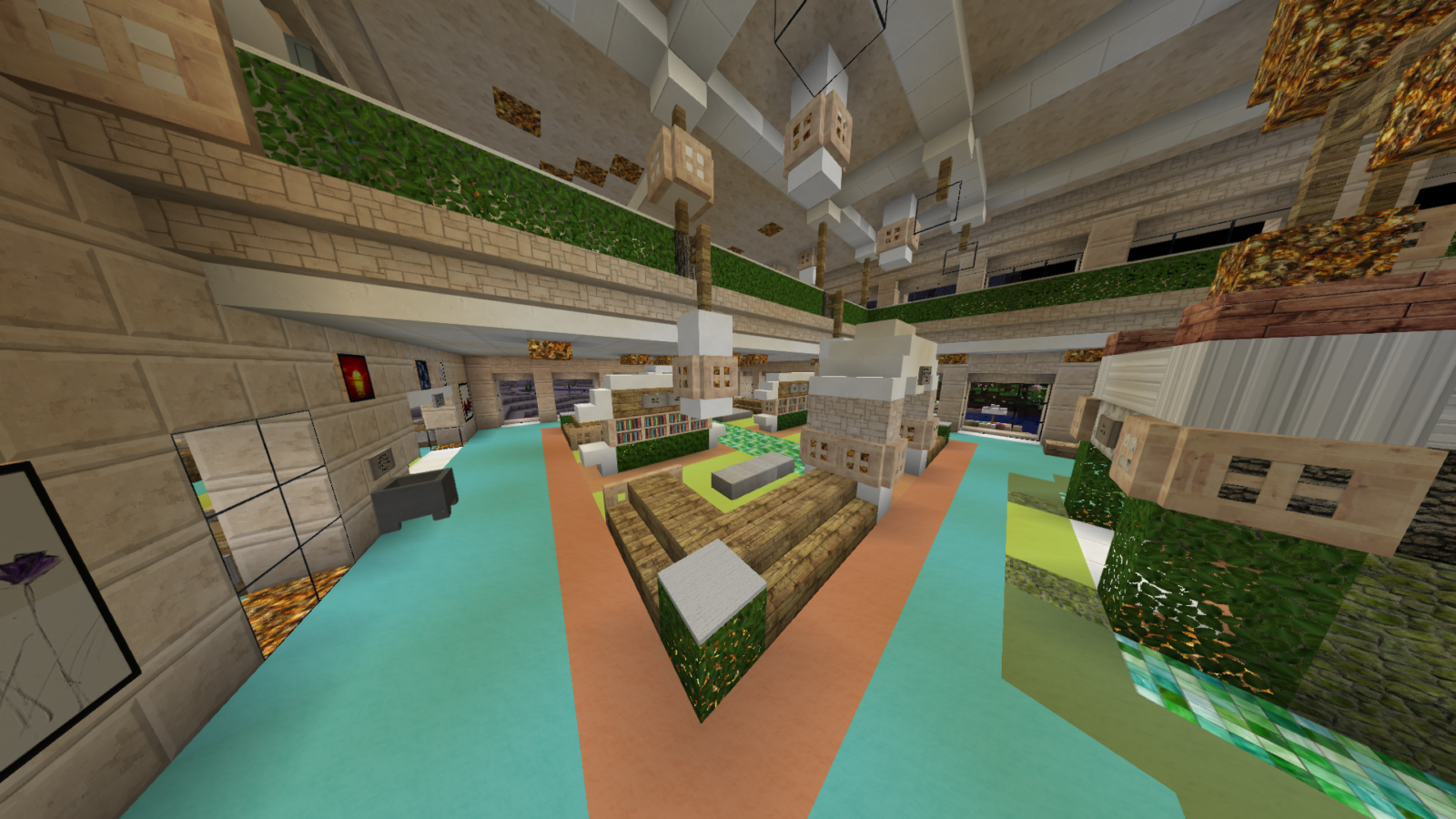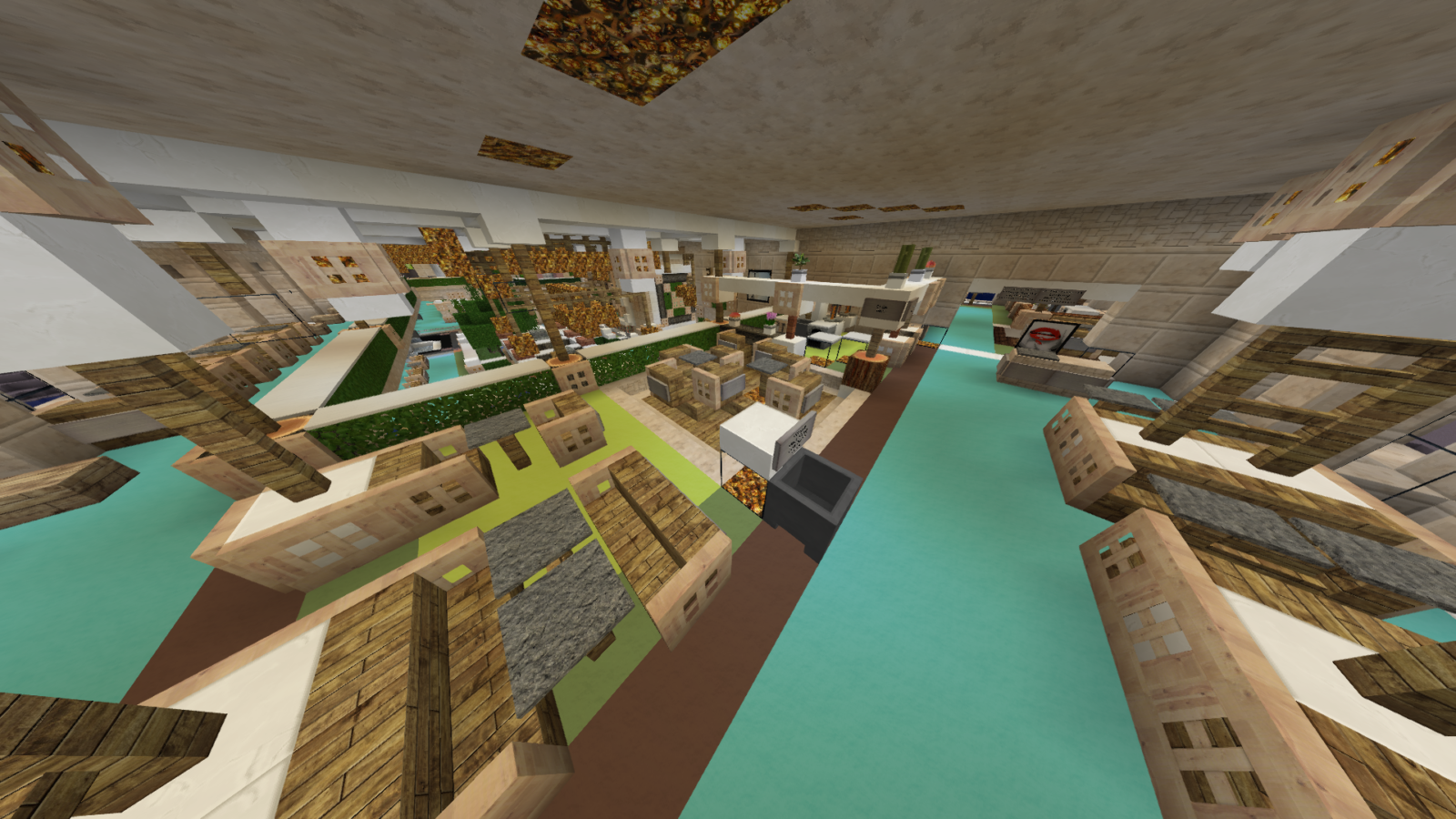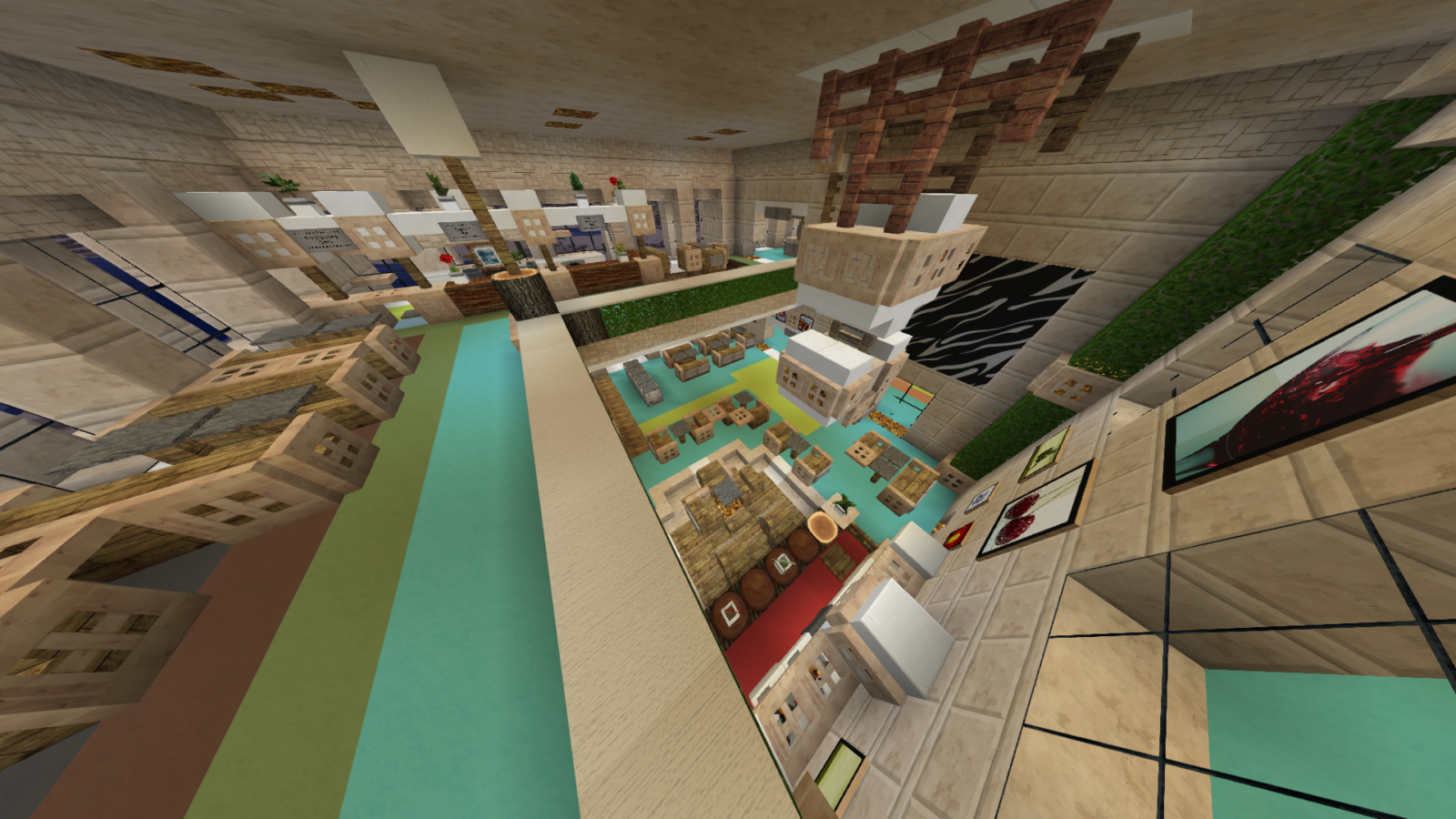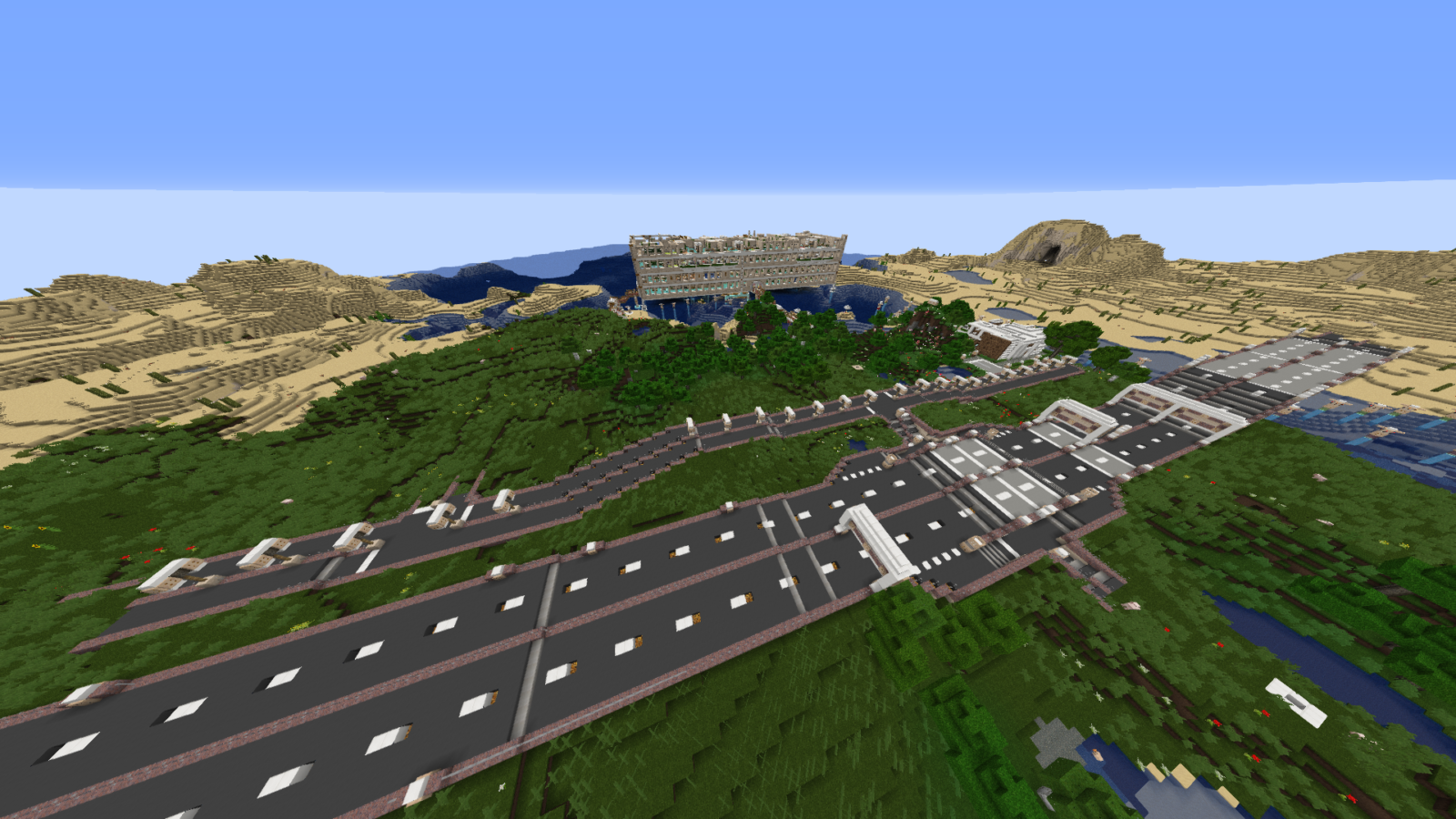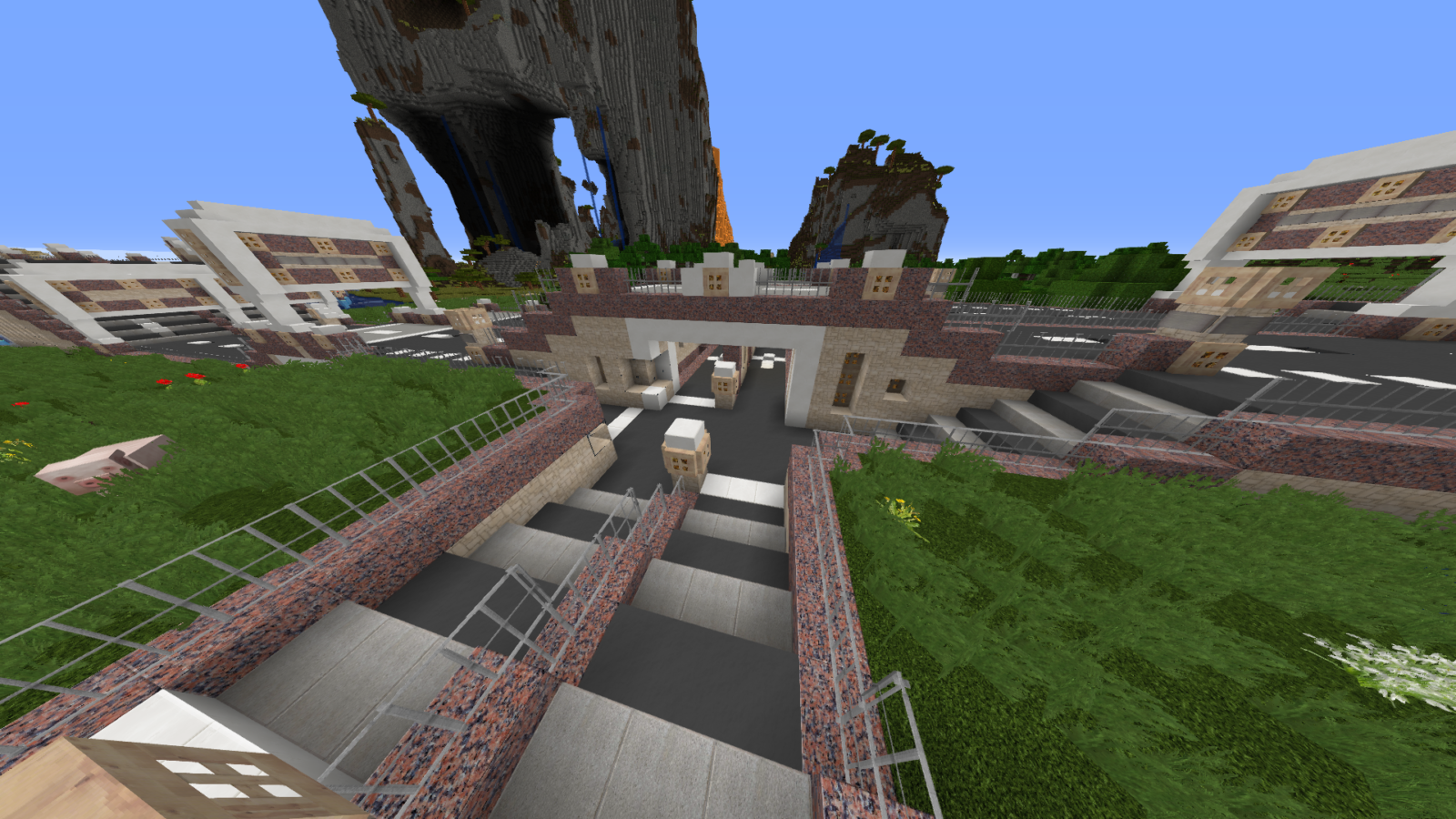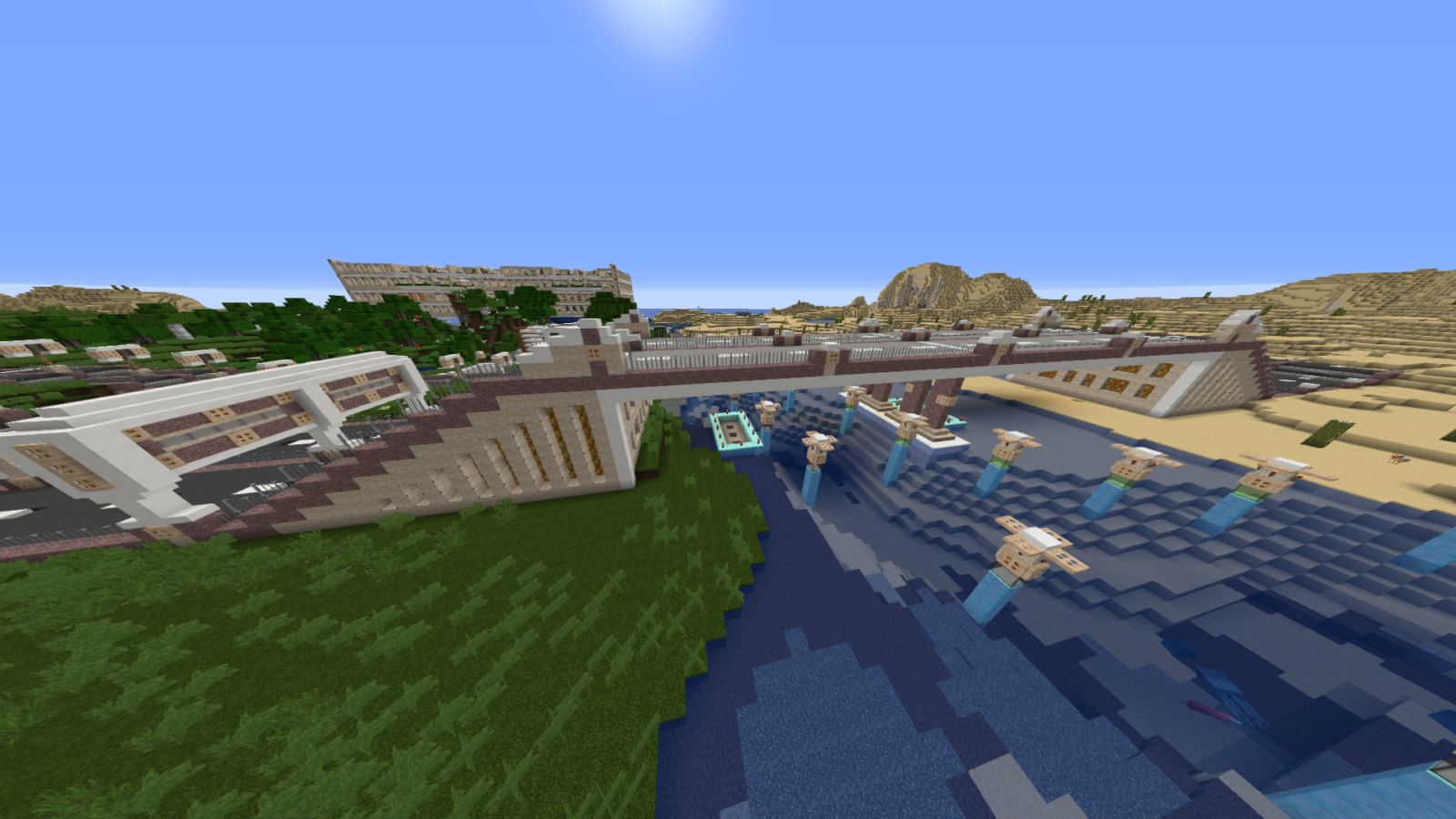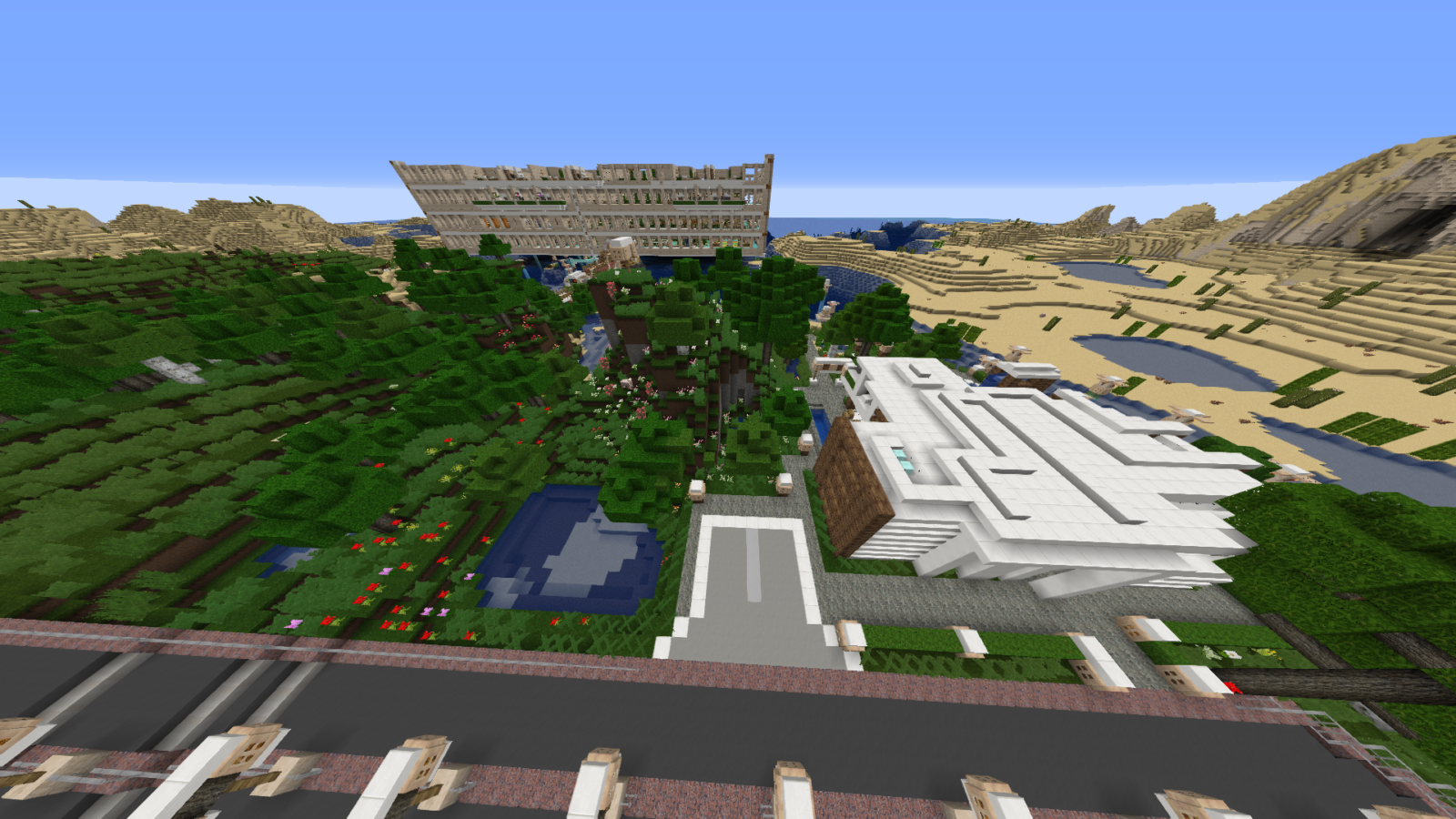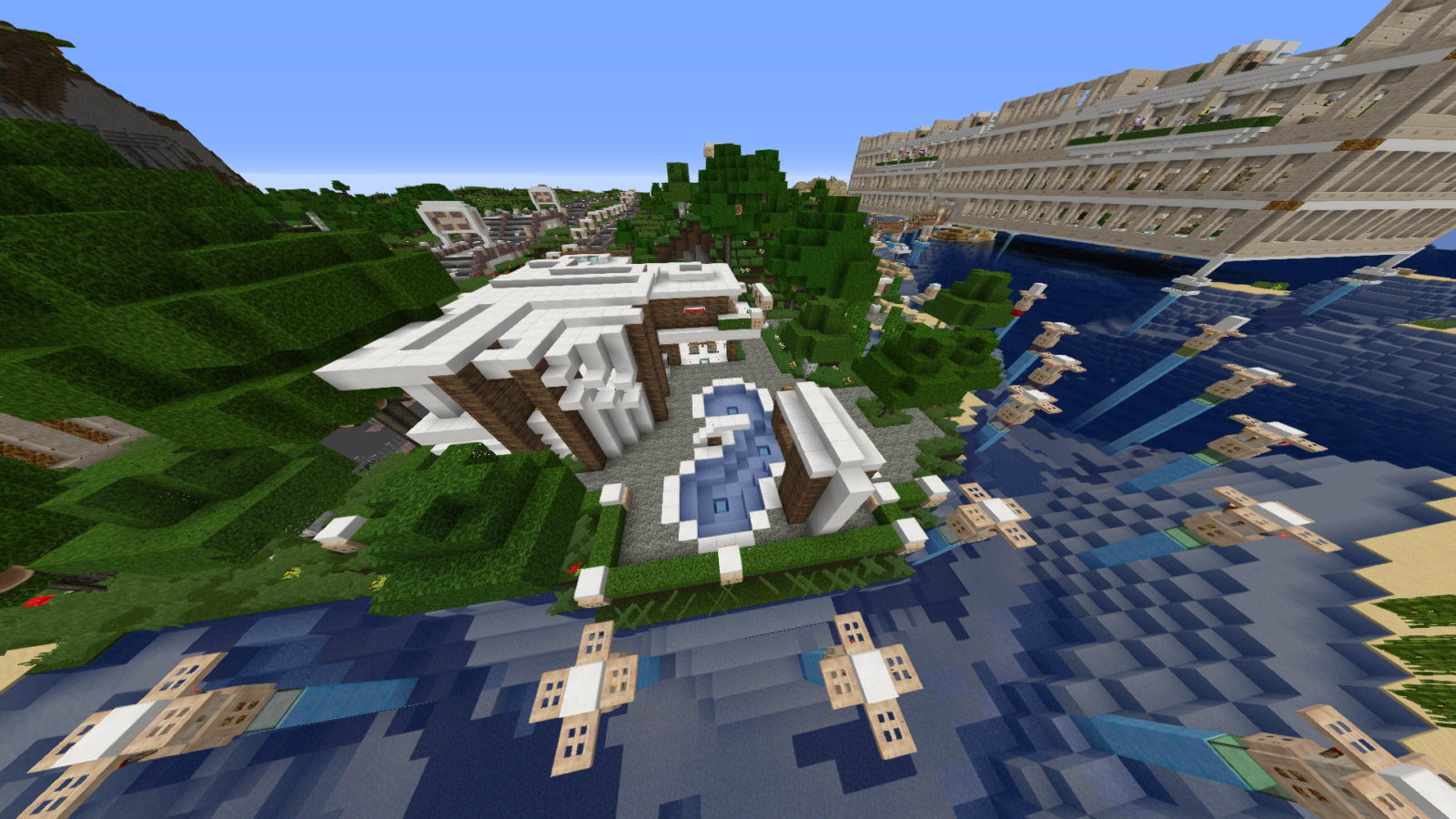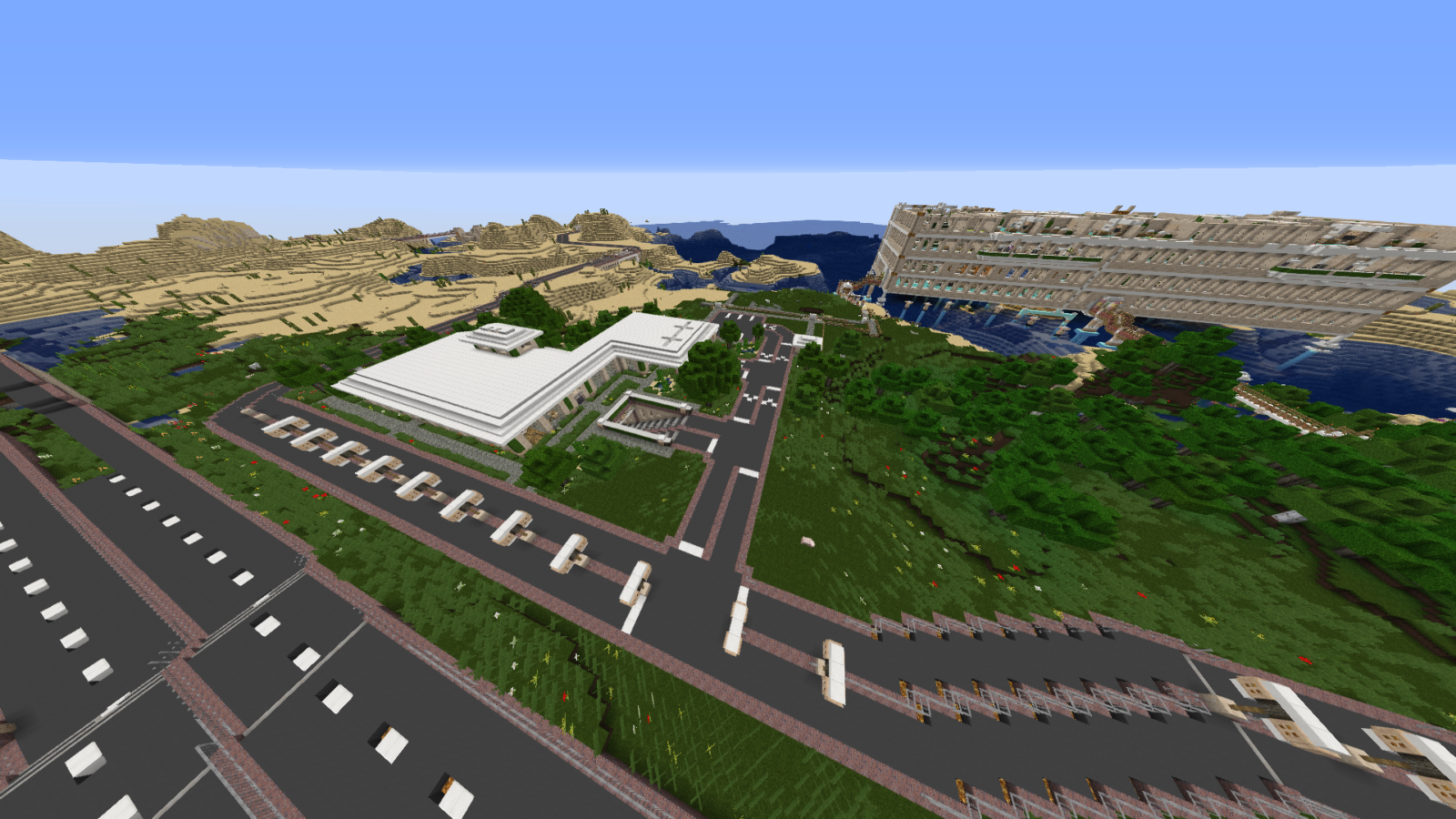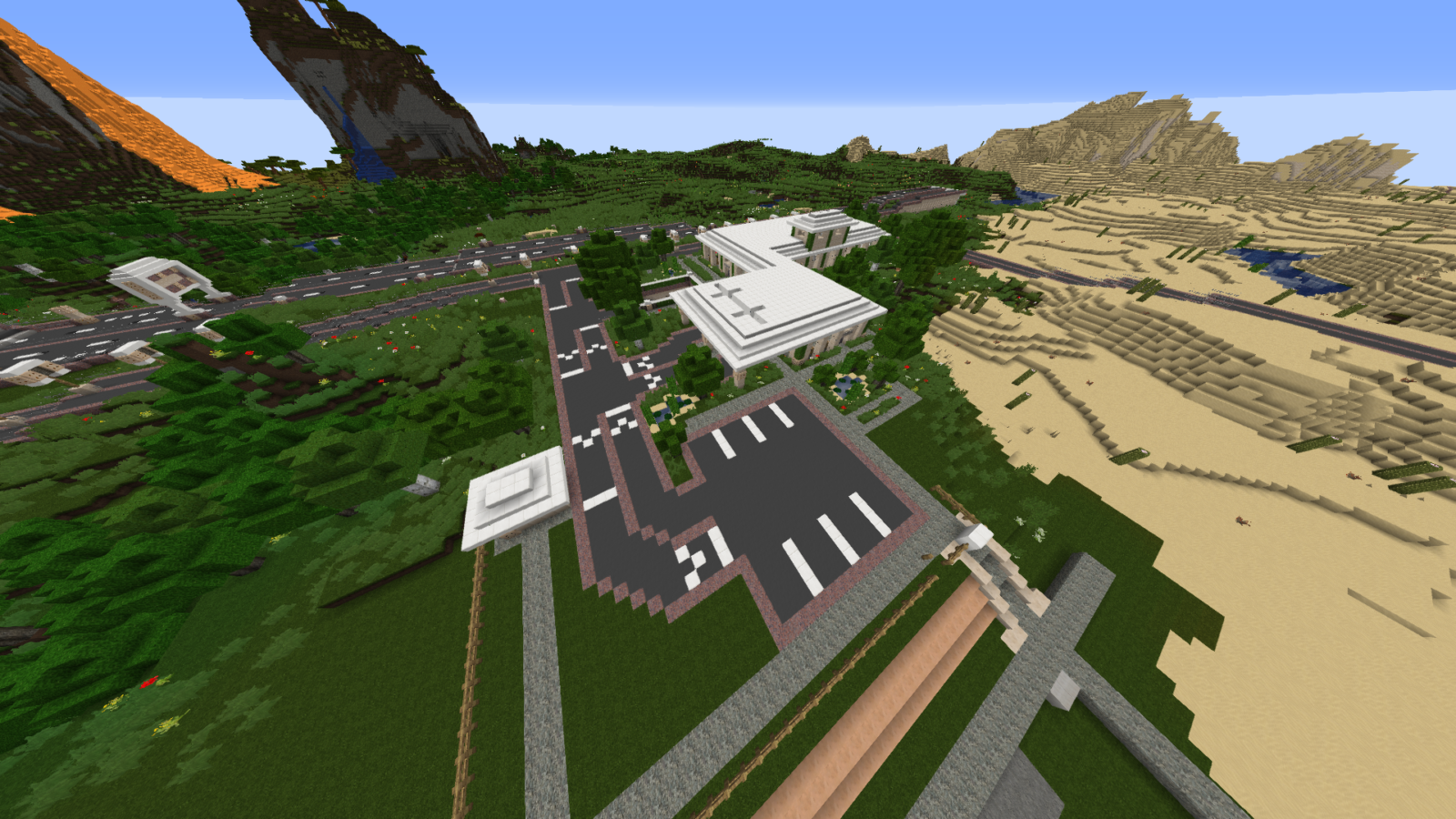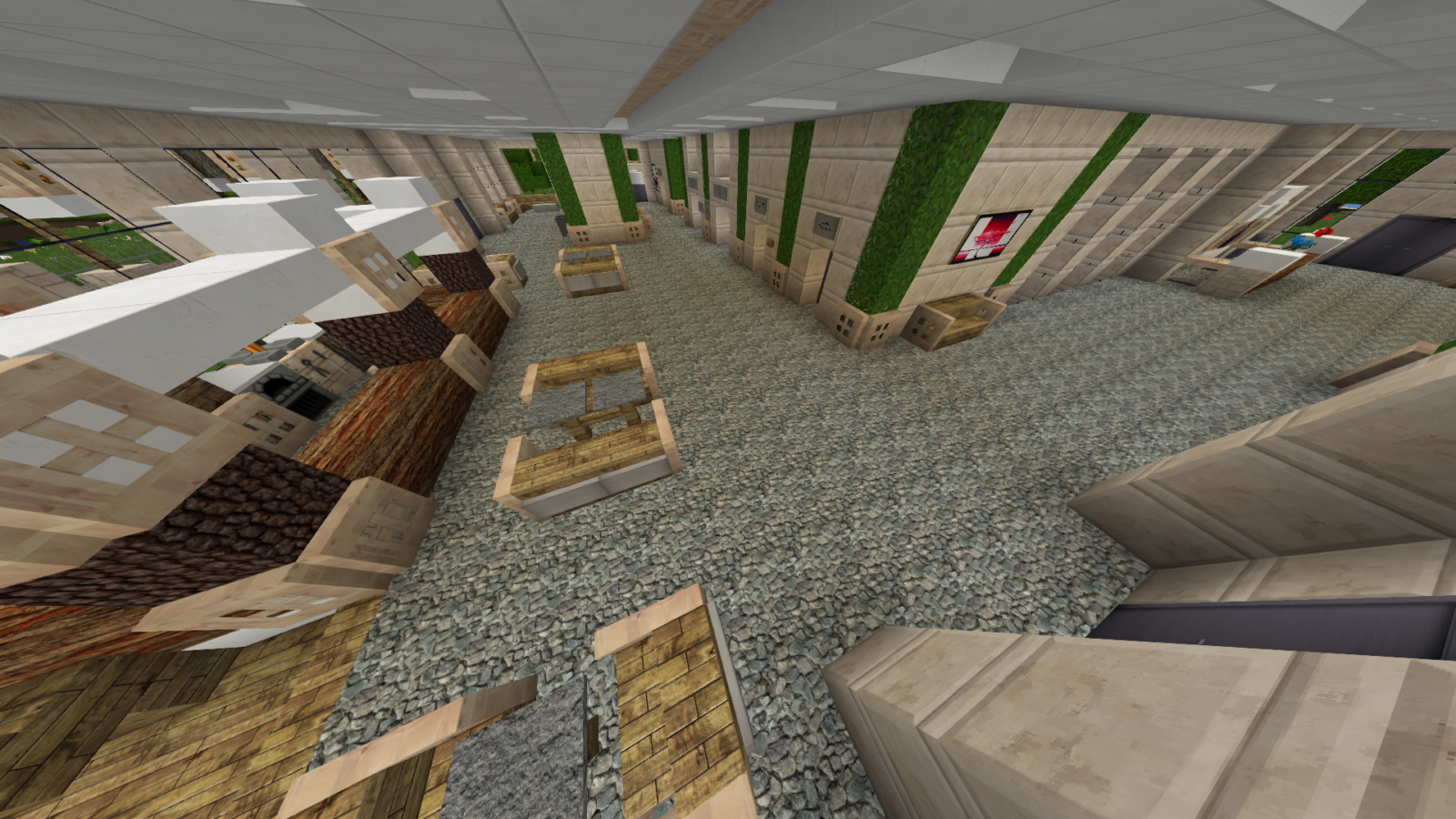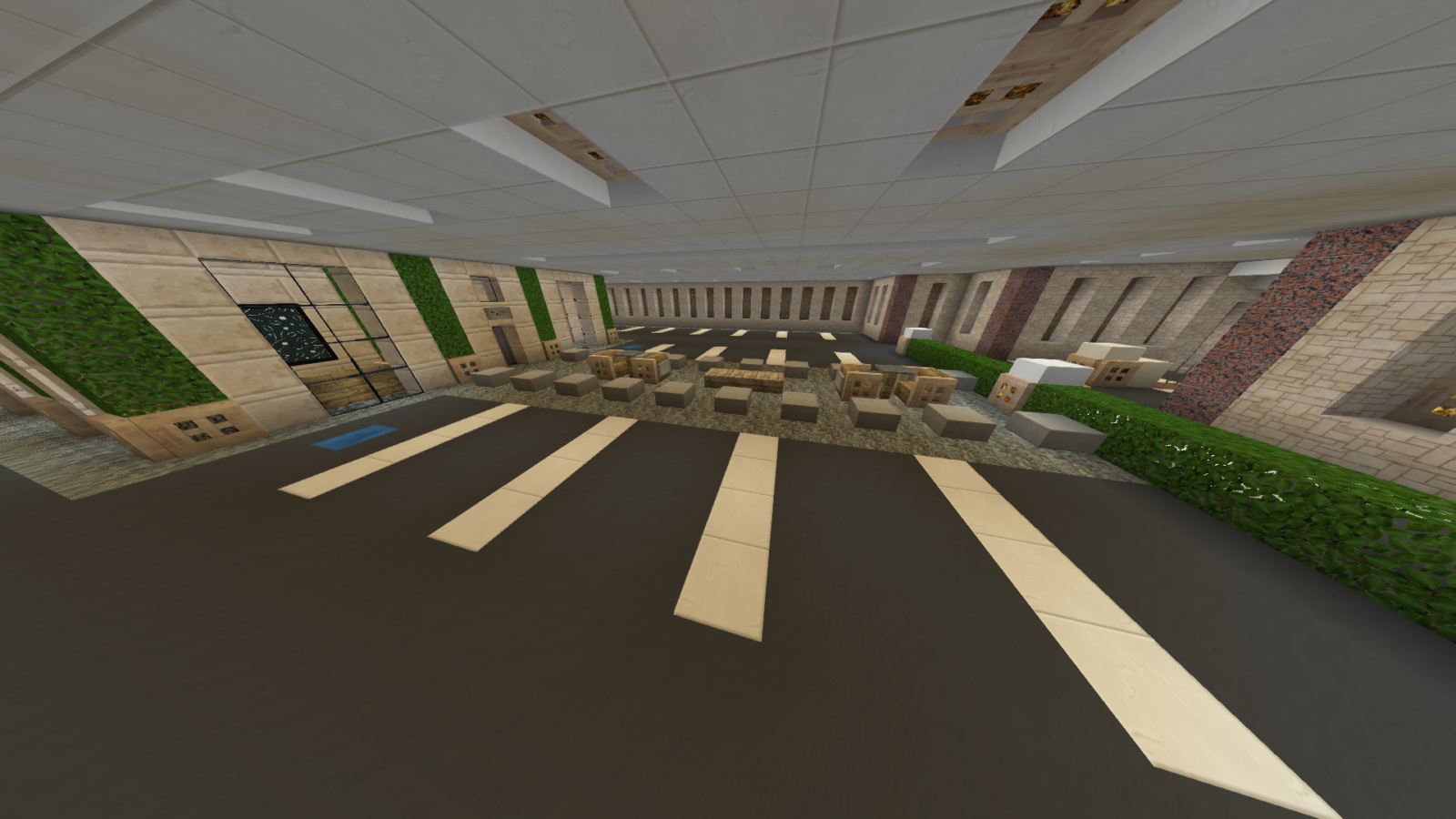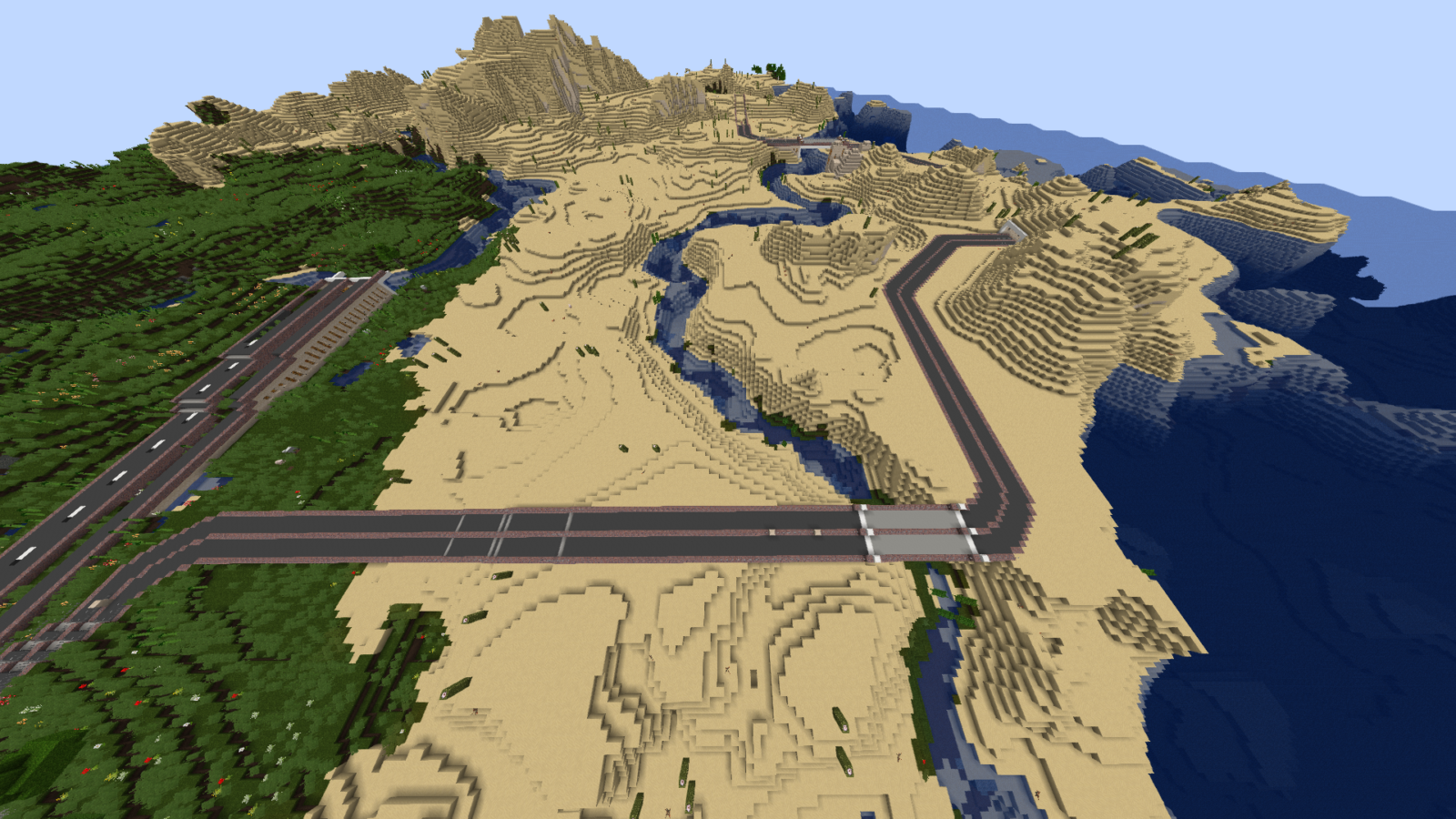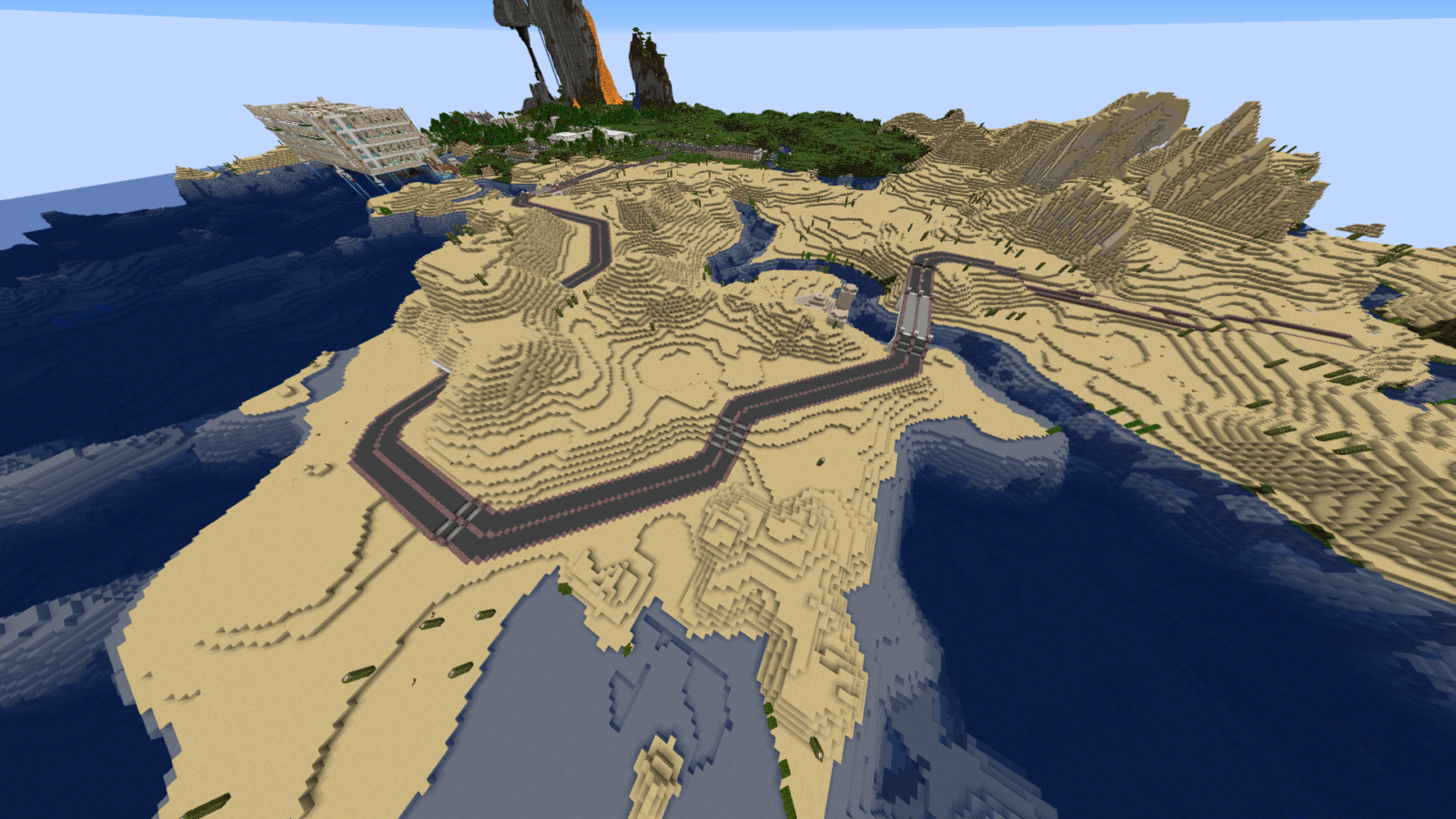Wanna hop around? Click here to go next, to page 2.
Covers 2014-15.
Here is the 1st of the seven pages that describe the build’s process, going from March 2014 (the start month) till June 2015. During this phase, the structure designs were vastly different from what exists now and have evolved the most during this period. Enjoy!
Beginning of a Beginning
Ideas to create a map with a large beach hotel started back in February 2014 (at age 12). After transforming some of my old maps by renovating much smaller hotels and other structures, I eventually decided to create a cohesive world with my creativity on a much larger scale.
In mid-March, I decided to go with the beach hotel idea. I created a world, cruised around a bit to find a good spot, and chose to build on top of a three-sided bay.
This bay had its ocean to the west with the land to the east, thus it was along the west coast of a continent. The land towards the center of the bay had some plains and a flower oak forest, which stood out the most, hence the choice of the location. The north and south sides, however, were mostly desert areas.
The Start of the Construction Process
Construction started by placing diamond block pillars in the bay’s north and south ends, forming a rectangle in between, followed by two more pillars placed in the center of the bay. These two central pillars divided the two parts of the hotel, with Part 1 on the south side and Part 2 on the north.
After this, construction began on the Part 2 side (yes, ironically). The pathway connecting the land and Part 2 entrance was built, along with the entryway itself. The window design followed, being one of the oldest design features that has survived the build process.
The Beginning of Part 2’s Construction
The area was first covered with a layer of sandstone to allow construction on top. From here, the basic areas were built, including the front desk, dining area (1st floor), kitchen, and elevator areas, despite their designs having been changed drastically till now.
The building was originally planned to have functioning Redstone elevators with floor selection functionality. However, the idea was abandoned shortly after the build started, mainly due to the excessive space taken up, and was transformed into how it is now.
After the elevator area conversion, the 2nd floor Musco’s Bar and Restaurant area was built, though looking very different back then, following with the book bunk.
The Part 2 open area was then covered up, and things got tricky with figuring out what to put in all the leftover space. A circular fountain originally existed but looked quite ugly and therefore was soon replaced by the modern-day “Fun Tunnel.” Afterward, the indoor patio with trees was done, remaining pretty much untouched till now.
Going Beyond the Part 2 Area
Construction above the lobby area began with building the Part 2 area for the first hotel room floor. It originally had a spacious seating area, with multiple hallways. The first hotel room was built shortly afterward, eventually becoming the design of the Standard Hotel Room.
Afterward, the looby floor restrooms were placed between the Part 1 and 2 areas, followed by the lobby pool and wateries area. It was originally planned to be much smaller, with the shower and restrooms inside the modern-day open space, but its coverage was expanded.
Going Further Into Part 1
Construction of the Loxahatchee kitchen followed, being right below the lobby pool. Upon completion, the restaurant itself was built, leading to the construction of the Part 1 open area. The elevators and stairs for Part 1 were designed and built, along with a nearby “hotel services hallway,” containing a quick shop and help desk. This hallway eventually got replaced years later with the Part 1 restrooms hall and quick shop that we have today.
Afterward, the legacy island front desk for the Part 1 area was built in place of the present-day sandstone fountain. The Part 1 entrance and walkway followed. The Loxahatchee neighboring bar was then built, thus concluding the bulk construction of the hotel lobby floors.
Going Outside of the Hotel Building
Upon completion of the lobby floors in June 2014, a decision was made to change the original build plans. The plan addition was to build a nearby highway connecting with the hotel, allowing automobile traffic to supply the population.
The first design of the highway was with stone slabs and only a single lane in each direction. The part that crossed the river consisted of a suspension bridge.
Going Upwards in the Hotel
After the completion of the legacy highway in August 2014, work was carried onward in the hotel again. The 3rd floor, consisting of Standard Hotel Rooms, was built until fully covered. Shortly before completion, the first Standard Hotel Suite was built on the floor above.
Sometime around when this happened, the hotel went through various design changes. The majority of the change was that vegetation replaced some of the walls and other parts of structures. Wall edges used to have just a glass block near the floor with Glowstone below it. These got replaced with a pillar of leaves with wood and covering trapdoor(s) on the bottom. Glass railings also got replaced with leaves, with white carpet on top. And various Glowstone blocks that were exposed got covered with trapdoors.
From here, the Standard Hotel Suites were built, where each room was built in parallel and received each component (e.g., TV, bed) in shared stages. The shared spaces of the floor were being built too.
Again Going Outside of the Hotel Building
In October 2014, ambitions to grow a surrounding town area grew gradually and led to the decision to build a full-scale highway nearby, along with neighboring houses and other structures. The existing one-lane road was converted to a two-lane highway with a completely different design. The existing suspension bridge was unfortunately demolished and replaced by a standard tall bridge.
A road was then built just parallel to the highway, closer to the coastline, going from the river and down south. On the riverside, Musco’s home was then built, originally having a different design that was later abandoned since the original house was too small given how much area was available. Upon completion, the road was extended to the south, and construction of the Hotel Lounge began.
The road entryway was the first to be built, originally having three “destinations.” Entrances to the underground parking lot, drop-off area, and above-ground staff parking were planned, with the last being abandoned later due to space constraints. From here, the underground parking area was built with only two floors (nowadays it has four).
After finishing the underground parking lot, the above-ground lounge building was built. Consisting of just a quick shop, dining area, and reception, it suffices for the basic needs of immediate arrivals. Small gardens around it were then built, with the whole area being complete by January 2015.
Upon completion of the Hotel Lounge, the parallel road was further extended. It was built along the coastline, which went further west the further south we went on the map, thus requiring robust terrain work. Flat land reserved for building houses and other structures was also laid out for future building, completed in the spring of 2015.
You’ve made it to the end of this page! Click here to go next, to page 2.
Last updated on December 22, 2024.
